
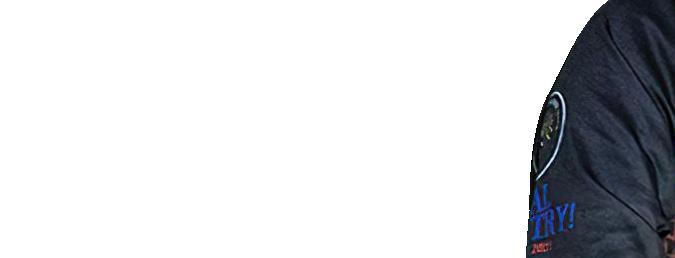
$9.95AUD / $11.50NZ In this issue: I nclusive visit to the Big 3 supermarkets / Corporate Profile: ANZ Bank / The latest in Daily Living Products / Travel & Leisure: to Scotland in a wheelchair / Happenings from Perth to the Sydney Opera House August/September 2023 | Volume 33 Issue 4 linkonline.com.au – First Nations representative to the NDIA Board Meet Dr Richard Fejo EXCLUSIVE:



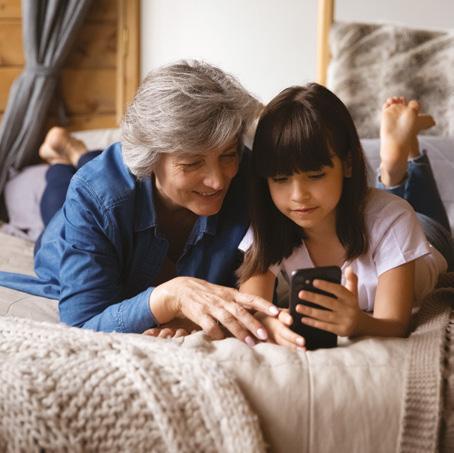
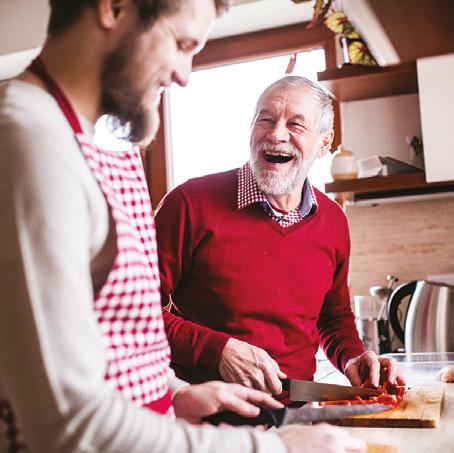
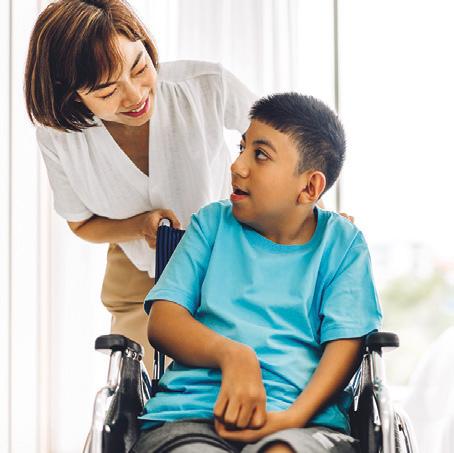
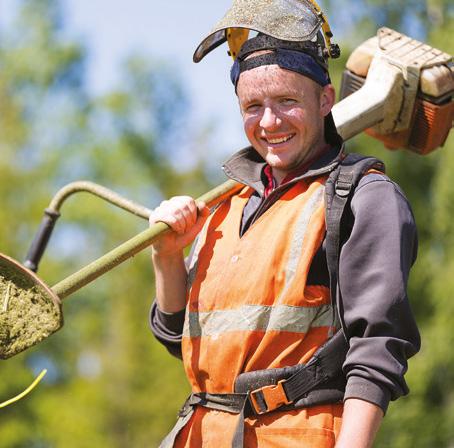

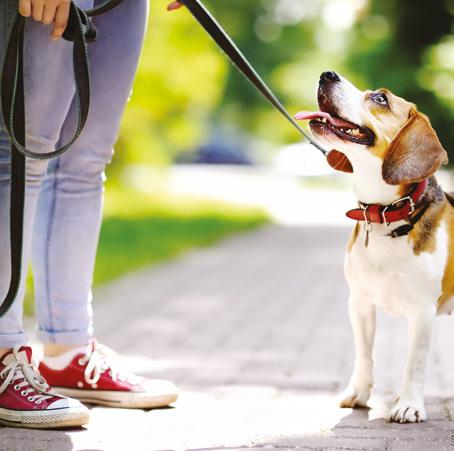
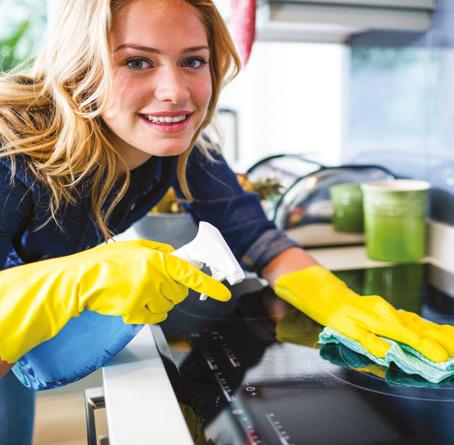





ANY AGE. ANY PLACE. SIMPLY HELPING YOU.
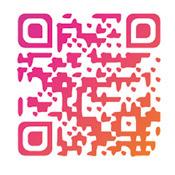


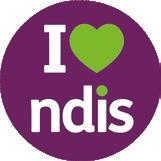

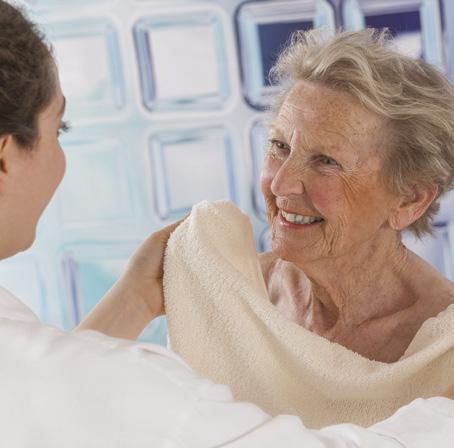

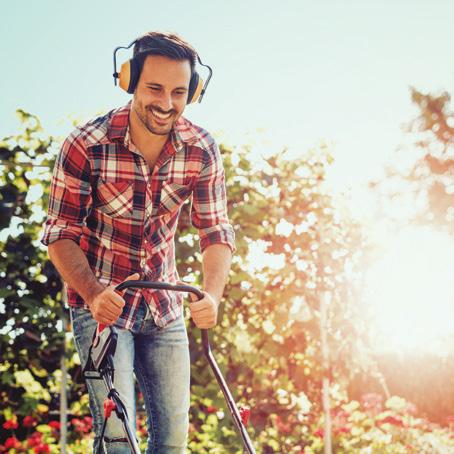

Victoria Melbourne Bayside & Peninsula 03 9574 0924 Inner & South Eastern Central and Northern 03 9661 0499 Eastern 0448 225 177 Greater Eastern North East 03 9001 8585 Outer South Eastern 0406 316 334 Regional Cntrl Hghlnds & Djerriwarrh 03 5341 8046 Geelong & Barwon 03 5261 4808 Gippsland South & West 03 9799 4676 Goulburn Valley 03 5795 1635 Loddon Mallee 03 5486 0203 South West 03 5381 2076 New South Wales Illawarra 02 4244 3470 Sydney West 02 9623 6655 Liverpool 0479 070 119 Queensland Cairns 0458 720 217 Western Australia Lower North Perth 08 9371 9115
0 6
From the Editor
0 8-10:
C over Story – Q&A with N DI A board member Dr Richard Fejo
1 2-13:
We canvas inclusive issues with the three supermarket giants
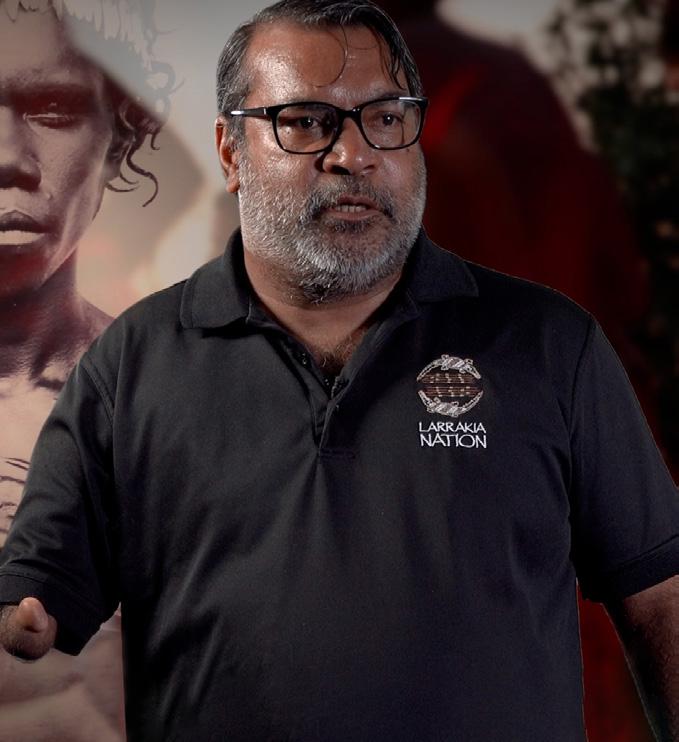

1 8:
N atalie Wade reports from the United Nations
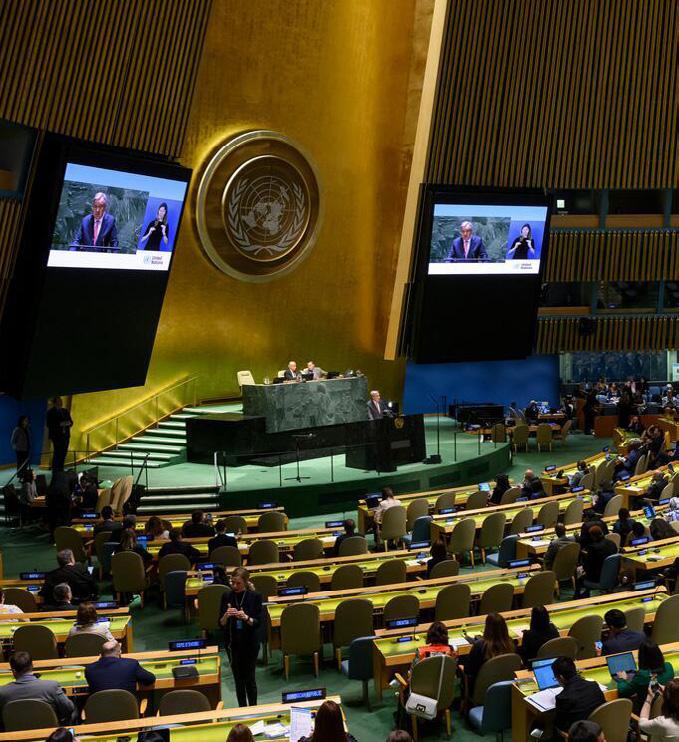
3 0- 39 :
D aily Living Products
4 4-49:
D AL Expo Adelaide Guide
7 0-71:
S taff the driving force in ANZ Bank inclusion programs
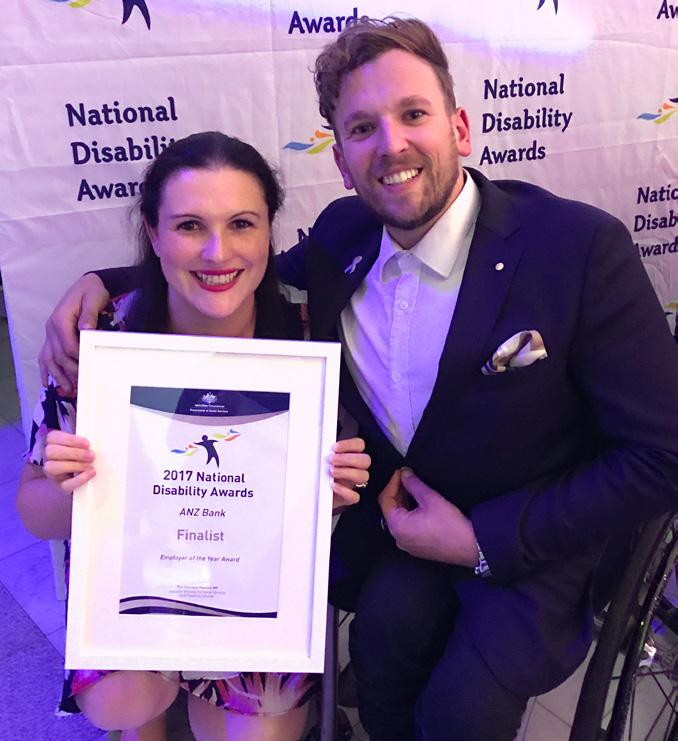
7 8-83:
Travel & Leisure - Accessibility in Scotland
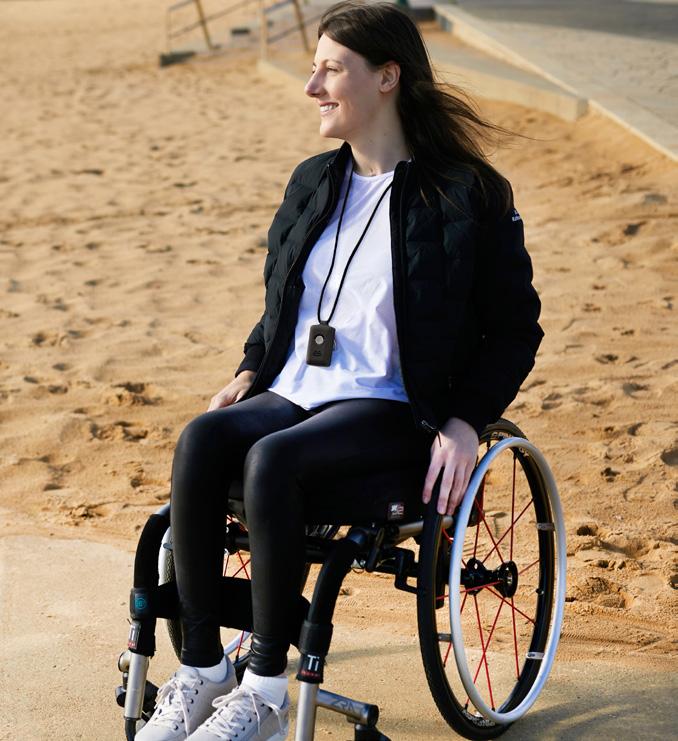

8 4-86:
H appenings from Perth to Sydney
18 78
08 Inside 70 12 32 August/September 2023 4


1300 789 845 www.atsaindependentlivingexpo.com.au Organised by Media Partners Australia’s foremost assistive technology event BY THE INDUSTRY FOR THE INDUSTRY CANBERRA 8-9 NOV 2023 EXHIBITION PARK (EPIC) SYDNEY 22-23 MAY 2024 SYDNEY SHOWGROUND REGISTER ADELAIDE 6-7 MARCH 2024 ADELAIDE SHOWGROUND BRISBANE 29-30 MAY 2024 BRISBANE CONVENTION & EXHIBITION CENTRE
Publisher
Simon Cooper
Editor
Kymberly Martin
kymberly@intermedia.com.au
Advertising
Michelle Stevens
mstevens@intermedia.com.au
0419 822 717
Design
Sarah Vella
Prepress
Tony Willson
Production Manager
Jacqui Cooper
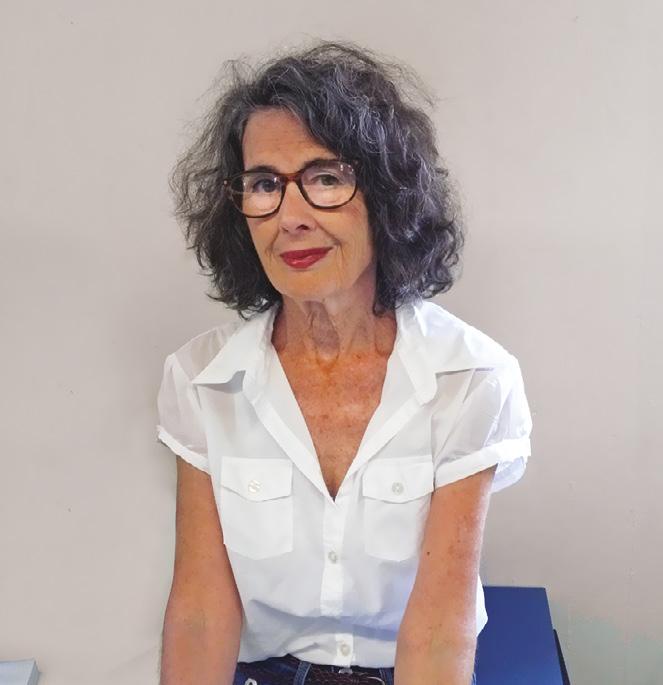
Subscribe
To subscribe visit www.intermedia.com.au
P: 1800 651 422 or E: subscriptions@intermedia.com.au www.linkonline.com.au
Link is published six times a year by Interpoint Events Pty Ltd.

ABN: 9810 451 2469
A: 41 Bridge Road, Glebe NSW 2037
P: +61 2 9660 2113
F: +61 2 9660 4419
Reprints from Link are permitted only with the permission of the publisher. In all cases, reprints must be acknowledged as follows: ‘Reprinted with permission from Link Magazine’, and must include the author’s byline.
The opinions expressed in this publication are those of the authors and do not necessarily represent those of the publisher.
The Intermedia Group takes its Corporate and Social Responsibilities seriously and is committed to reducing its impact on the environment. We continuously strive to improve our environmental performance and to initiate additional CSR based projects and activities.
As part of our company policy we ensure that the products and services used in the manufacture of this magazine are sourced from environmentally responsible suppliers. This magazine has been printed on paper produced from sustainably sourced wood and pulp fibre and is accredited under PEFC chain of custody.
PEFC certified wood and paper products come from environmentally appropriate, socially beneficial and economically viable management of forests.
From the Editor
Dr Richard Fejo has been appointed to the board of the National Disability Insurance Agency and is the subject of our cover story in this issue. He spoke about the changes he hopes to make as a First Nations representative and the challenges he faces in doing so.
Also, in the magazine you can read about how the three big supermarkets are re-positioning their shop front when it comes to accessibility in the retail sector. Still on business, Danielle Kutchel reports on how banking group ANZ is continuing with its responsibility to diversity and inclusion and its strong focus on employment. You can also check out our inspiring interview from a rehearsal with a group of talented artists with disability who have just put on their first show at the Sydney Opera House.
And for those with a yen to travel, Caitlin Maynard who recently moved to Scotland, gives us some idea of her experiences of travelling around Edinburgh in a wheelchair.
Link has formalised a partnership with ARTA and the magazine will now be distributed to all their members.
Kymberly Martin/Editor - kymberly@intermedia.com.au
OCTOBER/NOVEMBER 2023
• Personal Care & Equipment
• Travel & Leisure
NEXT ISSUE
• NDIS
• ATSA Expo – Canberra
Advertising booking date: August 25, 2023
Advertising Material deadline: August 30, 2023
Publication date: September 26, 2023
For article proposal, contact the Editor: kymberly@intermedia.com.au
For advertising, contact the Advertising Manager: Michelle Stevens 0419 822 717 mstevens@intermedia.com.au
August/September 2023 6 linkonline.com.au
us on Facebook /linkdisabilitymagazine
Like
Your support, your way. Unleash your dreams with Individualised Support!
Endeavour Foundation’s individualised support service is all about your goals, interests, and lifestyle.
From developing daily living skills to engaging with your local community, our passionate staff will support you as you take the steps to live the life you want.
Endeavour Foundation can support you to live a more independent life at home and in the community.

Learn how you can live your best life with Endeavour Foundation, like Jayden at endeavour.com.au or scan the code.
Exclusive: Dr Richard Fejo – driving the momentum for First Nations people
Dr Richard Fejo was recently appointed to the National Disability Insurance Agency (NDIA) Board as the first ever First Nations appointee. In addition to the NDIA, Fejo is the Elder on Campus at Darwin Flinders University, chairs the Darwin Waterfront Corporation and the Australia Day Council. He recently joined the Australian Institute of Company Directors, (AICD) Board with a remit to increase the number of Aboriginal people in company director positions.
He is also vice-president of the Darwin Buffaloes Football Club and

cultural ambassador of the Darwin Salties NT Basketball Team. He spoke to Kymberly Martin.
Challenges facing the disability sector?
As a new NDIA board member, the challenges I have come across when it comes to the disability sector is about improving on an existing system that allow for NDIS participants to get the support they need. Also, increasing the number of people registering, not just in the sector but as service providers, to ensure that providers match the needs of the clients.
What do you hope to achieve on the NDIA board?
Making sure as the first Aboriginal appointed to this board that I represent the First Nations people of Australia adequately. This includes increasing the numbers of Aboriginal people and Torres Strait Island people with disability registering into the NDIS and delivering the appropriate services to them. What I hope to bring to the agency is a wealth of cultural knowledge around changing the nature of how we engage and push the conversation along. At the same time providing awareness to non-First
Link to... Cover Story
August/September 2023 8
Nations people about how to interact with First Nations people with disability.
In 1967 when Aboriginal people became citizens and entered mainstream education and workforce, we had no support mechanisms around us. Now Aboriginal and Torres Strait Islander people have successfully entered spaces into the broader Australian population across areas such as teaching, law and medicine. But there are still many areas we can enter, and these must be accessible to us. As an Elder I want our people to believe in themselves, not only as First Nations People but especially as people with disabilities.
Many people I know told me they are often asked what it is like to work with a person with a disability on a company board! People just don’t know what they don’t know.
Aboriginal people are still the most disadvantaged in Australia and those with disability carry an additional burden. I believe we must strive towards a multi-cultural society in this space and embrace not only people with disability, but people of many cultures with disability.
Advice for people with disability?
“Live life to the fullest whether you have a disability or not. Making the most and value out of your life means different things to different people. What I know is that when I wake up every morning, I am going to make it the best day possible. I will apply myself because I know what is expected of me and that I will have to put in the hard yards. Being successful was my dream, everyone has a dream, and you can make it happen with a positive mind and positive energy.
What inspired you to do what you do?
I was bullied as a child, this skinny kid with one arm, who got beaten up, could not play sports, and was told to get off the field. I experienced being made to feel inferior, living not only with a disability but as an Aboriginal person.
In high school many students had a piano and guitar, but they did not trust us with instruments, so they gave us empty cordial bottles filled with rice for making rice shakers which we threw away. But we brought our ghetto blasters and did some rap dancing …we did it our way.
I attended the Aboriginal Task Force at university which was a demountable at the back of the campus.
I carried racism with an inferiority complex, until I accepted who I was and stopped caring about what other people thought of me. But to arrive you must be in the right environment with the right supports. I was lucky to be the youngest of seven children with a mother whose advice was “never give in”.
This advice has carried me forward, representing Australia twice at schoolboy level playing Rugby Union fulfilling my dream of playing against the All Blacks.
My father was a champion featherweight boxer in the Northern Territory and taught me a few tricks and sent me to karate school where I learnt how to defend myself against the bullies. I believe my love of sport helped develop my discipline and character, so every achievement was a massive hit for me.
My confidence was only matched by my desire to learn, and to achieve this I was guided by my family.
What is your proudest professional achievement?
Being awarded an honorary doctorate from Flinders University, where I am Senior Elder on campus developing programs for training doctors and students, to help reduce the ‘culture shock’ some students face with indigenous health in the NT. Around 98 per cent of students have not worked with an Aboriginal person before and these programs can be replicated across the country. There were 25 medical students graduating recently and six were Aboriginal. We try to recruit locally, but to get more GPs we need more students to pass, which is why I came to Flinders.

I am also proud of my achievements with the Larrakia Nation after 29 years of traveling across 40 communities in the NT. I do a lot of mentoring with students and provide pastoral care for students in remote locations by joining team meetings with students in remote placements and discussing the doctor to patient relationship with an Aboriginal perspective as a reflective activity.
I also attend Palmerston Hospital on Friday afternoons to discuss the same face-to-face with medical students.
COVER STORY linkonline.com.au 9
Dr Fejo and staff
Pre-Covid I delivered a presentation on cultural knowledge at Oxford University in the UK, to an audience of doctors from around the world, and similar in China.
Your personal philosophy?
I have a quote, from Twitter ‘‘I am not stressed because I am doing too much…I am stressed because I am doing too little’. I realise I have a massive job ahead to me and I do not get enough time to smell the roses. But this is what I signed up for, to improve living standards for all Australians. This also means I need to take care of myself because I cannot take care of others if I cannot take care of myself. I would say this to any person reading this article. If you are unwell, you cannot help others, so do not run yourself into the ground trying to save the world. Always save time for you.
I have had my share of experiences with racism, lateral violence and unconscious bias, but this has taught me to arm myself with the knowledge to defend myself mentally and emotionally with such acts of racism.
Tell me about those incidents?
In my youth one such incident I remember walking home when I was stopped with my Aboriginal friends by a police officer who wanted to put hand cuffs on me, given I only have one arm for a moment I thought perhaps he was going to handcuff
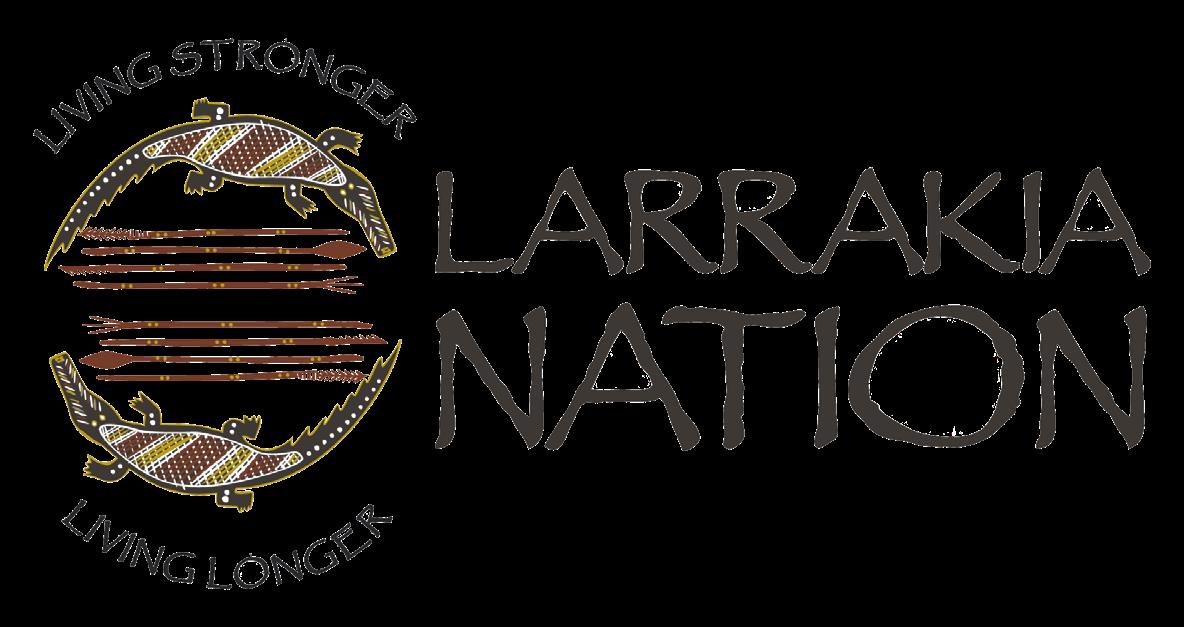

my hand to my foot! Another time while driving in my Datsun Stanza I was pulled over and informed that cars of this description usually had a body in the boot. They did not find one, but another officer was reaching into the glove box, looking for drugs, and I told him he was not going to find a body in there either!
I am an optimist…nothing has stopped me…I live life to the full…I have a story to share and try to inspire people.
I often ask the students to ‘put themselves in other’s shoes.’ If you have language difficulties, communication
challenges and quite often a disability, how would you want to be treated?
I encourage reflective thinking but unfortunately there are a lot of negative people out there that don’t take their words and actions into account and how it affects people when they say hurtful things. I believe society has changed to become not only more culturally competent but more understanding and respectful of people with disabilities. Our goal is to minimise the impact of distress not only on people with disabilities, but people of different ethnic groups.
My Dad wrote letters about all his children which were given to us after he died. His description of me was: ‘Richie was a bit unbalanced and uncoordinated but when he found himself, he was unstoppable’ which pretty much describes my life.
TAKE 5: Your first job: Work experience in the Bagot Community Clinic.
Favourite Book: Dreamtime Stories.
Favourite Hobby: Watching Darwin Salties Basketball or Darwin Buffaloes win.
Personal Hero: My mum. (The first strong woman from the Strong Woman’s, Strong Baby program and involvement with the original Apology by Kevin Rudd in 2008 “Nanna Nugala Fejo RIP 2022).
Skill you would like to learn: How to say no to people and I know there are a lot more of us reading this with the same skill challenge. I would encourage all to continue with the good fight as we all bring about continuous improvement to all our communities, irrelevant of our ethnicity because we share the common link of being proud Australians wanting to improve all our communities. But we still have a big job ahead of us!
August/September 2023 10 Link to... Cover Story
Prominent MC and speaker for Sydney Disability Expo
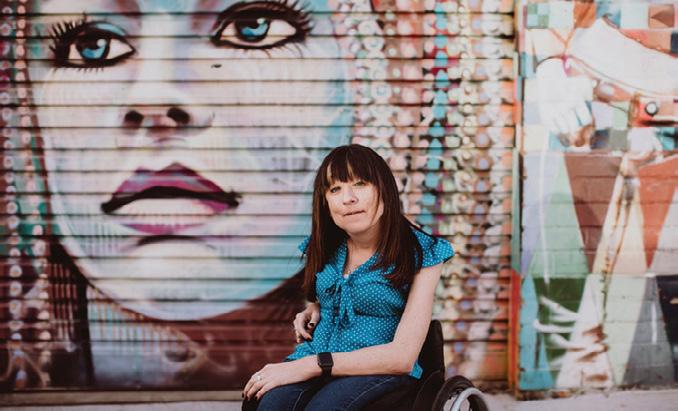

The event, for people with disability, family members and caregiver brings over 200 providers together showcasing medical, health and long-term care services; financial, travel, lifestyle and sports options, cutting-edge equipment, assistive technology and mobility aids for people of all abilities.
Disability Expo is a comprehensive event that caters to the diverse needs and interests of individuals with disabilities and their support networks. It provides an opportunity to explore the latest innovations and services in the disability sector, learn from experts in the field, and connect with a community of like-minded individuals.
The My Future, My Choice Sydney Disability Expo, presented by the Impact Institute, has announced that Mel Harrison will MC the event and Kylie Scott, will be the featured speaker. Harrison was the first person with a disability to compete in the Shitbox Rally. Scott is a disability advocate and NSW representative on the Down Syndrome Advisory Network.
Over the course of two days, attendees will gain valuable insights from speakers representing government and advocacy organisations covering a wide range of disability-related topics, helping them make informed choices and navigate the complexities of living with a disability. In addition to the informative sessions, the expo offers all-ages entertainment, live stage performances, fully catered cafes, and ample seating for socialising and networking.
The My Future, My Choice Sydney
It will be held at Sydney Olympic Park on August 4-5. For details visit: www.sydneydisabilityexpo.com.au
ImpactInstitute is excited to be bringing you our next season of the My Future, My Choice disability expos occurring in key locations along the eastern seaboard of Australia.

In 2023, the My Future, My Choice expos bring together disability product and service providers to ignite imaginations and equip attendees for a better future.
Our next Expo of the year will be the Sydney Disability Expo 4 & 5 of August 2023, 9am – 3pm at the Sydney Showground, Sydney Olympic Park.
02 9025 9380


sydneycoastdisabilityexpo.com.au
canberradisabilityexpo.com.au
More choice, more impact from Australia’s
FREE ENTRY 2023 EXPO CALENDER
biggest disability expos My Future, My Choice events@impactinstitute.com.au
melbournedisabilityexpo.com.au 17 FRI 18 SAT 01 FRI 02 SAT SEP NOV brisbanedisabilityexpo.com.au 13 FRI 14 SAT OCT FREE ENTRY 9AM - 3PM Sydney Showground, Sydney Olympic Park FRI 4TH & SAT 5TH AUG 2023
Link to... News
Kylie Scott
linkonline.com.au 11
Mel Harrison
An inclusive trip to the grocery store
Australia’s big three supermarkets are taking accessibility seriously, for customers and staff
In recent years Coles has launched an employee resource group called Coles Ability, bringing together team members from across the company, including those who have a disability and allies, all linked by their desire to make the workplace more inclusive. This team promotes key dates like International Day of People with Disability and uses them to educate other staff about how to support people with disabilities in the workplace. Coles is also a member of the Australian Network on Disability, which guides the company by auditing its access and inclusion plan.
When you enter a supermarket, what do you look out for?
Wide aisles? Quieter music? Wheelchair accessible trolleys? These are just some of the accessibility measures that Australia’s supermarket giants employ to make their stores more inclusive for customers who have disability. The measures might differ across stores or brands, but they’re part of a push to make the everyday chore of grocery shopping more accessible.
Danielle Kutchel spoke to the major supermarkets to find out more about their accessibility measures.
Coles’ long-term focus
Accessibility for staff, customers and the wider community has been a focus for Coles since the supermarket demerged from Wesfarmers in 2018,

HollyGreenwood
according to Katie Wyatt, Coles Head of Diversity and Inclusion.
She’s pleased to see it’s something that is being talked about more frequently now; “there is a very public conversation about disability being absent from many diversity and inclusion strategies around the world, and I think that’s shifting now,” she explained.
Over three per cent of Coles staff identify as having a disability. Within the company, a steering committee made comprising leaders from across the company guides the diversity and inclusion strategy.
“It is executive-led and sponsored, which is really important as a symbol of inclusion and making sure that we can make things happen in a big business, like Coles,” Wyatt said.
For Coles, accessibility isn’t just in the physical stores; it extends to the digital space too. After a public complaint several years ago about a lack of accessibility on the shopping website, Katie said Coles has made digital accessibility a priority. Coles even contacted the customer who made the complaint and worked with them to make improvements. It paid off; the customer later nominated them for a Centre for Accessibility Australia award, which the company won twice.
Within the recruitment space, Wyatt said Coles has made inclusive recruitment practices a priority, partnering with job access providers on opening up opportunities to people who need them and providing support to candidates throughout the process. All candidates are asked about what adjustments they might need during the process, whether its someone with a physical disability needing support to access a building or someone who is neurodiverse needing a bit more time on an assessment task. Last year, Coles was recognised as the top-ranked employer for inclusive recruitment in the Access and Inclusion Index. Coles has participated in that index every
Link to... Retail Profile
August/September 2023 12
year since its demerger, when it first set out external commitments around accessibility, she said.
Although Coles feels it has been a leader in the space, given the long-term focus on disability, Wyatt acknowledged that there is always more to do, from further improvements to web accessibility to extending its successful quiet shopping hour to more stores. It takes feedback from customers around accessibility seriously and is currently working on accessibility in packaging on its own-brand products alongside Dylan Alcott’s consulting business, Get Skilled Access.
“We’re very focused on things that we feel will make a really big and positive impact for our customers,” she said. Woolworths
prioritises disability voices
Woolworths is committed to the social model of disability, according to Geoff Trappett, Disability Inclusion
Lead at Woolworths Group, who said the supermarket giant “[accepts its] responsibility to remove the societal barriers that people with disability all too often come up against when the community is not designed with them in mind”.
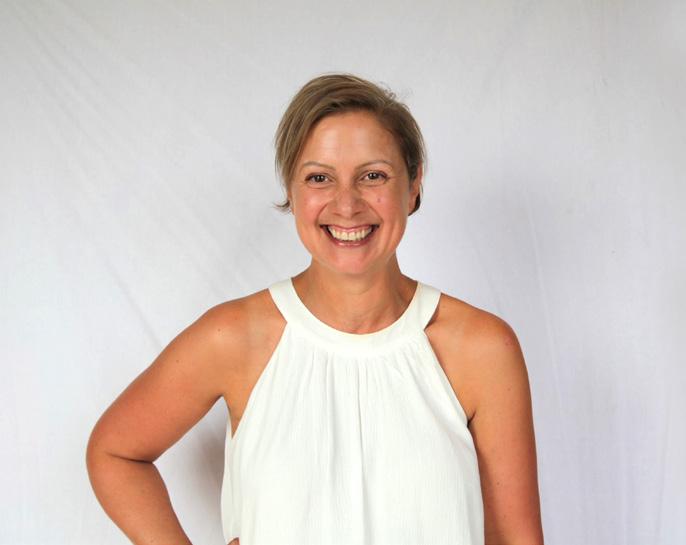
Trappett said Woolworths has worked hard to ensure that a disabled voice is in the room for all decisions at the company. This includes the voices of staff and customers as well as work with advocates like the Centre for Inclusive Design.
“We need to ensure as a large corporate that those voices, those unique voices, aren’t drowned out.”
The former Paralympic athlete said much of his work at Woolworths is around ensuring that he amplifies the voices and experiences of people with disabilities, and especially disabilities that aren’t the same as his.
“We recently celebrated Neurodiversity Week at Woolworths Group and one of the things that I was extremely proud of is that we set up a culturally safe environment where a number of people
who do identify as being neurodiverse were able to come forward and talk about their experiences. And that’s something that makes me extremely proud as a disabled person… because it’s only through speaking about the barriers that we’re experiencing on a daily basis that we can look to possibly improve.”
Woolworths aims to create an inclusive culture for its staff and customers, which Trappett said “comes down to confidence on both sides”. This means the person with a disability feels comfortable talking about themselves and knows that any information they divulge will be acted upon, and the person they are interactive with is confident that the information they receive is important to that person.
“As a disabled person, you need confidence to know that by you divulging the barriers that your disability presents, that that information will be used in an effective way. And that's on us as a large corporate to ensure that we have the processes to use that information effectively,” he said.
That confidence extends into staff recruitment, where candidates are given an opportunity to speak about any barriers they might face during the hiring process to allow HR staff to work with them to remove those barriers. This then leads to workplace adjustments once the person becomes an employee.
Trappett said disability inclusion is a matter of “continuous improvement” for Woolworths, as the company strives to improve its disability confidence. Part of this is giving timelines for changes – in his words, telling people, “We understand you might be experiencing a barrier. This is our plan to remove that barrier.”
Like Coles, Woolworths has a Disability Team Network, an employee reference and resource group that provides guidance on disability issues. Discussions are not limited to staff; the customer experience is also considered.
“When we make decisions at Woolworths group, we’re becoming
increasingly better at ensuring there’s a disability voice in the room. And what I find is with the decisions we make, we may have been teetering on the edge of making that decision or implementing such a process or product, but having a disability use case may be what pushes that over the edge.”
Scan and Go, a new Woolworths checkout initiative, fits into that category. By using Scan and Go customers avoid staffed checkouts, which may be useful for customers with sensory or social challenges. Another priority for Woolworths is the provision of open space at the front of a store, so that customers don’t find themselves walking into a cluttered environment that could be both a sensory and physical challenge.
“We know that barriers for a person with a disability are unique and specific to each individual, so we need to make sure that we have a number of options that are open to each customer to allow them to have a seamless and inclusive shopping environment,” Trappett said.
Aldi’s accessible stores
An Aldi spokesperson said in a statement that Aldi stores are built in accordance with accessibility standards for people with disabilities. They added that “most ALDI stores don’t play any music which creates a quieter and less stimulating environment for customers who prefer a low sensory shopping experience.”
The spokesperson said all Aldi employees undertake training on how to create a good experience for customers, including those with disabilities.
Katie Wyatt
RETAIL PROFILE
linkonline.com.au 13
Daily life brings many possibilities with assistive technology

This is where the team at Astris PME can help by bridging the gap from impairment to access and ability.
AT for daily living can range from technology options such as kitchen aids through to more complex technology that Astris PME specialise in such as mobile standers, gait trainers, commodes or a custom scripted wheelchair and seating; all to enable full engagement in daily life. Taking into consideration what a person wants, needs, or is expected to do throughout the day will help identify where AT might be necessary to facilitate this. The use of multiple AT items throughout the day may be needed to increase opportunity and potential for occupational engagement, and having more than one piece of AT is not uncommon to facilitate achievement of many daily life goals.
Daily life is anything but static. Every day brings different dynamics or situations, allowing participation in tasks and roles that give value and meaning to our lives. This fulfills an essential part of human nature, where engagement in daily tasks and roles as occupations is the key concept, achieved through opportunity, access and ability.
Building on the concept of 24-hour positioning this can be widened to consider occupational engagement, described as a form of involvement for health and wellbeing. Definitions vary but what is understood is that engagement differs from someone’s ability to perform a task.
It extends beyond performance and provides experiences that have positive outcomes at an emotional, cognitive, and overall wellbeing level. It also includes the idea that individuals may engage passively but achieve similar outcomes. So, no matter the extent of participation, individuals are able to achieve occupational engagement in daily life at all levels.
How, in a non-static world where occupation is vital to quality of life, do we facilitate this for individuals that face limitations to opportunities, access or have varying levels of ability?
One part of the solution is using assistive technology.
With the support of your prescribing therapist, identifying the most appropriate AT provided in engagement for daily living is a process that should include open communication and assessment. This will give an understanding of a person’s routines, wants, needs, expectations and readiness for AT solutions, as well as the setting of clear goals and planning.
Add to this the equipment expertise from your Astris PME representative and you have everything you need to find the best solutions to enable participation and engagement in a wide range of daily tasks, activities and roles. This may include several items at various stages or working new items in with existing ones. Whatever the solution required Astris PME offer an extensive holistic range to enable participation and engagement in daily life.
For more information, contact Astris PME on: 1300 131 884 or email: clients@astris-pme.com.au.
Link to... News August/September 2023 14
Play and autistic girls
By Olivia Karaolis
Our understanding of autism and its impact on children and young people continues to change. Once thought of as a condition that effected boys more than girls, we now know that this reflects a delay in diagnosis many girls are receiving a diagnosis of autism later than boys, often well into adulthood.
This may be because many girls can cover some of the common characteristics and traits, for example, they can imitate the actions of those around them, appear to form friendships and the attribution of their behaviour to shyness (Hiller et al., 2014). Like boys, girls with autism may find it difficult to manage social situations, to communicate and have very specific interests. They will play, also like boys in ways that are uniquely their own.
As the parent of a young girl with autism, you can support their unique way to play. For example, many families of girls with autism have reported that although their child seemed to manage pre-school or school, they would unravel
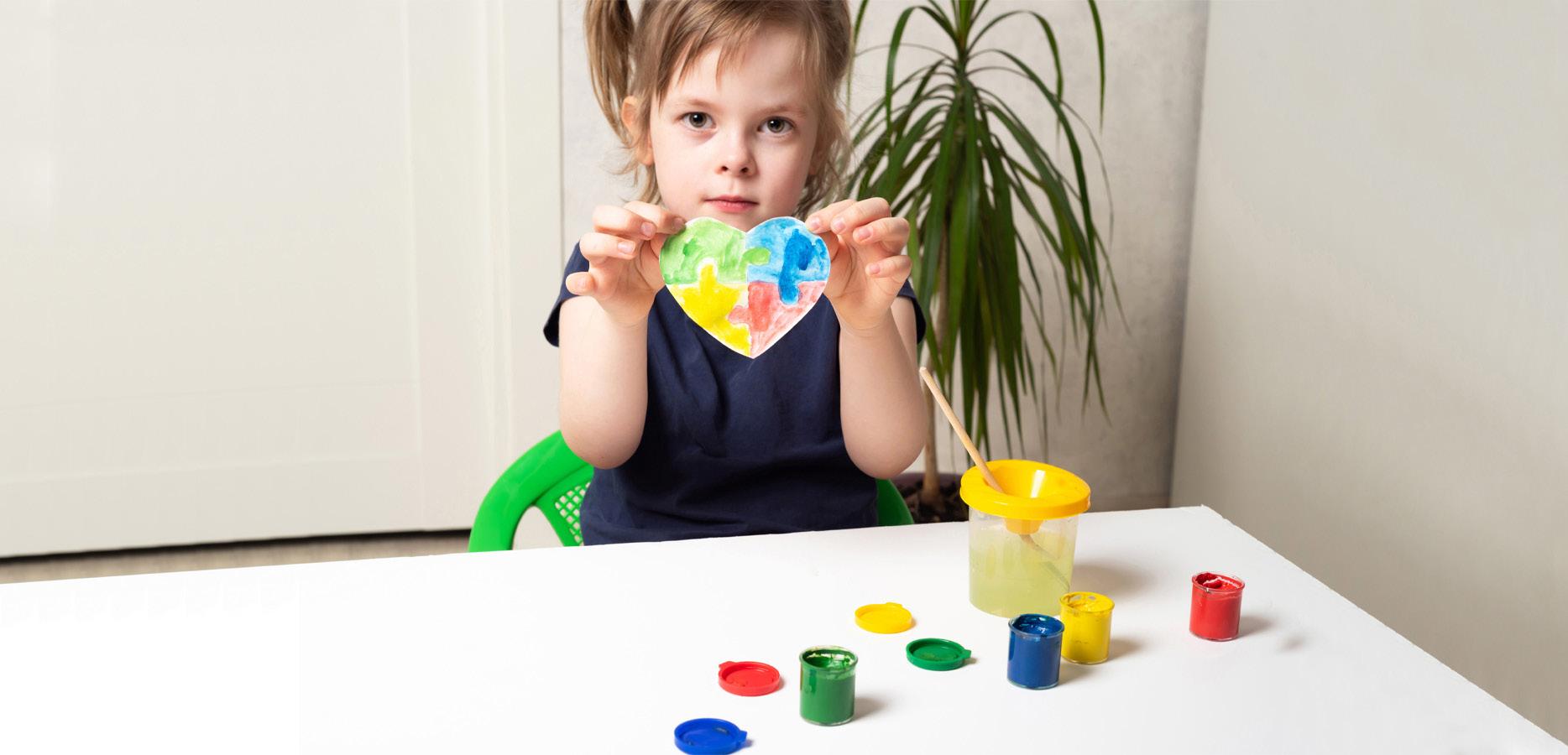
and show signs of stress when they got home. You can help your child by:
• Reduce the demands you place on your child after they have been in educational settings. This includes the amount you ‘talk’, try asking them fewer questions, minimise after school social activities, or visits to sensory stimulating places like shopping centres or medical appointments.
• Provide your child with some sensory rich play, think about their interests, for girls with autism, it is often creative play and visual arts.
• Honour their interest in collecting specific objects such as sparkly pebbles, animal figures or insects. Give your child time and a special container to keep these items and if possible, extend their interests to other similar objects. Remember to always respect your child’s preferences and never force them to accept an object as this can be very stressful to their world.
• Talk to the hand, use a puppet to connect with your child. Think about their favourite animal or toy to which they have a special attachment and
choose a puppet that is similar. Introduce the puppet to your child and watch their reaction. Go slowly, do they touch it and want to make a connection? Children may reach for the puppets eyes or try to put their hands in the puppets mouth. That is okay, they are figuring out how the puppet works.
• Respect the way your child plays, it may look different to the play of other children their age. Provide opportunities for them to play with, and observe children of a similar age in play, do not intervene and only support them in responding to the invitations to play made by other children. It is possible your child may not understand the actions of the other children and be unsure of how to play.
• Observe your child and discover how they love to play. Use this information to set up play environments, fairy lights, tents, cardboard boxes and cosy rugs.
NEWS linkonline.com.au 15
Dr Olivia Karaolis lecturer, Special & Inclusive Education, University of Sydney
The Joy to Move Freely




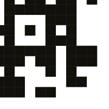

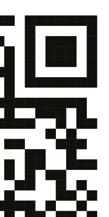








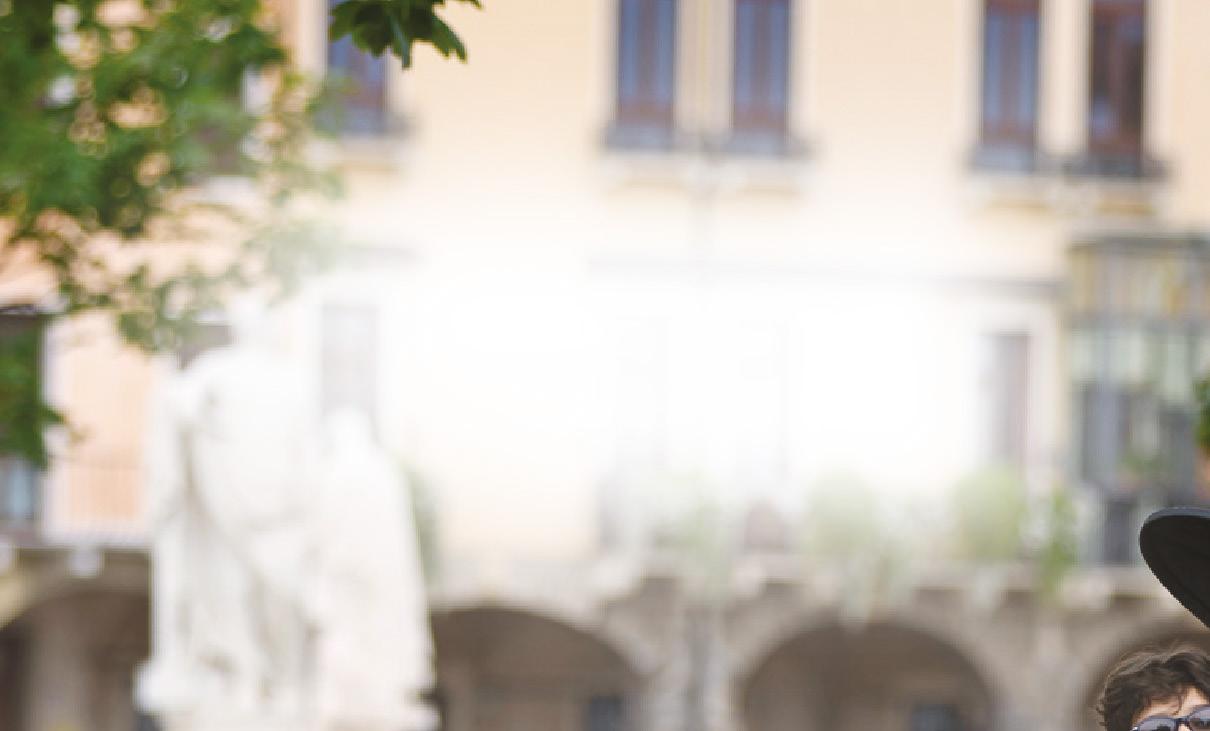

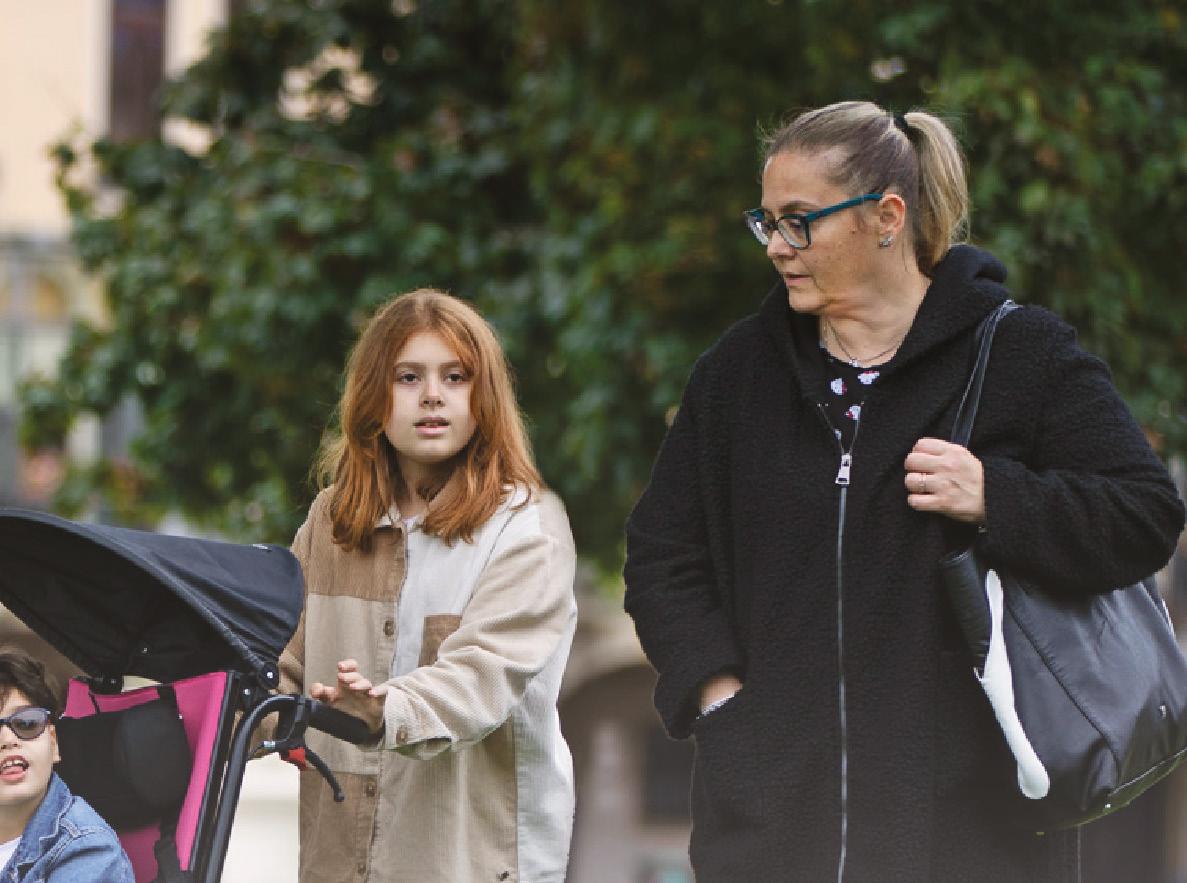
As market leaders in Assistive Technology (AT) equipment in Australia, Astris PME provides high quality products that promote independent, active lifestyles. We can provide solutions that match the needs of people with a disability, and help therapists achieve the best outcomes for every client, in every age bracket. Astris PME have a huge range of trial equipment available so if you would like to make an appointment with one of our Specialist Consultants or enquire about any of the products and services we offer, please call us. We will be happy to help!

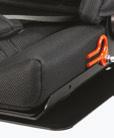

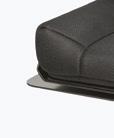











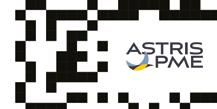

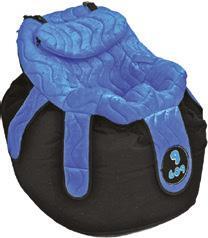
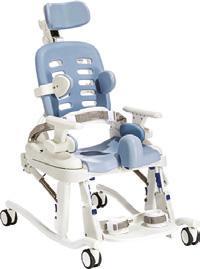
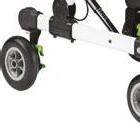


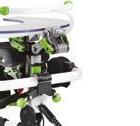
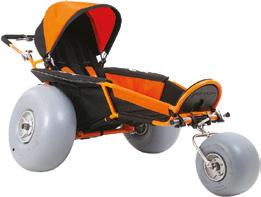

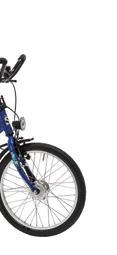
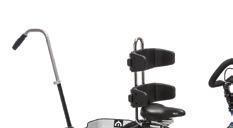
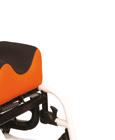


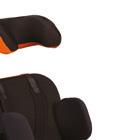
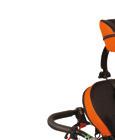
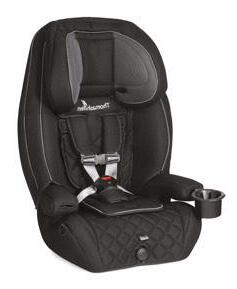


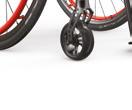


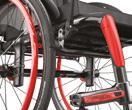
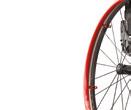






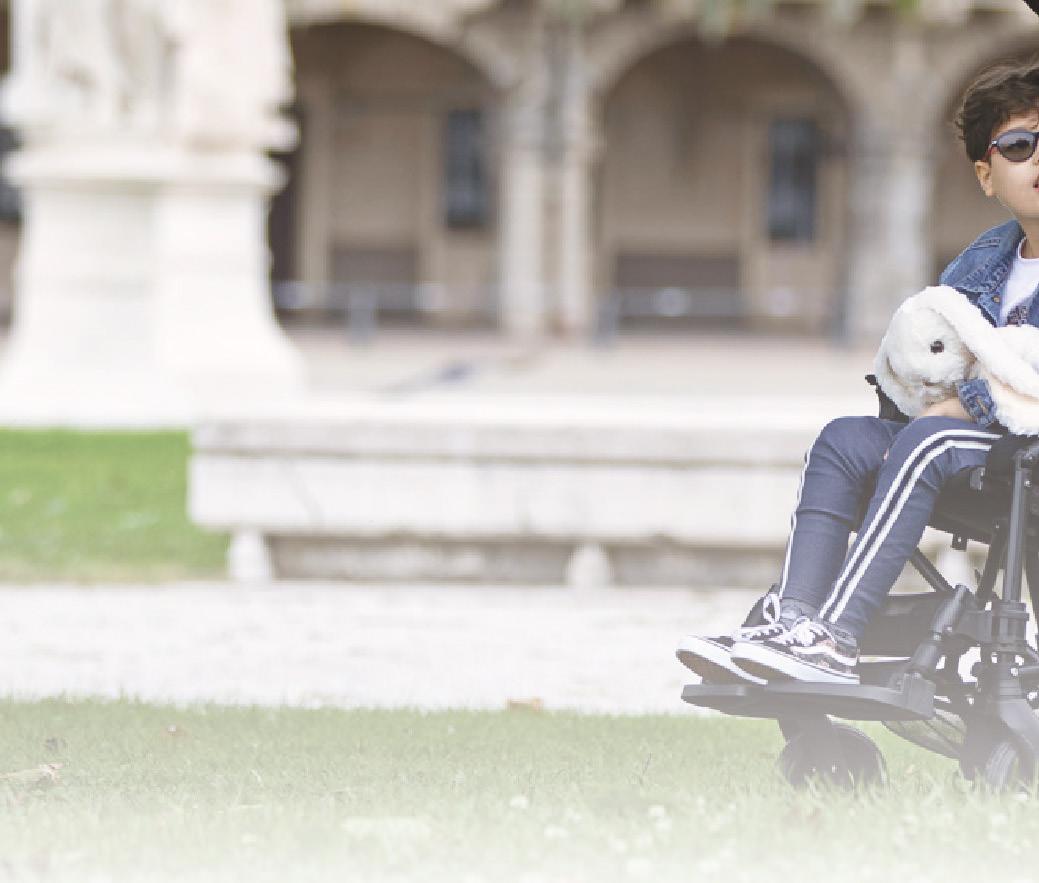
1300-131-884 | astris-pme.com.au Showrooms in Sydney • Melbourne • Young • Canberra • Brisbane • Newscastle
FREE TRIALS
Wheelchairs Outdoor Recreation Car Seats Alternate Seating Tilt-In-Space Wheelchairs Gait Training
Powered Wheelchairs Hygiene & Bathroom Trikes & Bikes Hercules Car Seat 18-80kg Scan the QR code to find out more PRODUCT SPOTLIGHT
Manual
Wheelchair Seating Systems












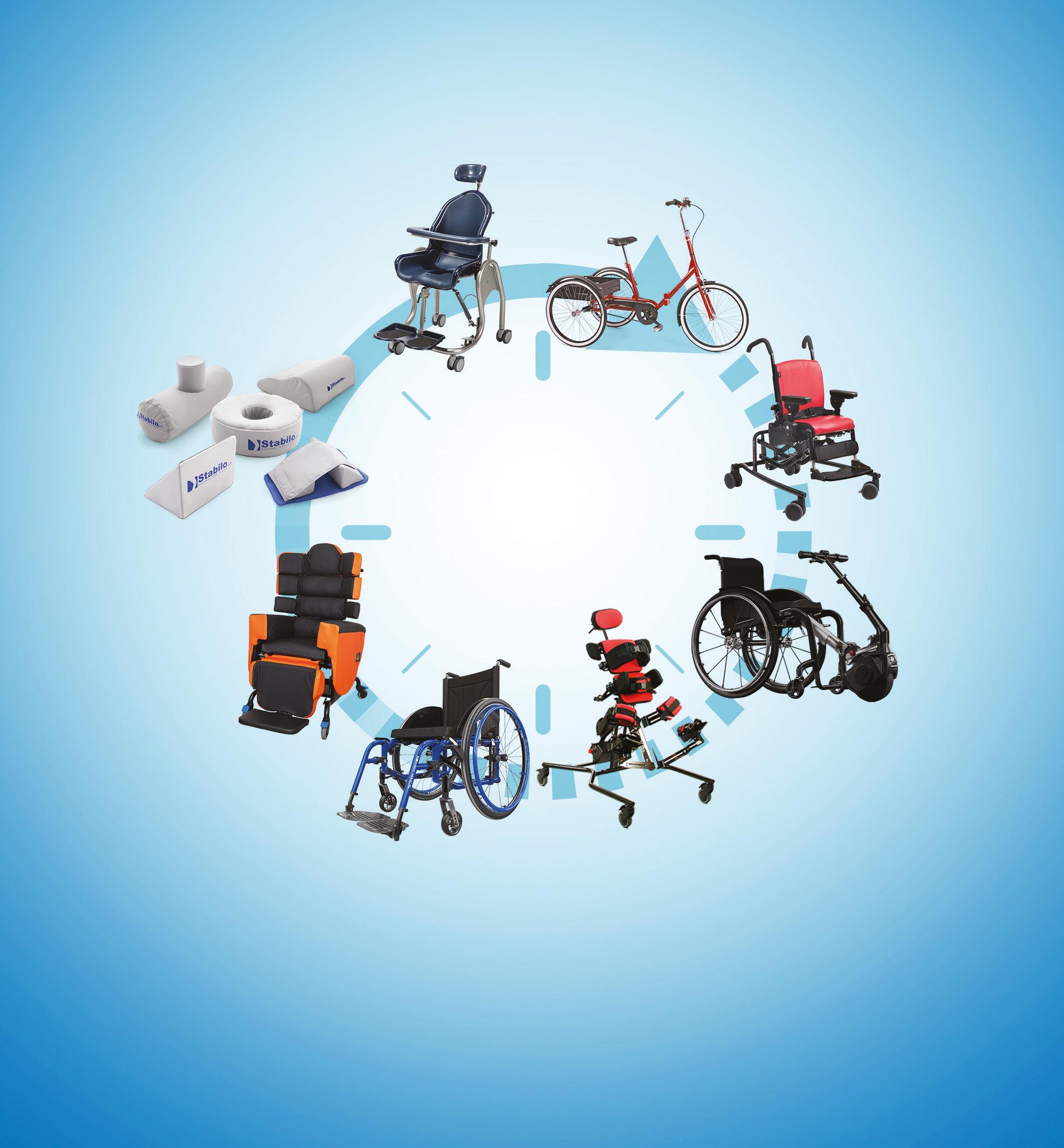









































DEALERS THROUGHOUT AUSTRALIA AND NEW ZEALAND apexmobility.com.au 1300 212 192 24-Hour Positioning APEX Mobility supplies Australia and New Zealand’s largest range of specialised Assistive Technology equipment and supports for 24hr positioning, mobility and care. Ormesa 207 Sport Tricycle Schuchmann Boris Rifton Activity Chair 10AM12PM 8-10 AM 6-8 AM 9PM6AM 12-2 PM 2-4 PM 4-6 PM 6-9 PM Klaxon Twist Timo Ella Motion Composites Helio C2 StabiloBed Sleep System Careflex SmartSeat Pro II
Conference of State Parties gather in New York
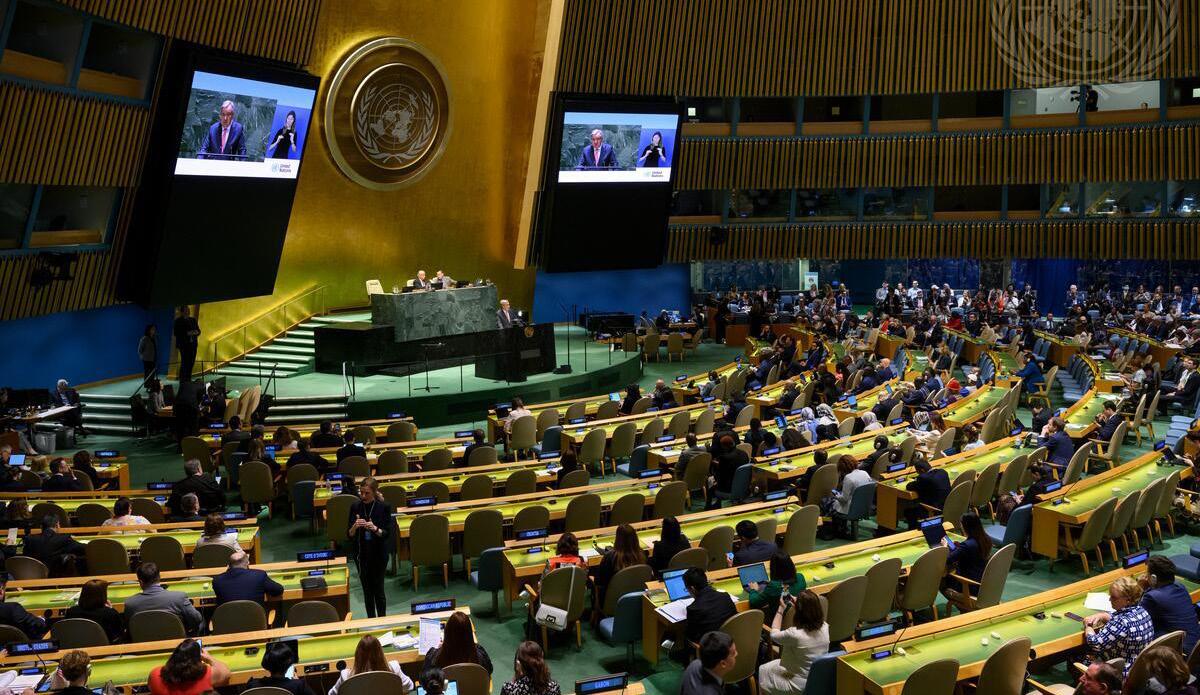 By Natalie Wade
By Natalie Wade
Most of you have heard of the Convention of the Rights of Persons with Disabilities (CRPD). However, many of you will not have heard of the Conference of State Parties to the CRPD, held annually in New York.

The conference brings together all State Parties (i.e. countries) to the CRPD to report back to the United Nations on their progress1
Civil society organisations also attended the conference and provide shadow reports on their countries progress. This year I attended for the Australian Federation of Disability Organisations (AFDO).
The theme of the 16th session of the conference was harmonising national policies and strategies with the CRPD achievements and challenges with subthemes focusing on the equal access to sexual and reproductive health services for persons with disabilities, digital accessibility for persons with disabilities and reaching the underrepresented groups of persons with disabilities.
In light of these themes, Social Services Minister Amanda Rishworth reported on Australia’s Disability Strategy, work with non-governmental organisations representing underrepresented groups of people with disabilities including First Nations organisations and the establishment of a National Centre of Excellence in Intellectual Disability Health. Minister Rishworth also reported that Australia will develop an international disability equity and rights strategy to guide international engagement.
Overall, the Committee for the CRPD (which oversees the CRPD at an
international level) noted that while gains have been made to advance the rights of persons with disabilities around the world, this has been reduced and displaced in parts due to global events including the Covid19 pandemic, natural disasters and economic crises.
My key takeaway from the conference is that to realise the rights of disabled people in all nations and internationally, it is imperative to ensure people with disability have a voice, access to information including digital information, and are active participants in decision-making.
The Australian Government funded a range of disability representative organisations to support 14 civil society delegates from across Australia to attend the conference, who were aged between 18 and 35, representing a diverse section of the community.
1To read more about the Conference, visit: https://social.desa.un.org/issues/ disability/cosp/16th-session-of-theconference-of-states-parties-to-thecrpd-cosp16
August/September 2023 18
“…it is imperative people with disability have a voice, access to information including digital information, and are active participants in decision-making”
Link to... News
Natalie Wade: Equality Lawyers –founder and director: 08 7084 1190 or natalie@equalitylawyers.com.au
National Brain Injury Conference - Call for Papers
THE CONFERENCE ENCOURAGES PRESENTATION PROPOSALS IN THE FOLLOWING SUBJECT AREAS:
Lived experience of brain injury
– consumers, significant others, family members and carers
Innovations in evidence-based approaches to the acute care, recovery and rehabilitation of people with a brain injury
Concussion/ 'mild' Traumatic Brain Injury/ post-concussion syndrome
Brain Injury Australia will hold its 9th National Brain Injury Conference at the Adelaide Oval from September 24 to 26, 2024, with the support of the Government of South Australia, The University of South Australia and Brain Injury SA.

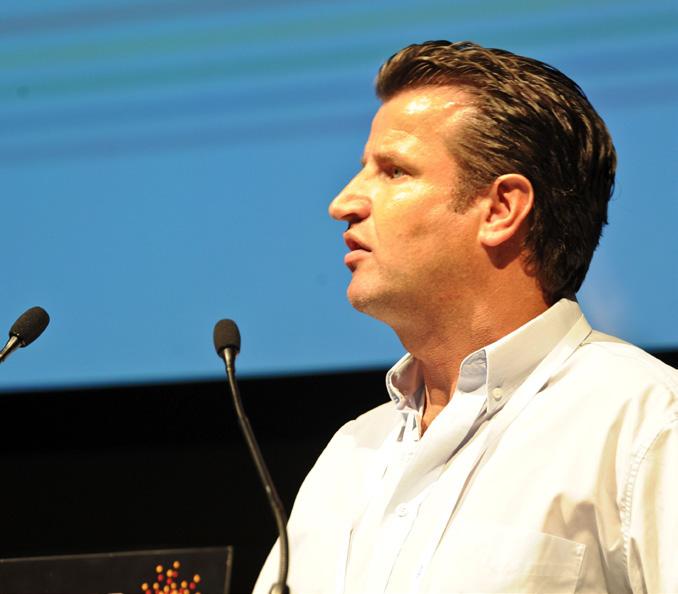

The conference organising committee invites people with lived experience of brain injury, family members and carers, researchers, clinicians, allied health professionals, service providers and policymakers to submit proposals for presentations on everything brain injury.
As with all previous National Brain Injury Conferences, Brain Injury Australia will put the voice of people with a brain injury at the centre of the conference program, including the annual ‘Consumer Opening Address’. The committee welcomes presentation proposals by people with a brain injury, and presenters from South Australia.
Multiple presentation proposals will be accepted. Closing date for submissions is December 1, 2023.
Founded in 1986, Brain Injury
Australia is the nation’s peak advocacy organisation representing over 700,000
Australians living with a brain injury. Its annual National Brain Injury Conference has become one of the premier learning and development events on the disability calendar –driving improvements in services and supports for people living with a brain injury, their families and carers.
To submit your proposal go to: https://interpoint.eventsair.com/ braininjury2024/cfp
If you have any questions about the conference or need assistance submitting your presentation proposal contact Interpoint Events, on: 1300 789 845 or email: info@interpoint.com.au
Domestic and Family Violence and brain injury
‘Young’ stroke
Peer supports, mentoring of people with a brain injury
Brain injury and employment
National Disability Insurance Scheme
Brain injury in Aboriginal and Torres Strait Islander and culturally and linguistically diverse (CALD) communities
Management of ‘challenging behaviours’/ ‘behaviours of concern’
Alcohol and other drug-related brain injury
Brain injury in the military
Traumatic Brain Injury in older Australians
Prevention of brain injury.
linkonline.com.au 19
Link to... News
Nick Rushworth Conference Chair Executive Officer, Brain Injury Australia
A business born out of caring
GNB1 Syndrome is a rare genetic mutation that was discovered in 2016. In four-year-old Sadie’s case, having GNB1 syndrome means global developmental delay, and hundreds of epilepsy seizures a day.
As full-time mum to Sadie and almost two-year-old Pacie (who is neurotypical) and a full-time disability carer to Sadie, Jess doesn’t get much time out. Life is full of the busy-ness of primary parenting two pre-schoolers and Sadie’s additional care needs and medical appointments.
Finding ways to get a bit of “me time” is one of the outcomes Jess values from her experience of Carer Gateway. She learned about the service a couple of years ago and found support with trying a ketogenic diet for Sadie’s epilepsy helpful.
“I’ve really grown into my role of mum and carer. I’ve learned to let go of the pressure of the high standards I set myself as a mum and relaxed into
utilising things like television, snacks and easy meals so that I can get a little break – things that previously would have had me feeling guilty.”
Jess has also found purpose in creating her own small business, At Sadie’s Pace, that she hopes will help other carers and people with disability to stay on top of the admin of caring.
At Sadie’s Pace is a range of premium planners and stationery for carers and people with disability. Jess couldn’t find the kind of hard copy planner she wanted to help her keep track of Sadie’s appointments and medications, so she created her own.
“I had so much paperwork and so many different planners, and I just wanted it all in one place. It’s come from my experience but hopefully it helps others. I’ll definitely use it myself!” Jess said.
Jess had the idea for the planners in March 2022 and works on them whenever she can. They are undated
so can be started anytime and include an episode diary, medication and sickness charts, therapy checklists, affirmations and sticker pages.
She enjoys building her online identity and community as a ‘medical mum’ and has recently allowed herself to relax into spending time with her girls as a friend and a mum.
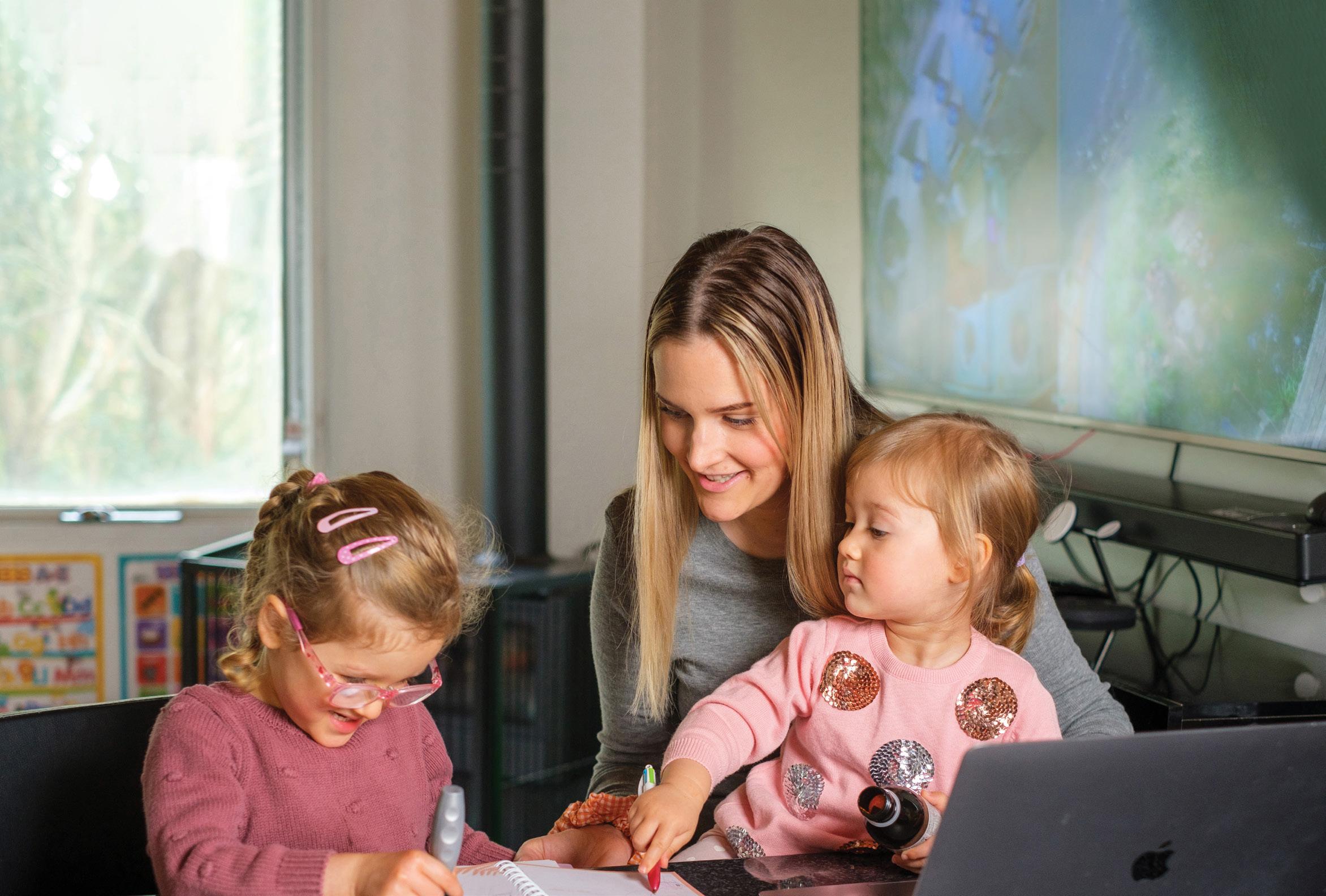
“I'm a lot more present with them than I used to be. We have fun together, and I don't feel as alone. It’s so great.”
If you would like to find out more about the journal, visit: atsadiespace.com.au
You may care for someone by yourself, but you're not alone - it's OK to ask for support.
Visit: carergateway.gov.au or call: 1800 422 737.
August/September 2023 20
Link to... News
Jess Sculley and Blake Caspersz are proud parents to two young daughters. Their oldest, Sadie, has GNB1 syndrome, epilepsy and autism. Jess is Sadie’s main carer and has been inspired to launch a range of planners and stationery for carers.
If you care for someone, it’s OK to ask for support
If you care for someone with a disability, it’s important to look after yourself as well. Carer Gateway delivers free support and services to thousands of carers just like you, such as emergency respite, tailored support packages, peer groups and skills courses.

You may care for someone by yourself, but you’re not alone - it’s OK to ask for support. Visit carergateway.gov.au today or call 1800 422 737. MERRI 8618 Emergency Respite • Peer Support • Counselling • Skills Courses • Coaching & more
How can we be better prepared for people with disabilities in an emergency?
By Susan Wood
Have you thought about your own preparations in an emergency? In fact, what do you consider an emergency?
These questions and more were asked at the first National Forum on Disability Inclusive Disaster Risk Reduction, held at the University of Sydney on June 2, 2023.
Led by Associate Professor Michelle Villeneuve from the Centre of Disability Research and Policy at The University of Sydney, the event brought together people with disabilities, emergency services, and members of government to discuss the very real responsibility of making sure people with disabilities are supported in the event of a crisis.
One of the first things you hear from Villeneuve is the importance of Person-Centred Emergency Preparedness (P-CEP), a toolkit codesigned by people with disabilities. It enables people to self-assess their preparedness, capabilities and support needs and develop a personal emergency plan.
A concept that is relatively new and something that, as a person with a disability, I didn’t really consider, but makes sense.
If there is an emergency, no matter what it is, and emergency services don’t know I exist then shouldn’t I let them know as part of my P-CEP?
In the room, each table had been deliberately selected so that there was an equal mix of people with diverse
disabilities, community disability organisations and emergency services. It meant that when it came time to brainstorm and discussing ideas on how to best approach to successfully implement disability training across multiple facets of emergency services and how best to work together so everyone is made aware of P-CEP, the roundtable discussions felt equal.
Peter Tully from the Queenslanders with Disability Network, who helped co-design the P-CEP gave some very real facts.
• People with disabilities are two to four times more likely to die in a disaster, than the general population and
• People with disabilities take longer to recover from the aftermath.
He noted that a shared responsibility of preparation supported by emergency management and government representatives is key.
Member for Gosford, Liesl Tesch, shared her own experiences and emphasised that disability isn’t a one-size-fits-all, even when it comes to emergency preparation.
She gave examples of how she can walk to a degree, but in the event of an emergency her wheelchair is a must.
“When people think about a crisis, reading the words “disaster risk reduction” usually conjures up the thought of flood, fire, or a tsunami,” she said.
However, when there was an opportunity to give some comments before the day started, when she spoke about her own experiences, growing up in the fire-prone Blue Mountains in New South Wales.
“Something that I hadn’t considered was what a disaster risk is in a metropolitan area. It wasn’t until five years ago when I moved to the sixth floor of an apartment block in Sydney that it suddenly dawned on me. What do I do if my building was on fire? I can’t run down the fire stairs. What do I do?”
The speakers and panellists were as diverse, as the people attending. Meaningful codesign and subsequent implementation was a running theme, and people were enthusiastic about wanting to make a change to the way people with disabilities are supported. The whole day made me reflect on the enormity of disability. It can’t be emphasised enough that a complete disregard of preparedness in the event of any small or large-scale disaster potentially affects five million Australians nationwide.
Surely that’s a big enough reason to start a national change.
Read the full article on SCIA’s Resource Hub at https://scia.org.au/ resource-hub/
Susan Wood hosts SCIA’s podcast Have the Nerve. You can listen to Michelle Villeneuve on Episode 26: Emergency Preparedness and Planning for People with Disabilities.
August/September 2023 22
Link to... News

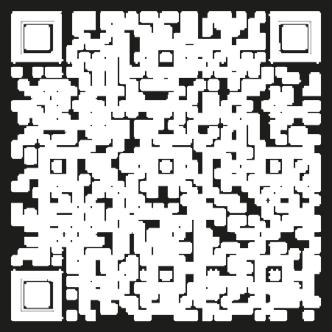

https://scia.org.au/resource-hub LISTEN WATCH READ Funded by Australian Government Department of Social Services. For more information visit DSS.GOV.AU scia.org.au/resource-hub/ Information for people with disabilities curated by people with disabilities
A passion for inclusion finds its way into the animal world
Bova Aus specialises in veterinary compounding and manufactures life-saving medications for sick and injured animals. But they are equally passionate about inclusion.
When Bova's HR manager, Aaron Talbot, needed more staff for their Caringbah laboratory in Sydney, he decided to diversify and discovered the benefits not only to the lives of people with disability but also to the business as well.

Aaron turned to NOVA Employment. This NSW based not-for-profit Disability Employment Service has assisted more than 17,000 people with disability into open employment.
Talbot hired two dedicated workers through the efforts of NOVA Employment Caringbah.
He said workers Teresa and Blair have
been an invaluable part of the Bova team since day one.
"The quality of applicants and employees that we get from NOVA is amazing. Blair has been with the company for four years now, and he has grown not only as a person in his role, but as a person within himself.
“Teresa has been with Bova for nearly two years and has shown her value from day one with her positive attitude. We feel incredibly lucky to have her as part of the Bova family,“ Talbot said.
Bova Aus provide high-quality tailormade medications to improve the health and wellbeing of animals across Australia and believe that the quality of a compounded medication is a vital component of a successful clinical outcome. But they also place an equally high standard on their dedication to inclusion and diversity.
For business owners to harness the talent and skills that people with disability can offer Talbot’s advice is to always keep an open mind.
"People with a disability add tremendous value to any business but I think it's an area where employers are very hesitant to tap into, because the stigma is still there,“ he said. "My hope is that the increased awareness that NOVA is creating in terms of the benefits that people with disability can actually bring to your business will mean that such preconceptions about them will change.“
NOVA Employment can assist businesses of all sizes and are now providing people with disability more employment opportunities across Sydney and the Southern Highlands.
Head to www.novaemployment.com.au to find out more.
August/September 2023 24
Link to... Employment
Teresa and Blair
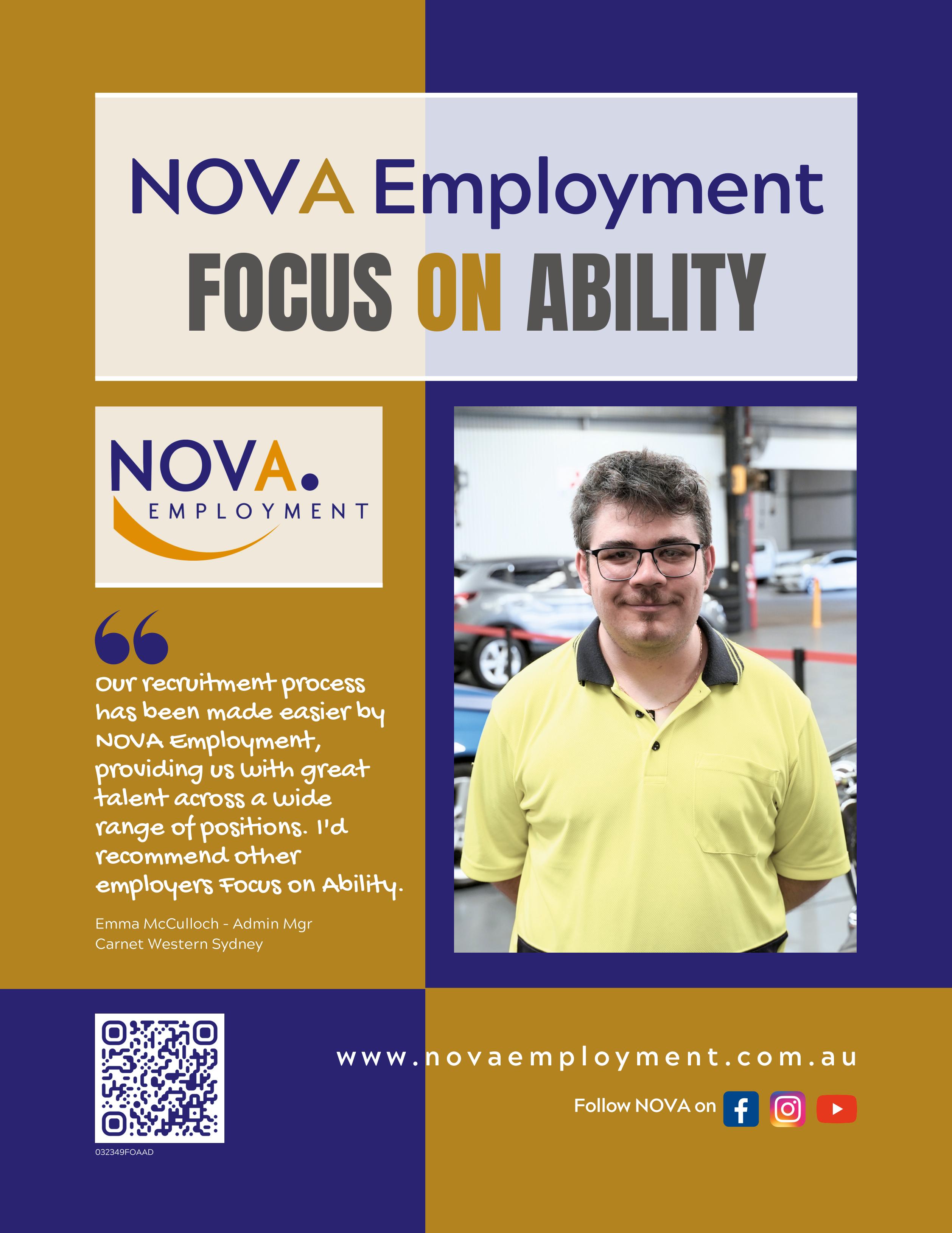
A place of my own: more choice, more independence
New disability accommodation options are combining accessible design and innovative on-site support models to offer more independence.
Brad Holloway’s goal to find a home where he can live alone with the right support seemed unattainable, until he heard about Highton Green, a new mixed-use development in Geelong.
“This has been a long time coming. I have been looking for a suitable house for 20 years,” the 45- year-old said, who shares his new home with his dog Tex.
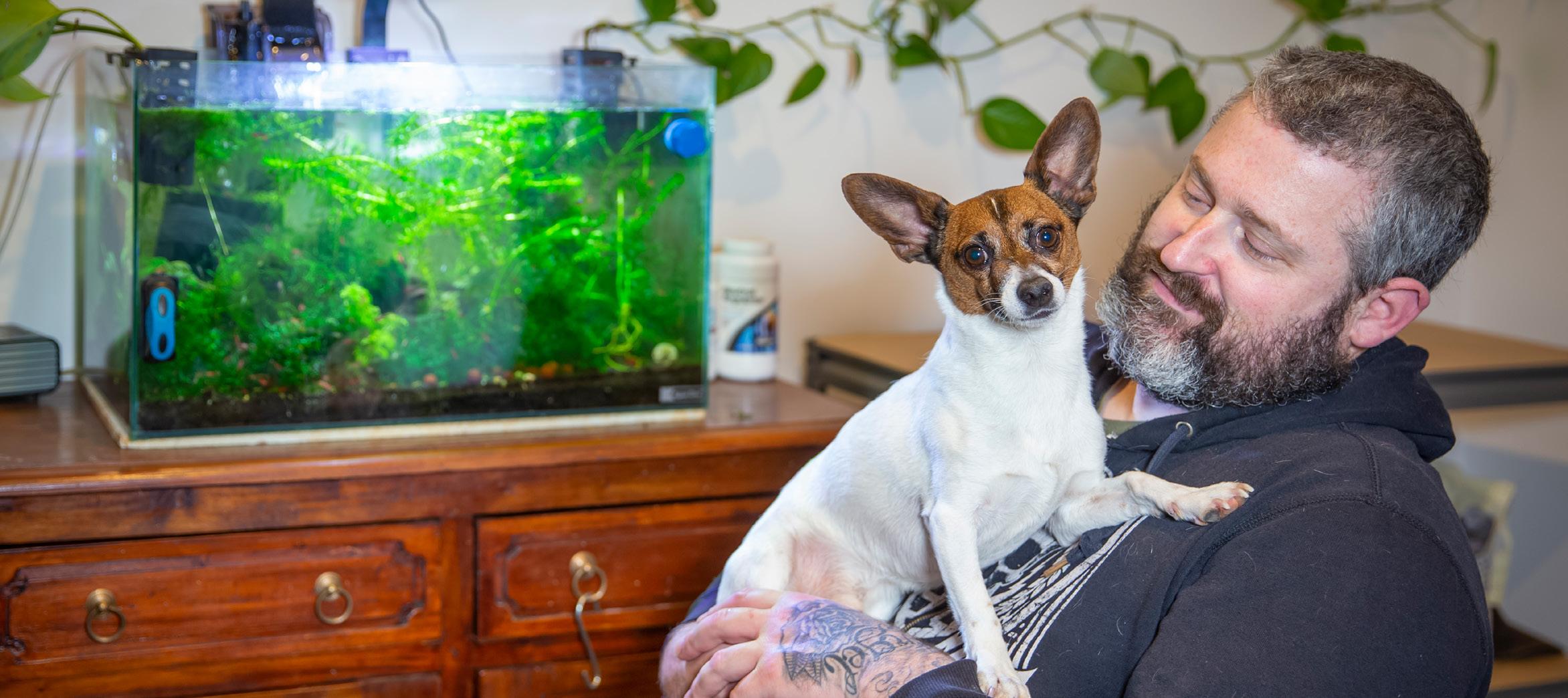
Brad is one of 12 people living in new specialist disability accommodation apartments by Emerge Living, who share 24-hours-a-day onsite support from genU.
Sharing onsite support with other residents was a new but attractive concept for Brad, and an important factor in his decision to sign his long-term lease.
“It gives me comfort knowing someone is downstairs to help me and knowing I don’t have to call mum, or I don’t have to wait until tomorrow when a support worker comes,” he said.
Rose O’Brien, genU operations manager at Highton Green said that the shared support model offers flexibility. “genU staff are based in a separate, dedicated unit in the building. They are available day and night to provide planned support including check-ins, or unplanned help as and when needed,” she said.
“It can create new options for how people access or combine types of support, and funding savings that may be able to be used differently.”
Vacancy coordinator at genU, Tanya Sexton said the combination of genU support with accessible design and technology used by Emerge Living in the Highton Green apartments offer a sense of security to the new residents and their families.
“Brad’s mum has shared with me the peace of mind his new situation has given her,” she said.
“It maximises independence, giving people the option to live in their own space with the comfort of on-site assistance for short times in their day –a concierge-style service.”
As he settles into his new home, Brad is enjoying a layout, cabinetry and features that were designed with easy wheelchair use in mind from the very beginning. His apartment also features a second room which can be used as a guest room, study or for carers if needed in the future.
“This place is so advanced compared to my last place,” Brad said. “My wheelchair couldn’t even fit in my last bathroom, so I had to hop on the floor. I catch myself saying ‘oh wow, this is great’ every time I have a shower here.
“I wake up every morning happy.”
August/September 2023 26
genu.org.au/highton-green/ Link to... Employment
Visit
Brad Holloway with Tex
You reaching your potential is our passion. At genU we’re building more inclusive communities through personalised disability support, employment and seniors services where you are in control.
Now providing NDIS services in Tasmania. genU. Genuinely you.


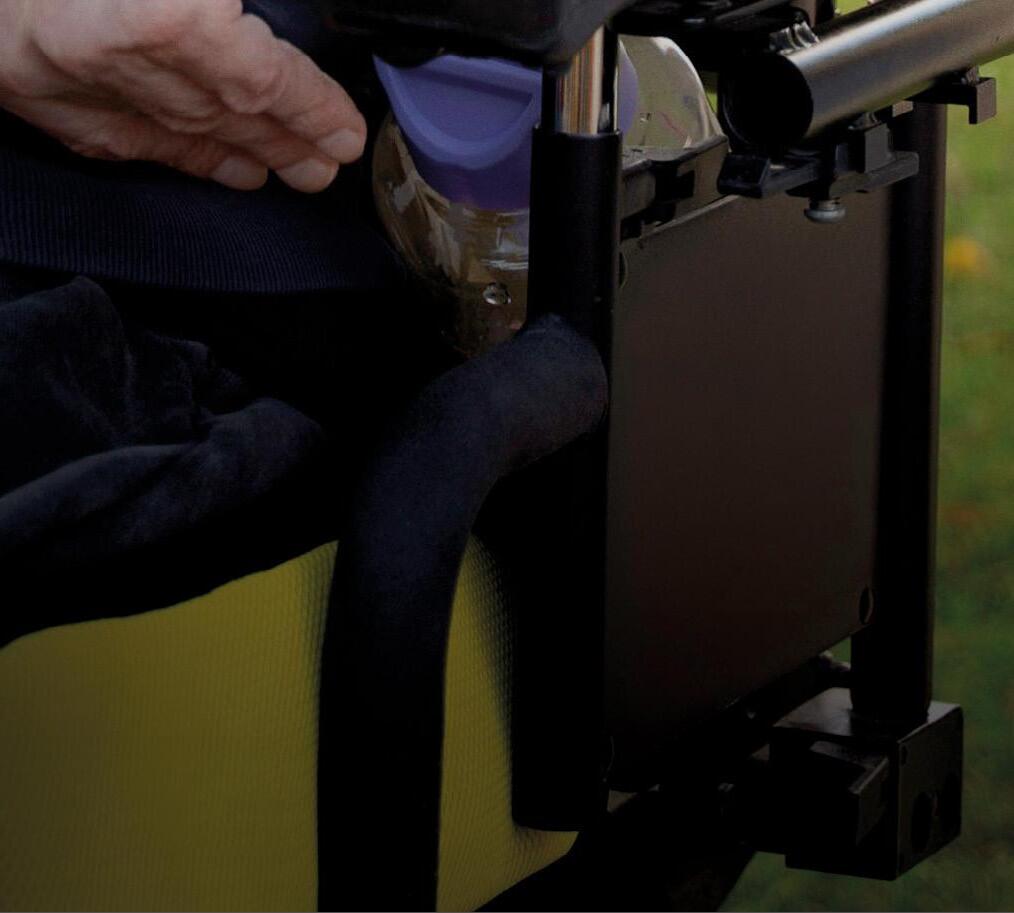


genu.org.au

1300 558 368


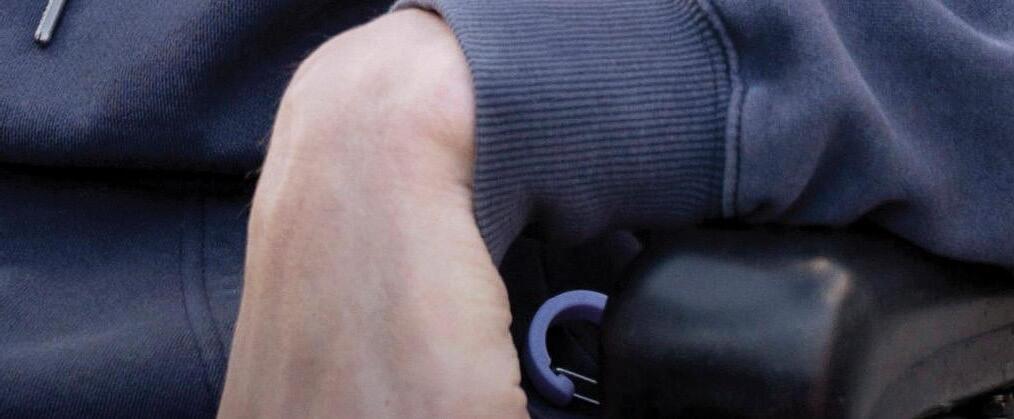
contact@genu.org.au
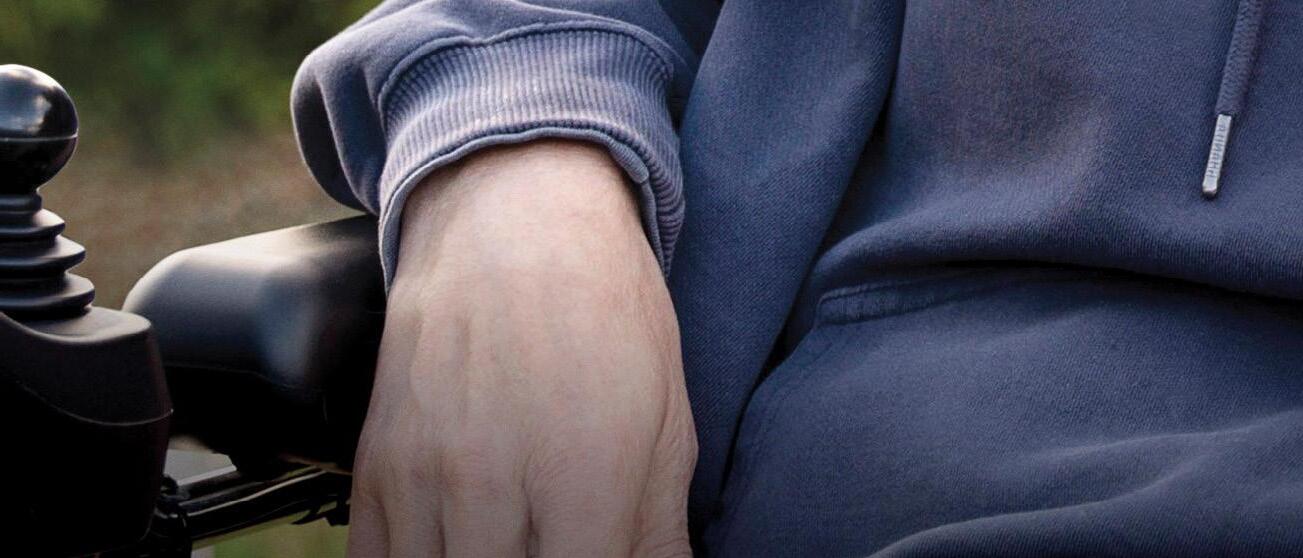
Victorian Disability Worker Commission: making a difference for people with disability
worker in Victoria, including continual professional development in their field.
The Commission maintains a public list of registered workers giving people with disability, their families and carers confidence, choice and control in ensuring their workers are registered and meet the scheme’s standards and values.
Victorian Disability Worker Commissioner, Dan Stubbs said Victoria’s Disability Worker Registration is a partner for disability workers who are proud to be professionals in their sector.

The Victorian Disability Worker Commission is building a stronger, higher quality and safer disability workforce for people with disability in Victoria.
Headed by Commissioner Dan Stubbs, a person with disability, who understands what it is like to rely on support workers, the Commission is independent, with its interest in ensuring a quality and safe disability workforce where abuse and neglect of people with disability has no place.
Formed in 2020, the Commission is improving the quality and standards of the disability workforce in Victoria, increasing safety and helping to ensure workers are qualified and up-to-date with best practice and standards.
While the NDIS Quality and Safeguards Commission regulates services funded by the National Disability Insurance Scheme these services are only a fraction of the disability services used by Australians each year.
The Victorian Disability Worker
Commission is the safety net for those services, filling the gaps in regulation to ensure that everyone receiving disability services in Victoria has access to the same safeguards, overseen by those who understand disability.
One way the Commission ensures the best quality services are being delivered is by providing a confidential and free complaints service for anyone who has a concern about a disability worker in Victoria.
The Commission also offers free, voluntary registration administered by the Disability Registration Board of Victoria,
Registration ensures disability workers who are qualified, suitable and can demonstrate they:
• Hold a relevant qualification, or relevant disability experience
• Are competent in English
• Satisfy the criminal history standard.
Registration is for 12 months and sets out agreed standards for a
“When someone working in the disability sector here in Victoria puts their hand up and says I’m registering with the Disability Worker Commission - they are saying I stand for quality and for improving services. They want a professional, safe disability sector and are committed to their work – always looking to improve their professional skills and quality,” he said.
“People with disability haven’t always been put first in how services have been delivered. Each worker who registers is saying I’m making the difference and I am proud to deliver the safest, best services for the people I support, ensuring their needs are met.”
The Victorian Disability Worker Commission is a young organisation dedicated to the mission of protecting the most vulnerable in Victoria through better safeguards for people who use disability services, and by promoting a high-quality workforce through free, voluntary registration.
More information about the Victorian Disability Worker Commission, and its Disability Worker Registration can be found at: www.vdwc.vic.gov.au
August/September 2023 28
Link to... News
Dan Stubbs
Registered Victorian disability workers stand for a stronger, safer disability workforce.
In Victoria, registered support workers and practitioners are independently assessed as safe, skilled and professional.
Registration shows potential employers that you are ready to work, and do it well.
Registration is recognition for your experience and professional track record.

To find out more about the Victorian Disability Worker Commission and registration visit vdwc.vic.gov.au.registration or call 1800 497 132

Because I can make a confident choice.
Because I can show I am a safer choice.
Live an active life with WHILL power chairs
Simple to operate and can make tight turns with a 45 per cent tighter turning radius than tiller-operated mobility devices to get you wherever you need to go. Whether you’re driving around town or manoeuvring indoors. It effortlessly climbs over obstacles up to 5cm in height with two powerful motors, and large front patented Omni wheels. The rear wheel suspension absorbs the impact when driving over bumpy roads or obstacles, and an antisway system keeps you driving straight on side slopes. The electromagnetic brakes provide safe stopping, even on inclines.
T he Model C2 can be disassembled for easy transportation in the boot of any car. Whether shopping on the weekend or travelling with your family, the Model C2 allows you to live life to the fullest. View configuration video: https://youtu.be/-6IxGqvlqI8.
WHILL Model F
Aidacare are the exclusive distributors of WHILL, which focuses on innovative design and s tate-of-the-art technology, allowing you to express your confidence, style, and independence, empowering you to be you. With WHILL live a life without boundaries, these products are built to c hallenge the perception of what mobility devices can be.
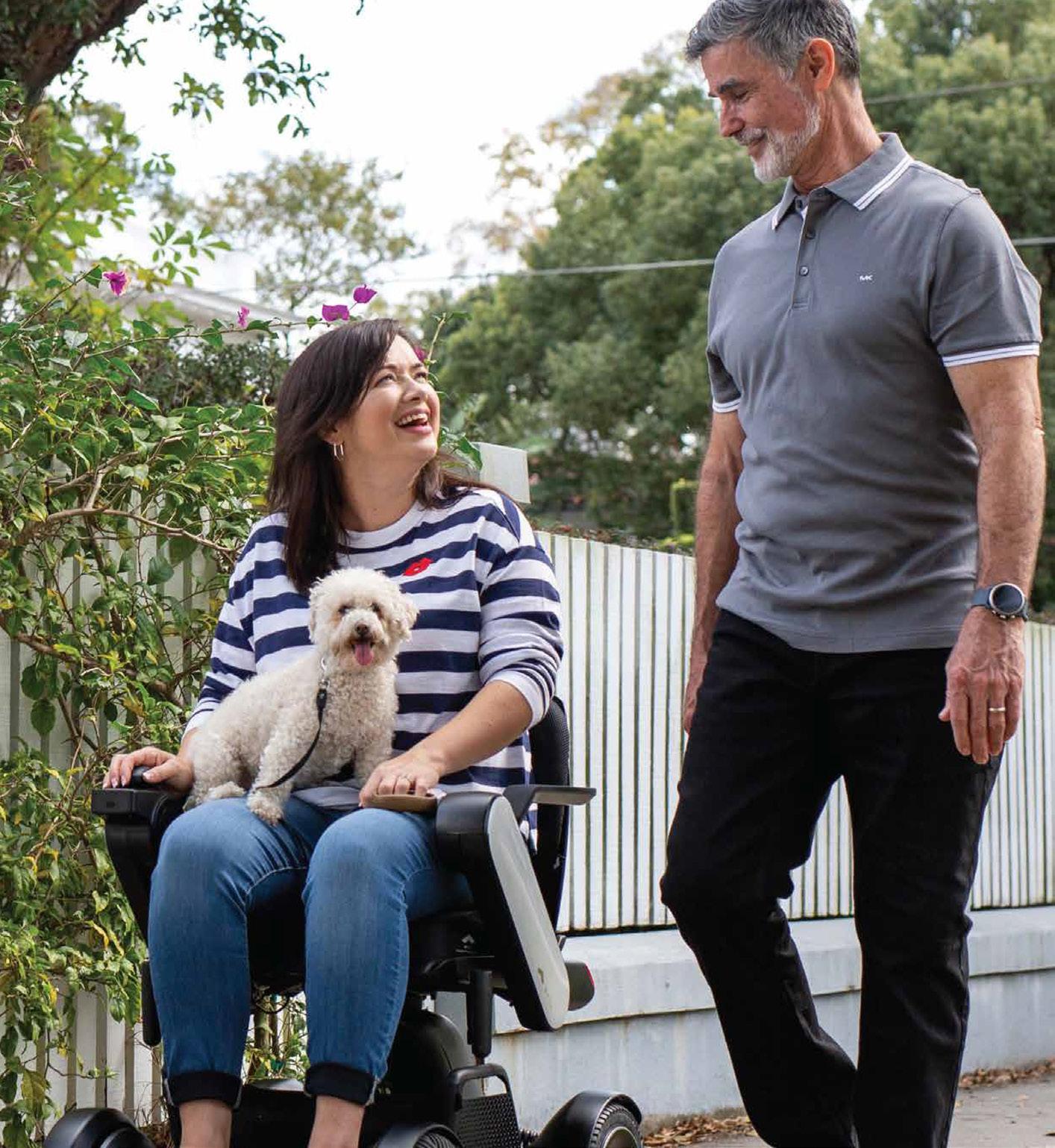
Connect your smartphone and use the WHILL app to check essential device information, check s ettings or remotely operate the chair's movements. Stay engaged in activities and embrace
your s urroundings, knowing the WHILL will keep you safe whilst you ride with peace of mind. Drive in style, choose from eight different arm colour options for Model C2 and five different arm colour options for Model F to match your style. You can purchase a smart key, cane holder or lap belt for more convenience and personalisation.
WHILL Model C2
T he WHILL Model C2 is a revolutionary approach to power mobility, evoking an active, can-do lifestyle. Its premium performance and superior engineering provide versatility and reliability to experience all-day adventures.
Lightweight, foldable, and manoeuvrable the WHILL Model F allows you to explore your world with greater mobility and independence. A compact solution weighing only 24kg (without battery) it can be easily transported on buses, trains and in car boots. When not in use, the Model F can be conveniently stored in a closet or out-of-the-way in the corner of the room. Seating width can also be increased by 50mm, simply by swapping controls from one side to the other.
W hat are the differences between the Model C2 and Model F?
T he C2 is a pull-apart power chair, whilst the F is a folding chair. The Model F retains a lot of the same styling and technology as the C2 with the exception of the patented front Omni wheels, which are only available on the C2.
To know more about the WHILL, visit: ww w.aidacare.com.au
Link to... Daily Living Products
August/September 2023 30
WHILL allows you to live the life you aspire to with its impressive power, smart technology, and superior handling.



To view our Link EXCLUSIVE offer scan the QR code and SAVE UP TO $300

WHILL F
WHILL C2
Empowering People Living with Disabilities with Monitored Personal Alarms
Securing NDIS funding for a Monitored Personal Alarm
The NDIS empowers people living with disability to access the necessary supports and services to lead fulfilling lives. If you would like a monitored personal alarm to enhance your safety and independence, the NDIS can provide the funding to make it possible.
When seeking NDIS funding for a monitored personal alarm, you will need to demonstrate how this assistive device will help address your specific needs and goals.
Start by consulting with your healthcare professionals or support workers, who can provide documentation to show how a monitored personal alarm will enhance your safety, independence and confidence, as well as the positive impact it can have on your daily life and overall wellbeing.
The National Disability Insurance Scheme (NDIS), provides people living with disability access to various supports and services that can enhance their independence and quality of life. One essential assistive technology aid that can benefit people living with disability is a monitored personal alarm.

A monitored personal alarm is a small wearable device that is connected to a 24/7 emergency response service, with trained operators ready to help day and night. In the case of a fall or other medical emergency, just press the button on the device to call for help, and an operator will promptly respond and get the appropriate help.
A monitored personal alarm can provide a greater sense of independence and freedom, because
it reduces the need to rely on family, friends and carers for assistance in case of an emergency. You can enjoy peace of mind, knowing that help is always available when it is needed most.
Think of a monitored personal alarm as a safety net that minimises the risk of delays in receiving assistance during emergencies, enabling prompt response and intervention, and ultimately helping to safeguard your health and overall wellbeing.
A monitored alarm also means you don’t ever have to worry about accidental button presses (it happens!) and alerting your contacts unnecessarily. A 24/7 monitoring service is always happy to respond no matter what time or if it’s an accidental press as we are happy to hear that you are okay.
Once you have identified your goals as part of your NDIS plan, the next step is to find the right organisation to provide the appropriate services and products to support these goals.
A monitored alarm is included in the basic or standard levels of funding. This is because the alarms are safe, very easy to use and are relatively low-cost compared to other assistive technologies. This makes applying for a personal alarm quite a quick process.
To include a MePACS monitored alarm in your NDIS plan, you will need to have available funds in the Core Support and Assistive Technology Categories.
For more advice or support, please contact Jaide, MePACS NDIS Specialist on: 0481 456 236
August/September 2023 32
Link to... Daily Living Products

Quickie Q50 Carbon Folding Power Wheelchair

A wheelchair that is light on weight and heavy on reliability.
Charging is easy – either through the charging port on the joystick or you can bring the battery with you to remotely charge if you need to leave the wheelchair outside.
The batteries are housed directly under the seat so are easy to charge and it is available with an optional additional battery, offering up to 24km distance.
Whether you are traveling on long-haul getaways, a simple family break or a daily commute, the Q50R Carbon is your perfect travelling partner.
Weighing just 14.5 kg, its fabricated from premium carbon fibre, so it’s never a worry to load. Take a load off your mind (and your arms) knowing that this is an effortless powerchair to lift.
If airline travel is your thing, the Q50 Carbon’s lithium-ion battery is also IATA approved for transportation via aircraft but remember to check with your airline before flying.
Foldable in seconds, it stores snugly away in the tightest of places, all without removing the battery.
Simply release the clip and the back will fold down. Just 570 mm wide, 370mm long and 767mm tall when folded, it’s so compact it will fit into smallest of car boots, closets, or entryways.
FFor over 40 years, Sunrise has been working alongside world class manufacturers to deliver solidly built powerchairs that have the very-best driving performance, motors, range, and reliability.
Now we have taken that technology one step further by developing a super lightweight folding power wheelchair
that will take you to all the destinations you want to go.
The Q50R Carbon’s 250W high efficiency brushless motors provide the power and reliability you need from your powerchair while the electronics and joystick package provide the programming to make it very easy and intuitive to drive.
An ergonomic shaped backrest with vented fabric will keep you comfortable and well supported comes standard with a foam cushion. Flip back armrests and footrest make getting in and out easy.
Get adventurous! Where will the Q50 Carbon Folding Power wheelchair take you today?
Link to... Daily Living Products August/September 2023 34


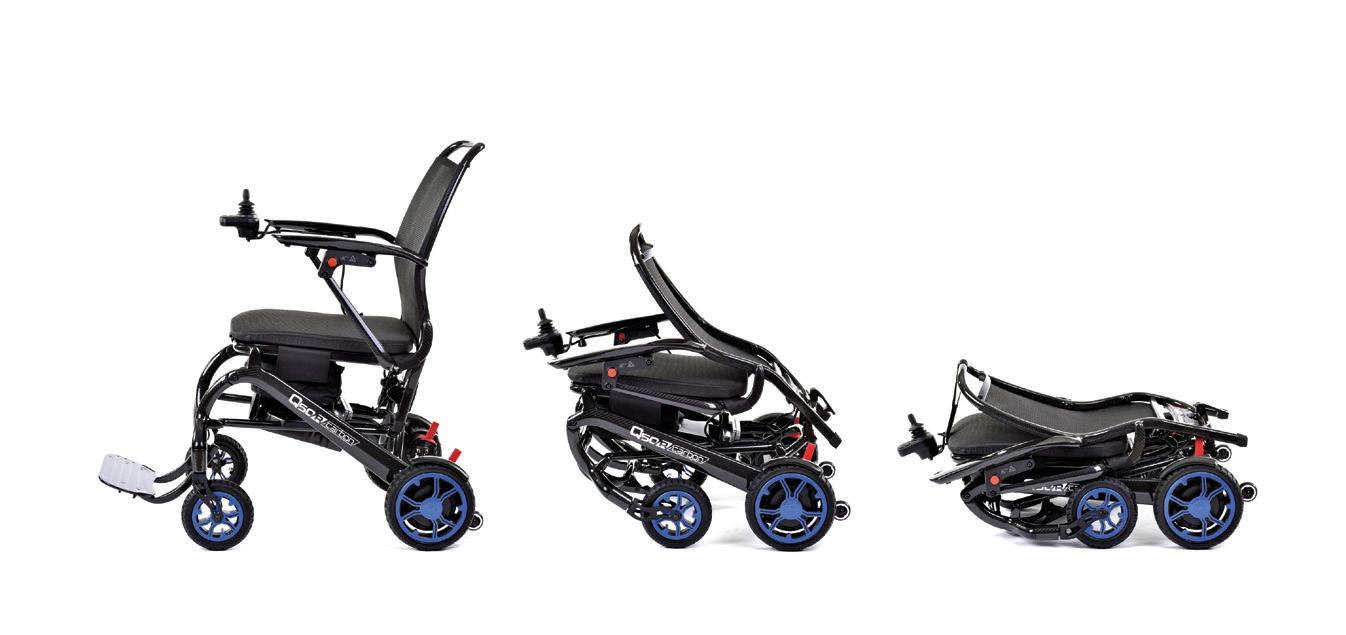


Travel lighter with the 14.5 kg carbon folding powerchair. Sunrise Medical Australia Pty Ltd 11 Daniel Street, Wetherill Park, NSW 2164 Phone: (02) 9678 6600 Email: enquiries@sunrisemedical.com.au www.sunrisemedical.com.au Sunrise Medical Australia Pty Ltd 11 Daniel Street, Wetherill Park, NSW 2164 Phone: (02) 9678 6600 Email: enquiries@sunrisemedical.com.au Website: www.sunrisemedical.com.au 3 2 3 1
Plant-rich, wholefoods cookbook – for adults with swallowing difficulties



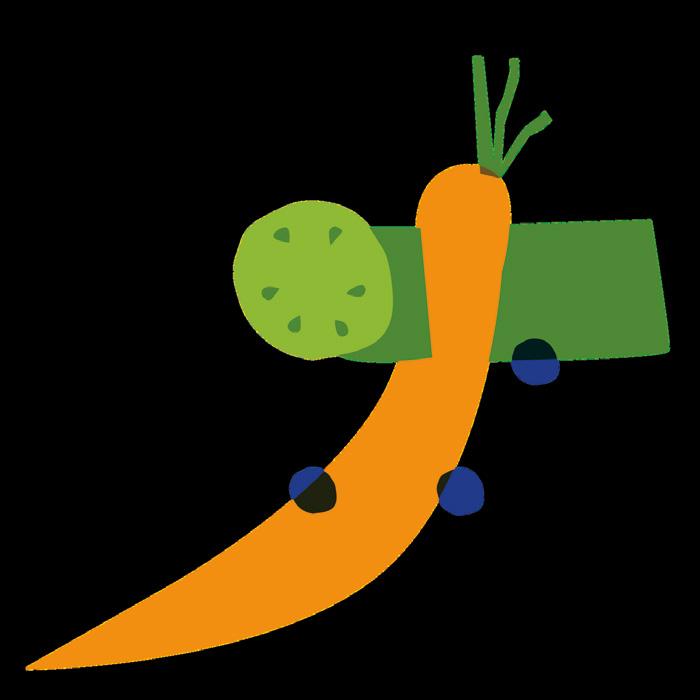
for cooking. The perfect companion on one’s dysphagia journey.
For many living with dysphagia, the International Dysphagia Diet Standardisation Initiative (IDDSI) provides examples of food consistencies that support their safety and ease of swallow. Simply Modified is thoughtfully created for use with the IDDSI testing protocols.

dysphagia presents. It’s a comprehensive guide with flexible instructions to modify each meal to suit various needs.
Within Australia, more than one million people have trouble swallowing, a condition known as ‘dysphagia’. Despite its prevalence, minimal resources available made this condition extremely difficult to navigate.

Speech pathologist, Brie Simons works with adults living with dysphagia in the context of Parkinson’s disease, Motor neuron disease, stroke, multiple sclerosis and other lifelong disabilities. Instead of remaining frustrated by the limited dysphagia resources, Brie decided to create her own dysphagia cookbook. Simply Modified is an ode to her clients, increasing awareness of dysphagia while providing inspiration
Each recipe has the option to modify food items for ‘easy-to-chew’, ‘soft and bite-sized’, ‘minced & moist’ and ‘pureed’ consistencies, making it the world’s first dysphagia wholefoods cookbook to feature the international standardisation of diet levels.

Along with your consulting speech pathologist, this cookbook will stay with you as a guide to the preparation of foods across various dysphagia levels. Brie’s methods highlight endless opportunities to create a positive change. Simply Modified is a wealth of information and resources which provides a new sense of control in dealing with the everyday challenges that
Food is fundamental in how we engage with our loved ones, how we fuel our lives, express our personalities and our religious beliefs. Delicious food can spark moments of joy, even in the face of sometimes adverse conditions. For too long have dysphagia cookbooks prioritised stodgy, old-style cooking, and a heavy dose of cream, meat and eggs. Simply Modified takes you on a journey of dysphagia with plant-rich, wholefoods that will surely nourish.
Receiving a diagnosis of dysphagia can feel like an extremely isolating condition. Brie’s expertise in modifying wholefoods provides increased choices during mealtimes. Let Simply Modified guide you back to heartwarming and delicious food, bringing people together with the love of simply (modified) wholesome cooking.
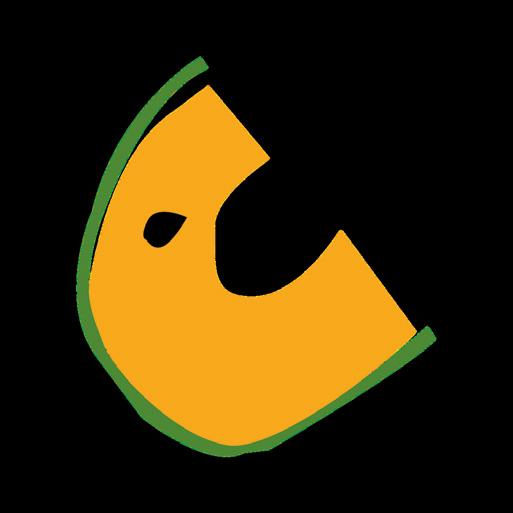
Available via www.simplymodifiedcooking.com $90.00 + shipping.
Written by Speech Pathologist Brie Simons
Wholefoods cookbook for adults living with dy www.simplym AVAILABLE NOW Thoughtfully created for use with the IDDSI framework Easy-to-Chew Soft&Bite-Sized Minced&Moist Pureed Scan here to secure a copy
Link to... Daily Living Products August/September 2023 36
Essential technology to improve patient outcomes
Electronic Medication Management systems (EMM) are a valuable tool in improving timeliness of care, streamlining medication management, enhancing communication, and reducing administrative burden.
Real-time access to medication information
Medi-Map provides healthcare professionals with immediate access to up-to-date medication information. Eliminating the need for paper-based charts or time-consuming communication methods, clinicians can quickly retrieve details about a patient's medication history, dosage, and administration. This instant access to information ensures that healthcare professionals can make timely decisions and interventions, reducing delays in patient care.
Automated reminders and alerts
Medi-Map can generate automated reminders and alerts for healthcare providers. Enabling clinicians to stay on top of medication administration
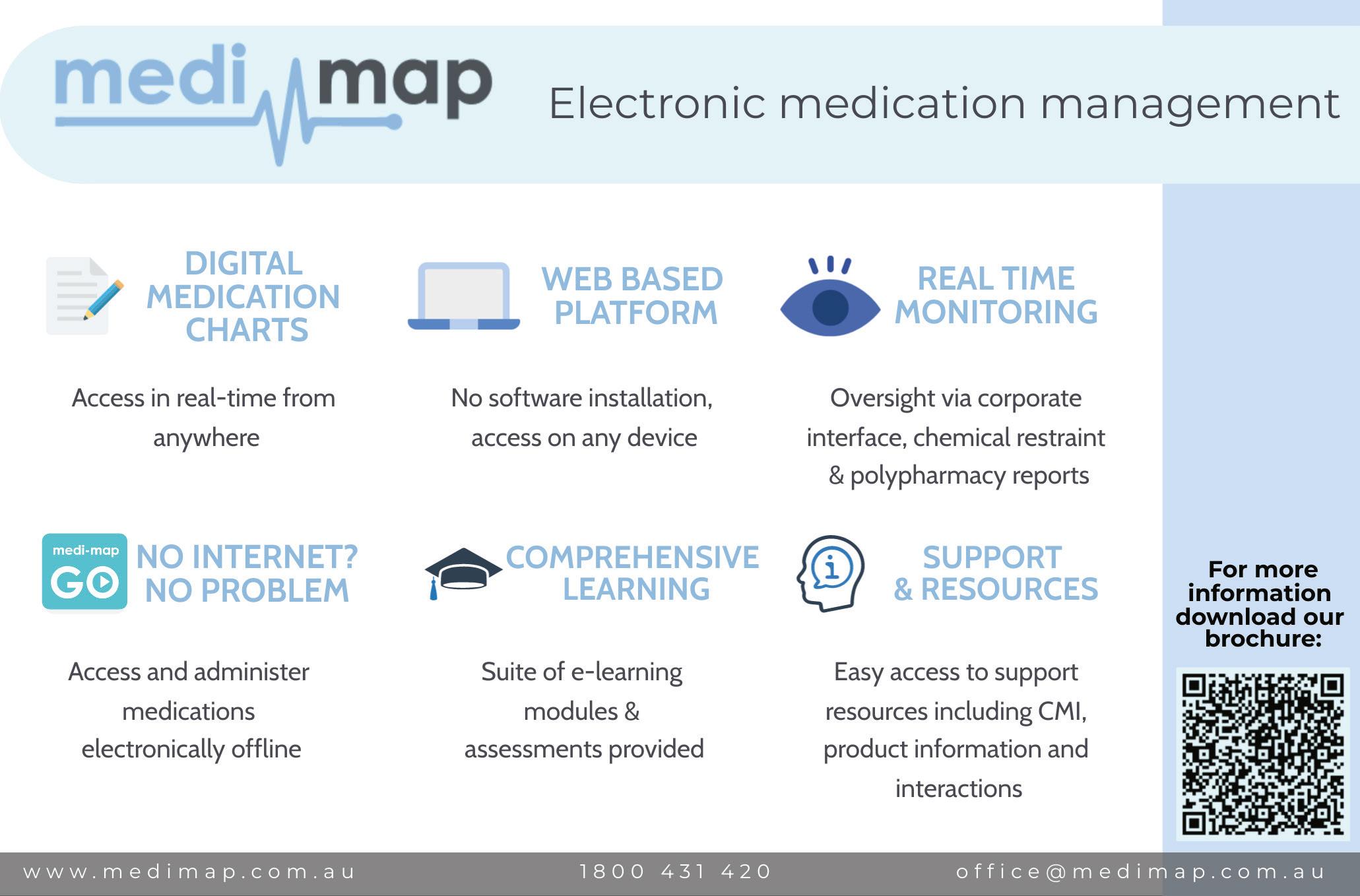
requirements, ensuring timely delivery of medications to patients. Additionally, alerts can be triggered for important events.
Improved interdisciplinary communication
Effective communication between healthcare providers is crucial for timely and coordinated care. MediMap enables seamless real-time communication between prescribers, pharmacists, and the support team. This facilitates efficient collaboration, allowing for prompt clarification of medication orders, seamless medication reconciliation and quick resolution of potential issues that may arise during transitions of care, leading to more efficient medication
management processes, ultimately reducing overall treatment delays.
Data-driven workflow optimisation
EMM charts provide valuable data that can be analysed to streamline processes and optimise workflows. By analysing medication administration times, related delays, and performance metrics, healthcare organisations can implement evidence-based interventions to improve the timeliness of care delivery.
Conclusion
The role of EMM systems in enhancing the timeliness of care cannot be overstated, through real-time access to medication information, streamlining prescription and dispensing. EMM play a vital role in medication management.
Link to... Daily Living Products
linkonline.com.au 37
ATSA appoints new CEO
volunteered as a pacer for paralympic track athletes. That connection to paralympic sport led Wheelchair Sports NSW to approach her to manage their international wheelchair track and road racing event. “I thought I'd give it a go and 10 years later, I was still event managing that 10-day program.”
Those event management skills are something she plans to use at ATSA, hinting at expansion plans, “We’ll look into whether we can expand ATSA’s expos into some of the big regional areas so people in the country don’t miss out.”
to make hard decisions. My style is to learn with others and use the strength and skills of others in the room.”
Charting the course for ATSA
As ATSA CEO, Ovens will foster strong relationships with the NDIS and the Department of Aged Care.
New CEO of ATSA, Serena Ovens, brings a rich tapestry of experiences to the association. She's been a teacher, an education manager, a disability sports photographer, an event manager and most recently, CEO of the Physical Disability Council of NSW.

Link spoke to Ovens about how she will apply her range of skills to the growth of ATSA.
Ovens trained as a schoolteacher, but being with a naval officer meant she could only take relief roles as they moved around. “Being called to a different school nearly every single day was tough work,“ she said. And that led her to put her efforts into her other interest, photography.
In the evenings, she would photograph people at events and sell the photos, that led to her leaving teaching to build her own photography business.
A chance project designing a calendar of photos for the Australian Sports Council for the Disabled turned into 20 years as a disability sports photographer. The highlight was being chosen by the International Paralympic Committee to cover the 2000 Paralympic Games. Since then, she has photographed nearly every Paralympic Games.
Serena was drawn to do more than capture events from the sidelines. She
Harnessing a wealth of experience
Ovens has a proven track record of impactful leadership roles. As the state education manager for 10 years at the Asthma Foundation and ran their registered training organisation. She also developed asthma training programs, delivered to thousands of schools by 200 trainers.
Her experience delivering largescale training programs will bring a new perspective to ATSA's offering. “ATSA has the ability to supplement the training of professionals like occupational therapists, giving them additional skills in a specialised area of the industry. Ultimately, all everyone wants is for users to have the best assistive technology for them so they have the most independence.”
In her most recent role before taking over at ATSA, Ovens was CEO of the Physical Disability Council of NSW, where she significantly expanded the organisation’s reach and reputation. “We’ve grown, we’ve got ourselves a really good reputation and more staff on the ground.”
She describes her leadership style as collaborative, believing in using collective strengths and not shying away from tough decisions. “I like to work with others and bring everybody to the table to get the result we need. I'm pretty strong too, and not scared
“ATSA has an important role in working with government and the community to be sure that people with disabilities don't get caught in the middle of the significant changes that are coming up to the NDIS and aged care. Thankfully, ATSA has built the kind of relationships that mean our members are heard because their expertise is recognised.”
Spending time with and supporting ATSA members is also a priority. “To really get to know the industry, I need to understand the things members are seeing. It's ATSA's job to have our members' backs because what they do is so important to Australians with a disability. Because of them, AT users can have the right products for their needs. We never want to see those choices reduced to a cookiecutter approach that leaves people making do. ATSA has been effective at working with all the different groups in the industry to ensure we sing from the same song sheet to work in the very best interests of people who need that equipment,” she said. “I want to make sure that continues.”
Her vision is to build on the robust foundation laid by David Sinclair and Chris Sparks, taking the organisation to new heights while maintaining its core values. “It’s about taking what ATSA has done already and continuing to build on that. I’m not there to change the world. I want to continue to grow and develop ATSA on behalf of our members and in the best interest of those we serve.”
Is it time to learn more about ATSA and what membership offers?
Visit www.atsa.org.au, email info@atsa.org.au or call (02) 8006 7357
August/September 2023 38
Link to... Daily Living Products
Serena Ovens
Website is you r answer to communication solutions
Accessible Telecoms is an initiative of the Australian Communications Consumer Action Network (ACCAN) to address the lack of consolidated, independent, and up-to-date information about accessibility features of telecommunications equipment available in Australia.
This is a free service currently funded by a grant from the Commonwealth of Australia and is specifically geared towards people with disabilities, seniors, their families and carers, service providers and advocates, however anyone is welcome to get in touch.
The website has useful resources about the accessibility features of phones, tablets, accessories, and apps that may assist with communication.

The Accessible Telecoms team can provide personalised advice on how to get the most out of your current mobile, home phone or tablet, or help you find new devices, accessories and apps that may be suitable.
We can also recommend local or virtual training organisations who can help you learn more about your devices, the internet and many other aspects of digital life.
Some examples of what you can find at Accessible Telecoms include:
• Home phones with loud ringers, volume control or big buttons
• Hearing aid compatible mobile phones
• Emergency pendants
• Wheelchair mounts for mobile phones and tablets
• Eye gaze accessories, switch
buttons, prosthetic equipment, and other alternative controls for phones and tablets
• Apps to caption media, transfer voice-to-text, zoom or enhance screens
• Search your area for local or online training options for your new device.
We welcome you to contact Accessible Telecoms to chat about your needs, our staff are here to answer your queries and help you find the best options.
Why not get in touch today?
Contact Accessible Telecoms: Helpline: 1800 442 300
Text: 0438 454 413 Email: accessibletelecoms@accan.org.au
Visit:www.accessibletelecoms.org.au to search for information or open a chat query.
Phone: 1800 442 300 SMS: 0438 454 413 accessible.telecoms@accan.org.au accessibletelecoms.org.au
People with Disabilities & Seniors find Phones Tablets Accessories Apps that match your needs ACCESSIBLE TELECOMS
Link to... Daily Living Products linkonline.com.au 39
A fresh face for an established charity
organisations such as ours serve our communities and we are changing as a result. One thing that will never change is the power of clever ideas to change the lives of people living with disabilities. We’re confident that our fresh look will support us supporting people living with disabilities,” he said.
Freedom Solutions Australia’s lifechanging equipment includes custom bicycles, musical tables, beds, camper stairs and ladders that empower people with disabilities to do their daily tasks independently. Freedom Solutions Australia is grateful for its community partners and donors who support their work in the community, helping them create a better future for people with disabilities.
After 48 years of dedicated service, Solve-TAD, a charity organisation that creates innovative and custom assistive technology solutions for people living with disabilities, has rebranded as Freedom Solutions Australia. The new name, logo, and brand identity reflect the organisation's values, mission, and commitment to providing personalised, modern, and effective AT solutions to its clients.
Freedom Solutions Australia, with its 25 staff and 250-strong team of volunteers primarily comprised of retired engineers and tradies, has been creating and modifying equipment for people living with disabilities to help them achieve their functional goals and live independently since
founded by George Winston in 1975. Using modern technologies such as 3D printing, laser cutting, circuit board printing, carpentry, and welding, the organisation collaborates with occupational therapists, volunteers and clients to create unique and custom solutions that are usually not available in the market.
"We are excited about the fresh look of our organisation and the opportunities it presents,“ Freedom Solutions Australia chairman, Andrew Every said. "As we continue to embrace generational volunteering and the importance of community service, we are confident that our new brand identity will help us bring our organisation into the future. The NDIS has forever changed the way
"Our rebranding journey was a long but rewarding process, involving consultations with our stakeholders and volunteers who have dedicated their time and expertise to our cause,“ Freedom Solutions Australia CEO, Scott Miller said. "As we continue to support people living with disabilities in our community, we believe that the new brand identity will help us better communicate our mission, vision, and goals.“
Freedom Solutions Australia invites everyone to visit their new website at: www.freedomsolutions.org.au or PH: 1300 663 243 to learn more about their organisation and the services they offer.
About Freedom Solutions Australia

Freedom Solutions Australia has volunteers across NSW and Victoria. It uses clever ideas and modern technologies to change lives, with personalised solutions to help people with disabilities achieve their functional goals and live independently.

August/September 2023 40
Link to... News
Solve-TAD transforms into Freedom Solutions Australia
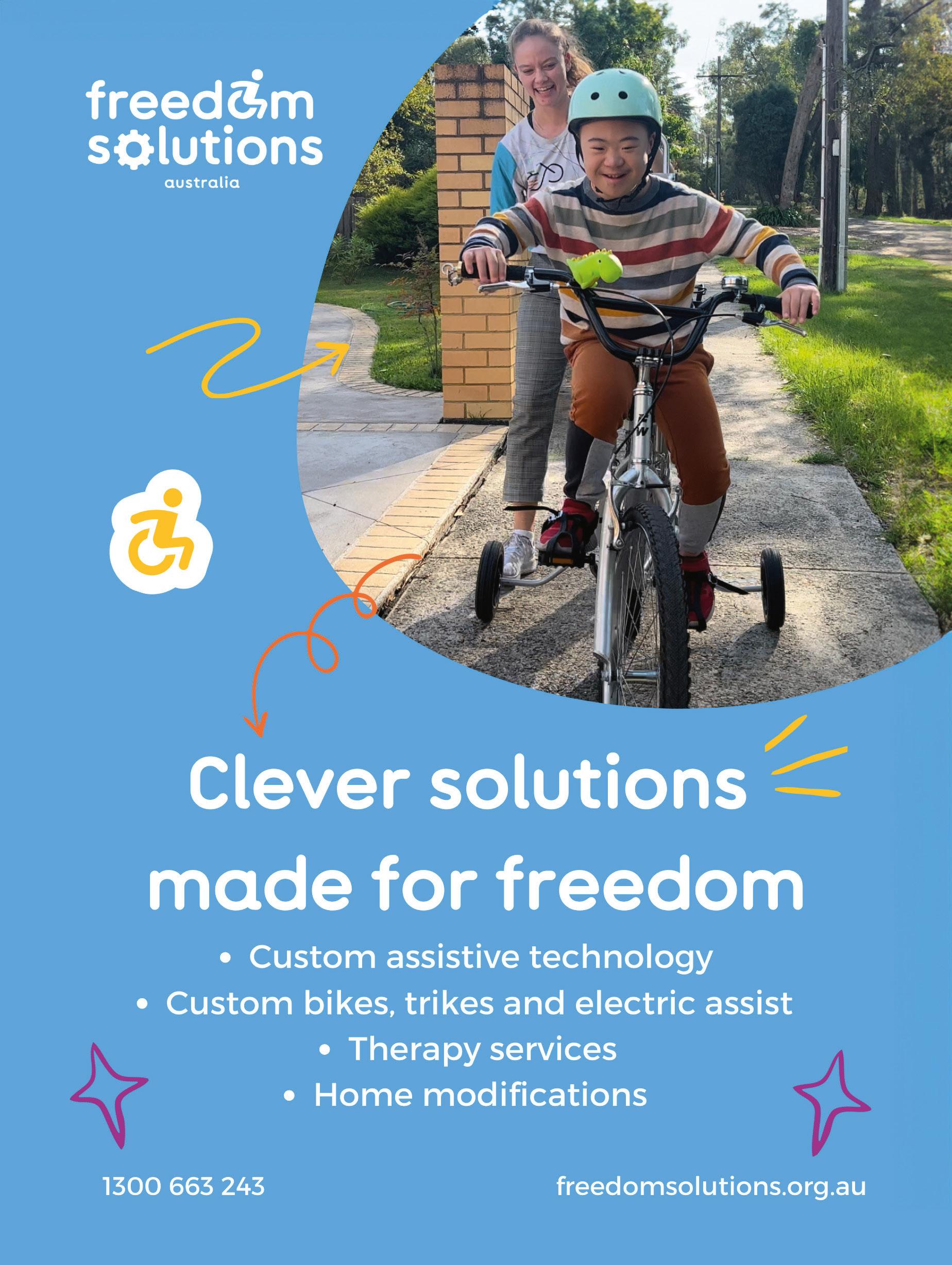
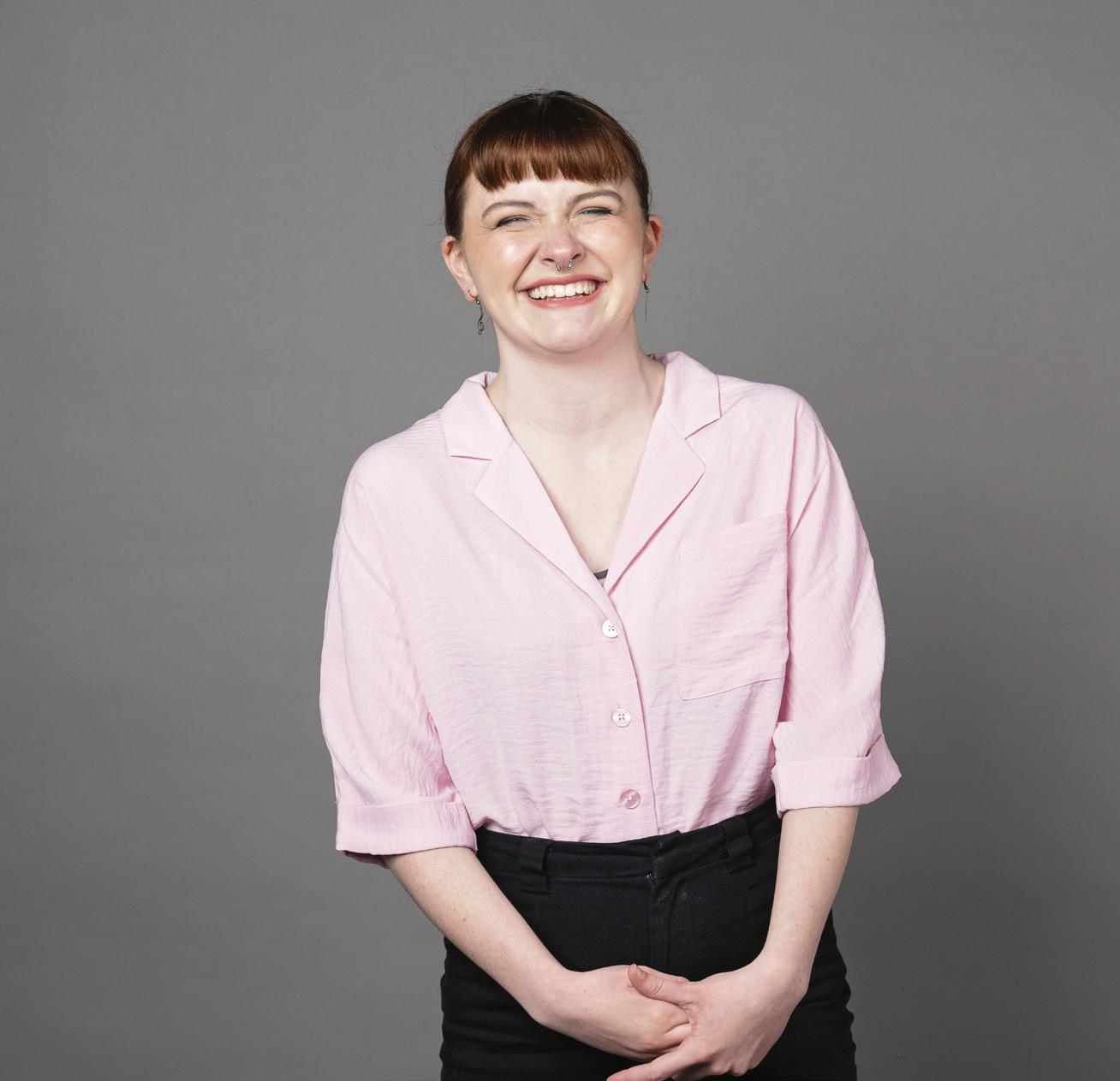

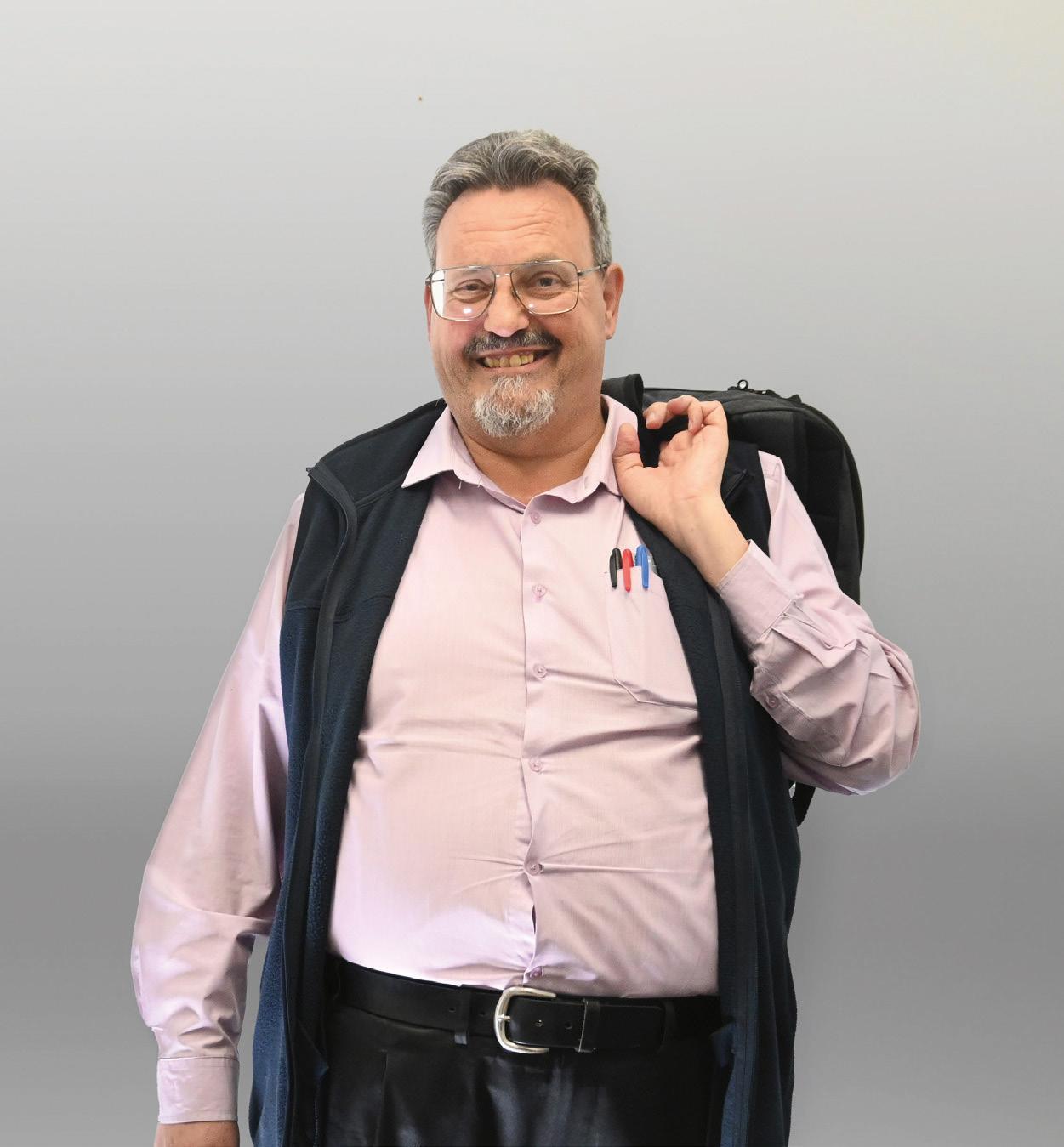


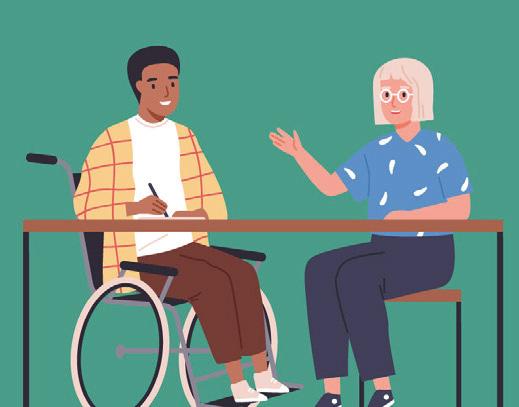
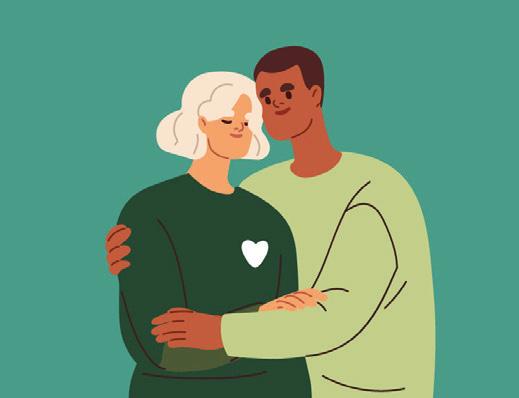
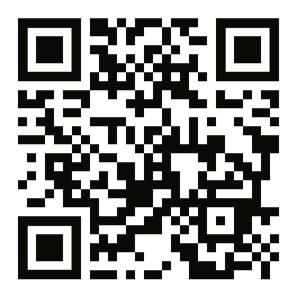
Supporting you to live independently…
He’s also been using public transport, as well as going to the laundromat to do his own washing.
He enjoys daily walks with his support workers and watching the Geelong Cats playing footy on TV. On Thursday nights you will find him at the Spud Shop with his support workers.
T he Baptiste Care team assist with transportation, shopping, participation in recreational activities, as well as budgeting and managing money.
“Oh, go for it!” Tristan said, in response to being asked if other people with disability should consider moving into independent living.
Tristan is one of Baptist Care SA’s participants proudly living in a Supported Independent Living (SIL) arrangement. Funded by the NDIS, eligible participants can determine the support they need with their provider before embarking on their journey to independence.

Tristan collaborated with his family and Baptist Care SA to ensure his smooth transition into a more independent lifestyle and is feeling happy after moving.
In his new home, with support from his support workers, Tristan has been learning to cook, something he’s embraced. From roasts to tuna mornay, he enjoys sitting down to his homecooked meals but admits he doesn’t enjoy washing dishes.
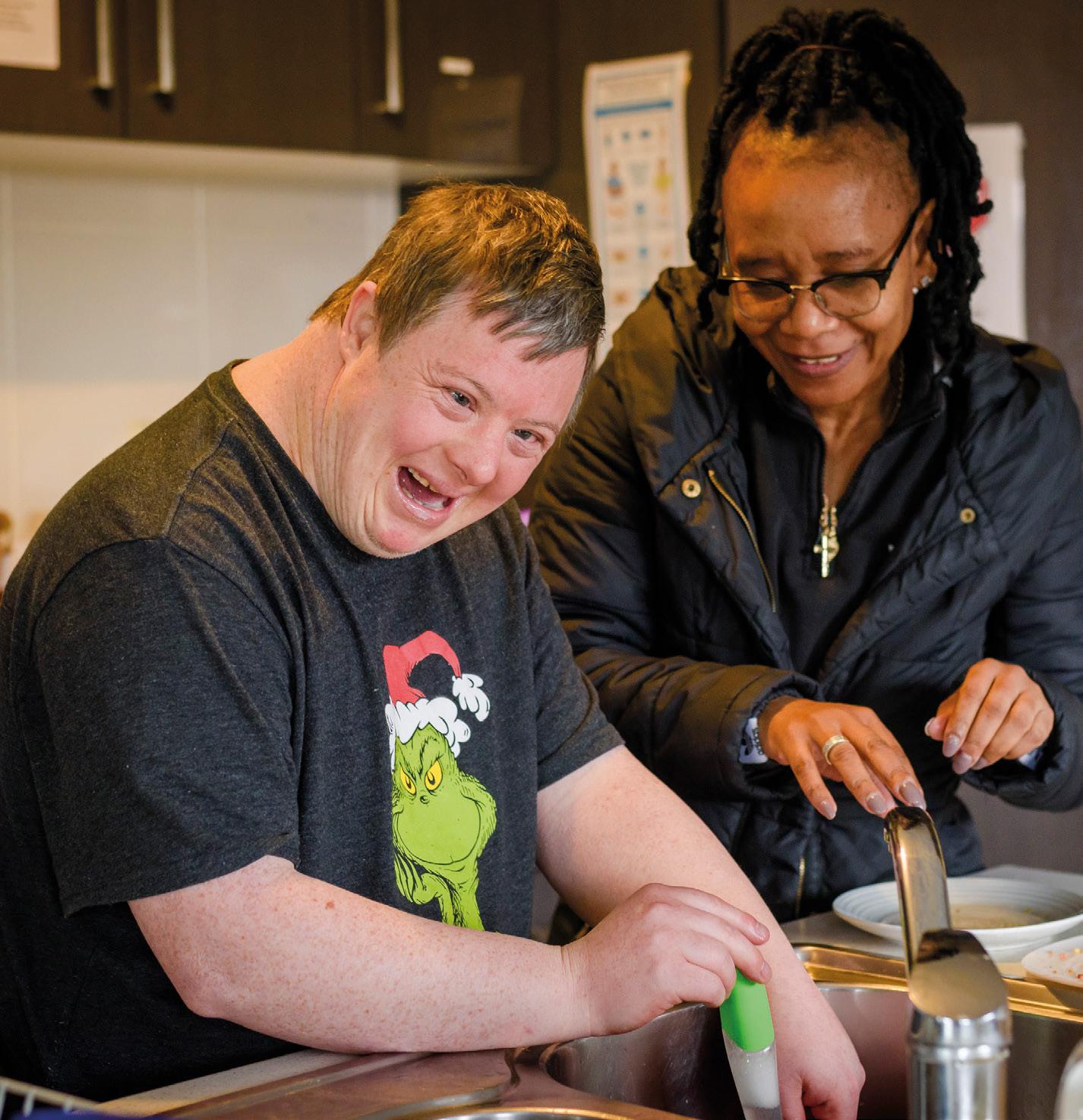
Baptist Care SA is a NDIS registered provider, that offers great opportunities at its shared SIL homes in sought-after suburbs. It can also provide 1:1 support to participants in their own homes.
L ive life the way you want with some help along the way.
Contact us to learn more about Supported Independent Living today.
Supporting you to live independently Live life the way YOU want, with some help along the way BCSA0035_Disability Advert - Link Magazine_v6.indd 1 30/6/2023 2:00 pm
August/September 2023 44 Link to... DAL Expo
Disability, Ageing and Lifestyle Expo

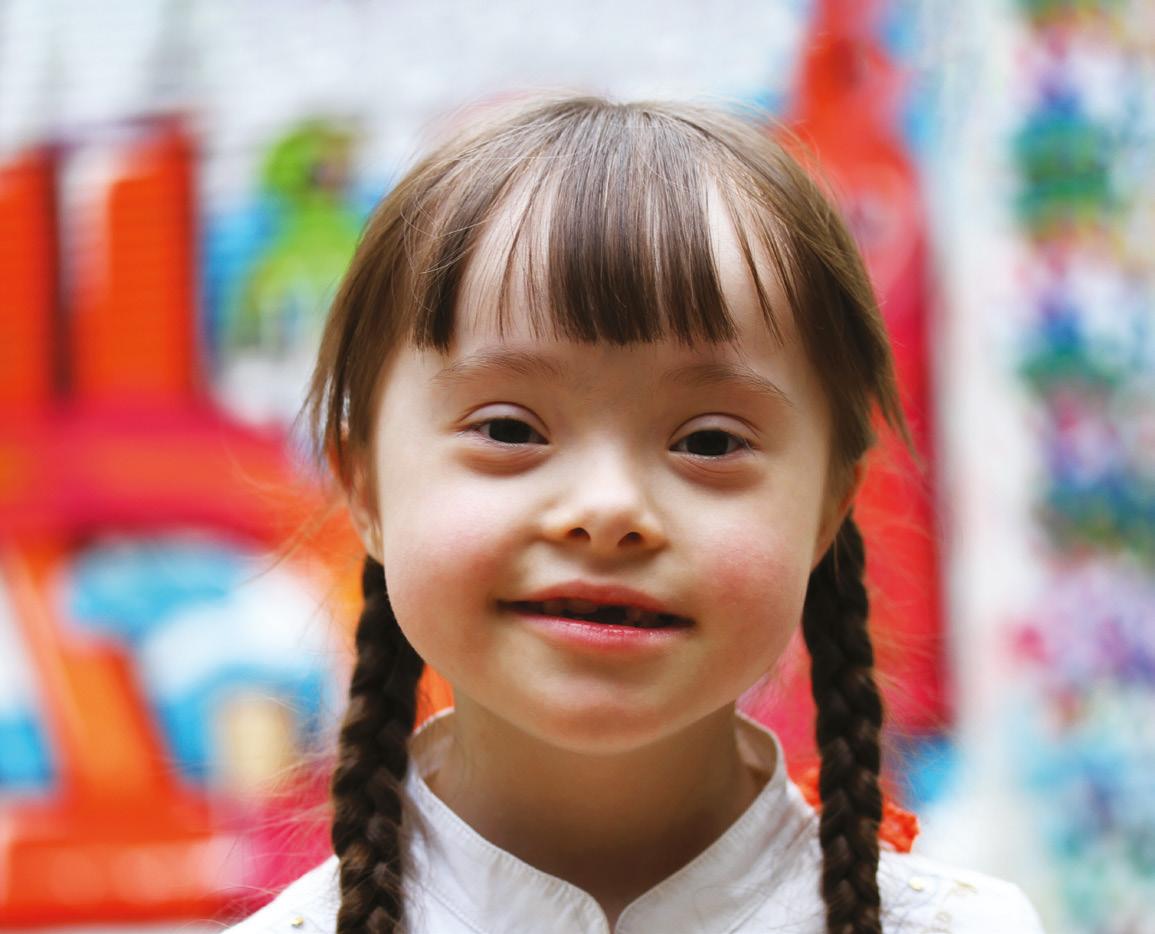
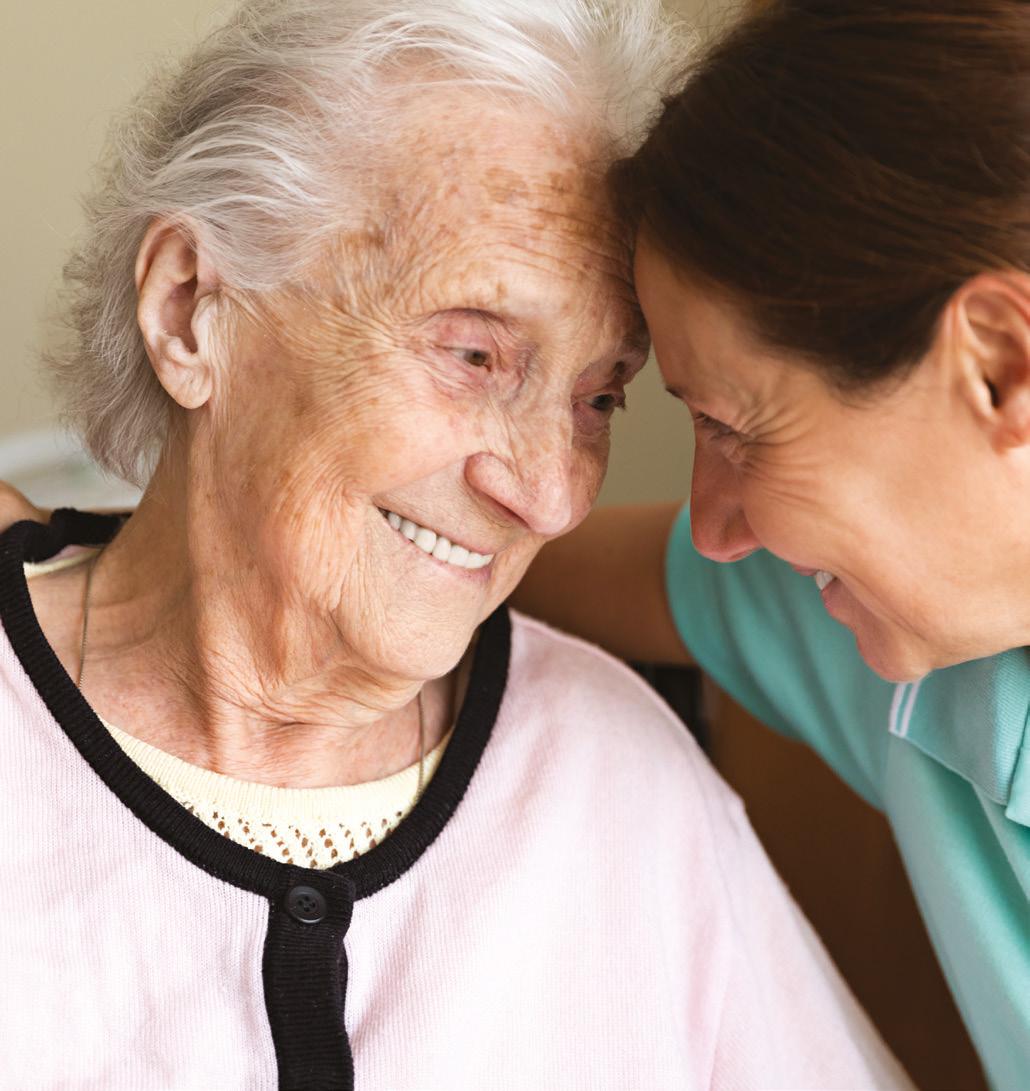
FRI & SAT 13 & 14 OCT 2023
South Australia’s #MyLifeChoices Disability, Ageing & Lifestyle Expo (DAL Expo) is the largest and most established event in the state dedicated to supporting the ageing and disabled community. Hosted by the Catalyst Foundation, a leading provider of community information in South Australia, the DAL Expo offers a convenient and accessible venue for South Australians to connect with service and information providers to source lifestyle solutions.
Now a 2-day event held on Friday 13th October and Saturday 14th October, at the Jubilee Pavilion in Wayville Showgrounds.
The DAL Expo has the support of proud event sponsor, Danny Met Sally, a premium national disability service provider. Visit their friendly team on Booth #1 at the Entrance and learn more about the unique services they offer.
Whether attendees are seeking lifestyle solutions for themselves, their family members, friends or if they are workers in the disability and ageing sector, the DAL Expo caters to all their needs. With over 200 exhibitors and an expected crowd of 4000+ visitors, the expo is a one-stop-shop for new products,
technologies, government services, and allied health providers.
This is going to be a fun, action packed event with entertainment, including daily guest appearances on the “DanceAbility” stage by Rachael Leahcar, the event Ambassador. Take your shoes with you to the 8 metre Rock Wall and have a go at assisted climbingits free to try and speak to the Xlent Disability Services team to find out about their exciting adventure packages. Explore some of the latest assistive technology equipment at the impressive NovitaTech exhibition space. The Adaptive Sports Zone provides an opportunity to try new sports, with One Culture Support Services encouraging participation from all abilities and the Stories in Art gallery presents a captivating display of expressive paintings by talented artists.
Best of all, admission to the expo is FREE, and the first 100 visitors each day will receive a free coffee voucher.
Take a look at who will be exhibiting by viewing the Expo floor plan on the event website www.dalexpo.com.au or scan the QR code on the next page.
Jubilee Pavilion, Adelaide Showground
FREE ENTRY
10am-3pm,
SPONSORED BY
Danny Met Sally: Elevating the Standard of Care, From Minimum to Premium
Our purpose is to change the world for the better for people living with a disability. We are a national premium disability services provider, raising the standard of care right up to what you’d want for your family or your best friend. We employ more than 500 support, administration and client care staff across Australia, and we’re continuing to grow. With offices now in both Adelaide and Sydney, we continue to revolutionise care for those who need it the most. Here’s how we’re doing it.
1. Start with a positive mindset.
Providing care that you would want for your loved ones is the principle that guides all the decisions we make. By starting from a good place within, we implement this way of thinking throughout the whole Danny Met Sally family. Having this mindset is what propels our standard of care beyond baseline to premium.
2. Listen to challenges and find solutions.
We work to elevate our standard of care through listening. It sounds so simple, but it’s a powerful tool when it comes to making life better! We’re constantly listening to the industry to help identify the gaps and fill them in. We listen to our team and their experience and suggestions, and at the very top of the list, our clients. We listen to your stories, opinions, and feedback. We don’t have all the answers, but we look forward to finding them for you!
3. Prioritising wellbeing for all.
We take team wellbeing seriously to ensure we can do great work. If we can’t properly listen to ourselves, we can’t properly listen to others. We promote mental health days, paid leave for casual staff, and we have a dedicated afterhours team to minimise disruption.
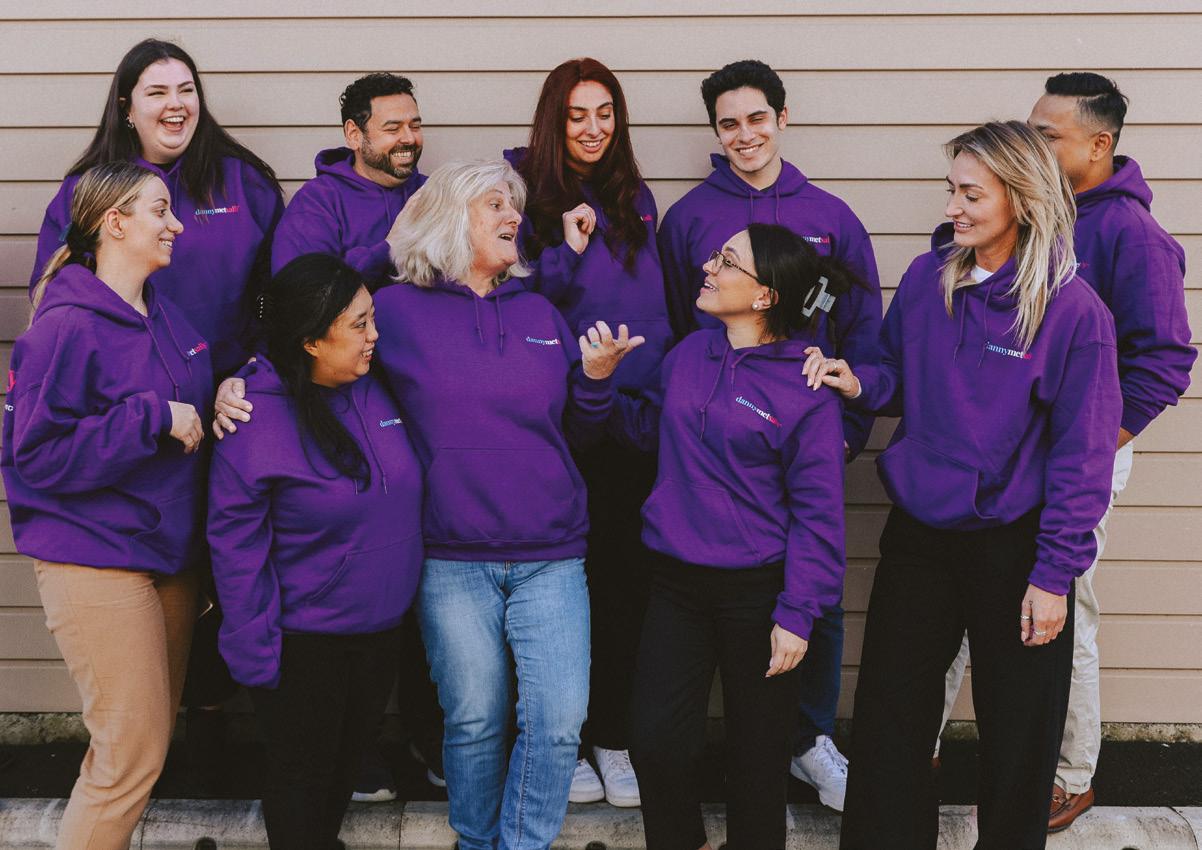
The quality of care we deliver at Danny Met Sally is high, and it’s for clients, staff and everyone in between. Our premium care services are tailored to each individual person to make sure our clients can live their lives to the fullest the way they want to, and when you work with us, you know you can look forward to a positive mindset, a listening ear and a commitment to wellbeing.
Experience the Danny Met Sally difference for yourself and learn more about our disability support and disability housing options, all across Adelaide and SA. Visit us at Booth 1 on Friday the 13th & Saturday the 14th of October at the Adelaide Disability, Ageing and Lifestyle Expo, to see how our standards of care truly are the best of the best.

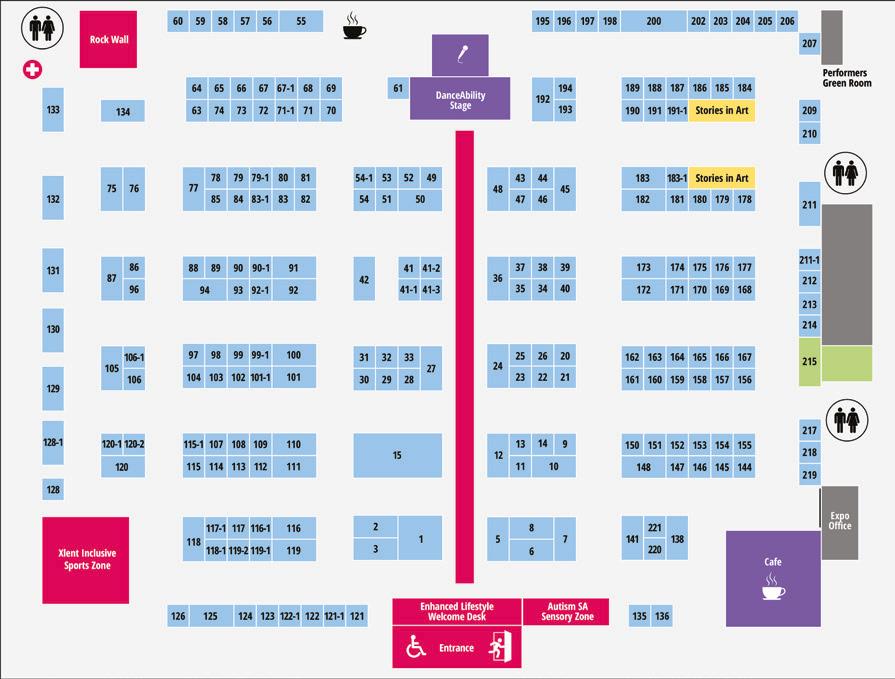
1300 529 517 | dannymetsally.com.au

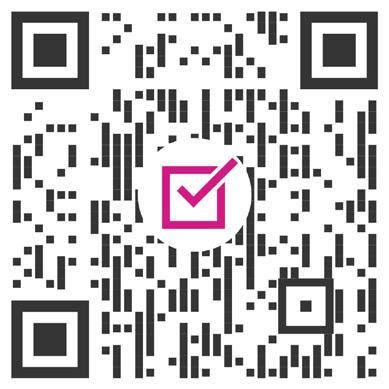
Scan the QR to view exhibitors and floor plan!



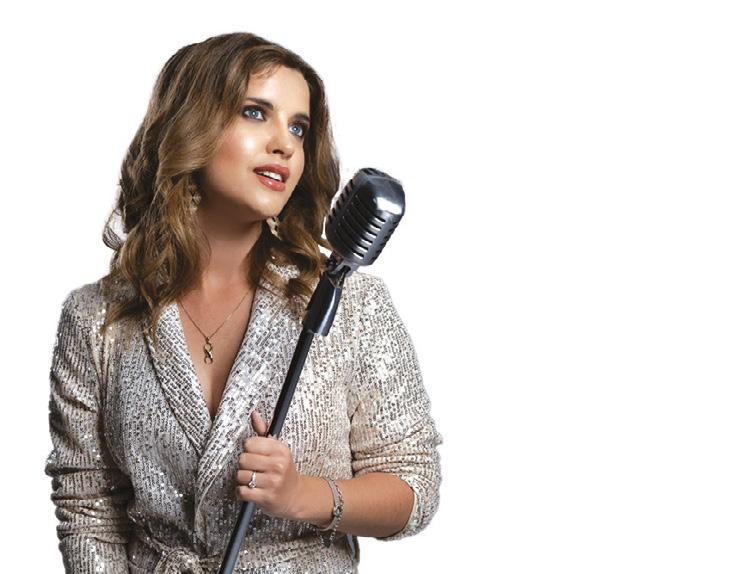
SA’s biggest gathering of disability and ageing service, product and information providers More info at www.dalexpo.com.au FREE ENTRY Rachael Leahcar performs LIVE! Free coffee for the first 100 people! 200+ exhibitors 4 food and beverage outlets




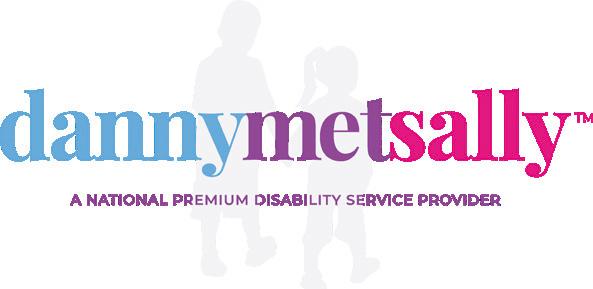





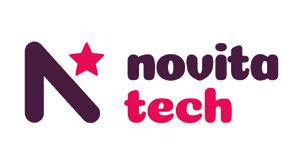
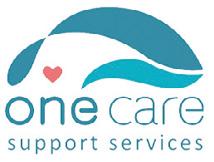

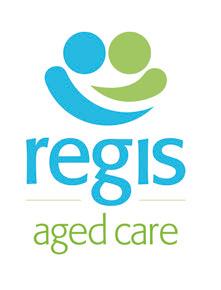






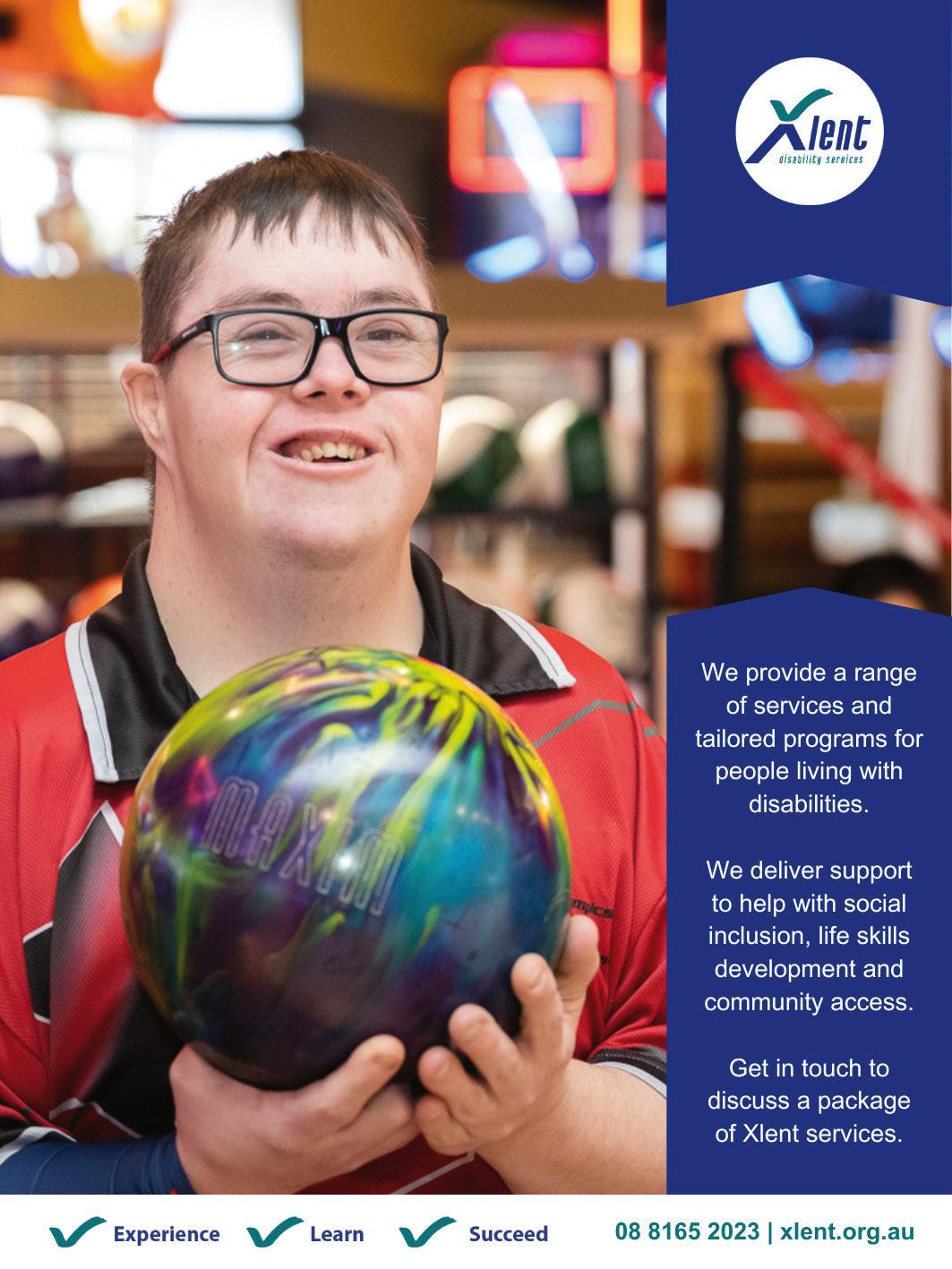

August/September 2023 48
Booth 25
Booth
12
Booth 1
Booth 47
Booth 48
Booth 30
Booth
17
Booth
24
Booth 58
Booth 23
Booth 45
Booth 29
Booth 05
Booth 39
Booth 02
Booth 26
Booth 42
Booth 08
Booth 173 FOR FURTHER INFORMATION OR TO GET IN TOUCH PLEASE VISIT WWW.SPCFOODSOLUTIONS.COM.AU NEW CATALOGUE
Booth 36
Welcome Rachael Leahcar back to the DanceAbility Stage! Catalyst Foundation is grateful and proud to have her as the Event Ambassador.


The Adult Safeguarding Unit responds to concerns of abuse or mistreatment of any adult who may be vulnerable due to age, disability, ill health, social isolation, dependence on others or other disadvantage.

If you have concerns that someone you know is being abused or mistreated, contact us for free and confidential advice, information and support. You may choose to remain anonymous.
1800 372 310
www.sahealth.sa.gov.au/adultsafeguardingunit
Australia's leading Disability & Aged Care Inhome and Community service provider. Dedicated to providing quality care to you or your loved one




Personal Care
In-Home Respite
Overnight Care
Nursing Services

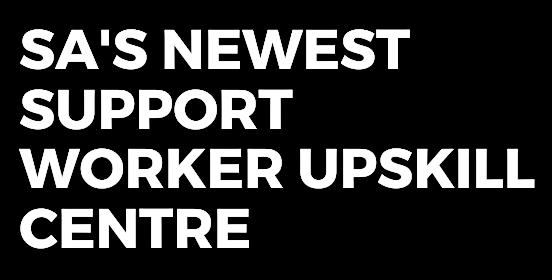
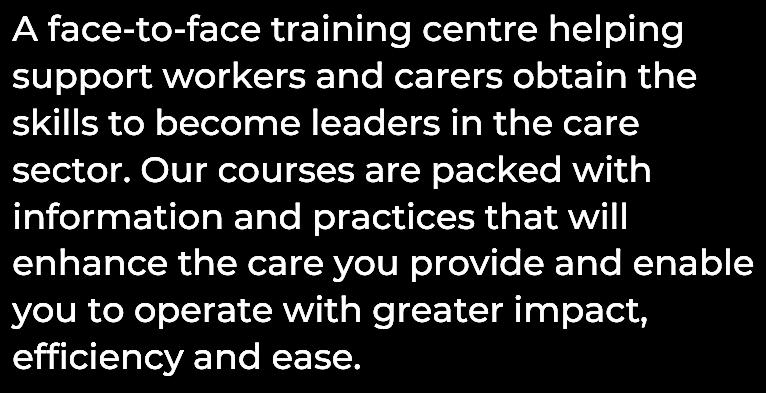

Domestic Services


Social Support
Meal Prep
Home Modifications
Home & Garden Care

Medication Assistance
Transport Shopping Assistance
For your FREE in-home consultation, call us today (08) 8265 5696


Website www.kompletecare.com.au



linkonline.com.au 49 Link to... DAL Expo
Aussie invention bringing the joy of everyday conversation to the hard-of-hearing
Transport, Regional Development and Communications and the Arts (DITRDCA), and accessibility specialists at the Australian Communications Consumer Action Network (ACCAN). In February 2023, the program was extended to residents of governmentsubsidised nursing homes, bringing clear communications to seniors in 10 care homes.
The world’s simplest phone
The Konnekt phone is about as easy to use as a telephone can be, that Nakulski and Grimm call “the world’s simplest phone”. Making a call involves one touch of the large photo contacts on the bright 15-inch screen. The powerful speaker bar provides clear sound –also available through a handset – and captions pop up in a separate panel as you talk. With the video on, you can clearly see your caller, and read their lips and facial expressions.
Before she got her Konnekt videophone in February, communications had dwindled to a bare minimum for Joy Day. Severely deaf, isolated even from fellow residents at her Queensland care home, 91-year-old Joy had exhausted a long line of flip-phones, big-button phones and captioning options, as her hearing deteriorated and her faith in technology waned. As the years went by, the once gregarious matriarch gradually stopped speaking with her family.
Imagine the elation when earlier this year, when Joy had a phone installed that not only produced conversations she could
hear, but captions she could read, and a screen on which she could clearly see her three children and seven grandchildren. “It’s totally changed her life,” her daughter, Julie Stephenson said, who now calls her mother every day.
To say that the Konnekt Captioning Videophone is a gamechanger is an understatement.
Since the phone was developed by Melbourne engineers John Nakulski and Karl Grimm, it’s been rolled out to 170 hard-of-hearing Australians in a partnership with Telstra, the Department of Infrastructure,
When a call comes in, the whole screen flashes – and Konnekt’s engineers can also help you set up a remote alert in other rooms. Everything from volume and contrasts to captions can be tailored to your preferences, with captions up to 7cm tall in 40 different languages, and there are various mounting and mobility options. The phone supports two-way captioning, free Skype calls, and Bluetooth connectivity for headphones and hearing aids, and there’s also a ‘safety option’ for calls from trusted callers to activate automatically after 30 seconds, a feature John said has already saved one lady who was severely ill and couldn’t reach her phone.
For Julie Stephenson, the videophone has literally brought her mother back into her life.

Link to... News
August/September 2023 50
Julie Stephenson with her mother, Joy Day
“We were getting to the point where we didn’t want to ring any more, it was just too frustrating with mum not using her phone properly and us not being able to hear each other,” she said. “We’d spent hundreds of dollars on flip-phones, big-button phones, captioning phones but none of them worked for her. But the Konnekt phone has taken all these challenges away. Having the soundbar in her room works well with her hearing aids, and the captions are fast and accurate.
“This phone has stopped her becoming isolated due to her hearing loss particularly during the recent lockdowns. I can watch her reading and absorbing the captions, and she always comments on what I’m telling her. “It’s great. Mum has never ‘done’ technology in the past so if she can make it work, anyone can!”
Targeted support
The Konnekt phone was invented by Nakulski, a former Telstra engineer, and Grimm back in 2013. But it wasn’t until 2020 that Kathleen Silleri, an assistant secretary at DITRDCA, heard about the device and was inspired to introduce Communications Minister Paul Fletcher, to Telstra’s CEO, Andy Penn, to see how they could promote it. Both were immediately impressed and offered to support a pilot program testing Konnekt’s technology with a group of about 30 hard-of-hearing seniors.
The pilot showed just what was possible from this practical public-private partnership, with Telstra and DITRDCA separately funding technological improvements, DITRDCA providing a grant to Konnekt to increase production, and ACCAN offering its extensive accessibility expertise to customer testing. As well as funding devices for the program, Telstra helped ensure their compatibility with NBN, ADSL and mobile broadband, and developed a package of cybersecurity software for the phone.
Dr Kevan Penter, who manages Telstra’s government contracts, said he’s not surprised the Konnekt phone has taken off, as it provides a unique combination of accessible technologies in an easy-
to-use package, backed by a genuinely compassionate company.
“John and Karl are outstanding innovators who have a real understanding and empathy for the needs of hard-of-hearing people, so there’s been a lot of development to make this device as practical as it can be,” Penter said. “In our opinion, this is a world-class innovation, and it’s clear that DITRDCA and the minister saw this as Australian tech that would enable families to stay in touch with elderly people living in care, which was particularly important during the pandemic. It’s a great example of how the power of broadband communications can improve outcomes for the isolated and elderly.”
For Nakulski, the support of Telstra and the government has been critical to Konnekt’s success in identifying and plugging a critical gap in the accessibility market.
“There’s a lot of technology around for 60-year-olds, but nothing for

those in their 80s and 90s, who are often much less tech-savvy,” he said. “It’s been tough getting to market, but the research these days conclusively confirms both the physical and psychological benefits of faceto-face contact for elderly people, particularly those living on their own or in care homes.
“Thanks to this support from Telstra and the government, we can offer our subsidised phones for just $5 a month to existing Telstra customers, while non-Telstra customers can use other funding such as NDIS, MyAgedCare or DVA to get subsidised packages. We provide all the support you need to make sure the phone is perfectly set up for your specific hearing, vision and physical needs. We get an enormous amount of pleasure from seeing people reconnect with their friends and families.”
More information: www.konnekt.com.au/captioningvideo-phone or www.accessibletelecoms.org.au
NEWS
linkonline.com.au 51
Free online safety training for people with intellectual disability
people, the training also provides information on:
• Understanding current online safety risks
• Enhancing connection, trust and partnerships with your child
• How to set up a cyber safe home.
The project, Online Safety Training for Young People with Disability and Their Support Networks, was funded and supported by The Office of the e-Safety Commissioner.
Interaction's Online Safety Training is self-paced and freely accessible on Interaction’s website at: www.interactionservices.org/onlinesafety.
Interaction Disability Services has launched free online safety training to empower people with intellectual disability and their support networks to adopt safe online practices.
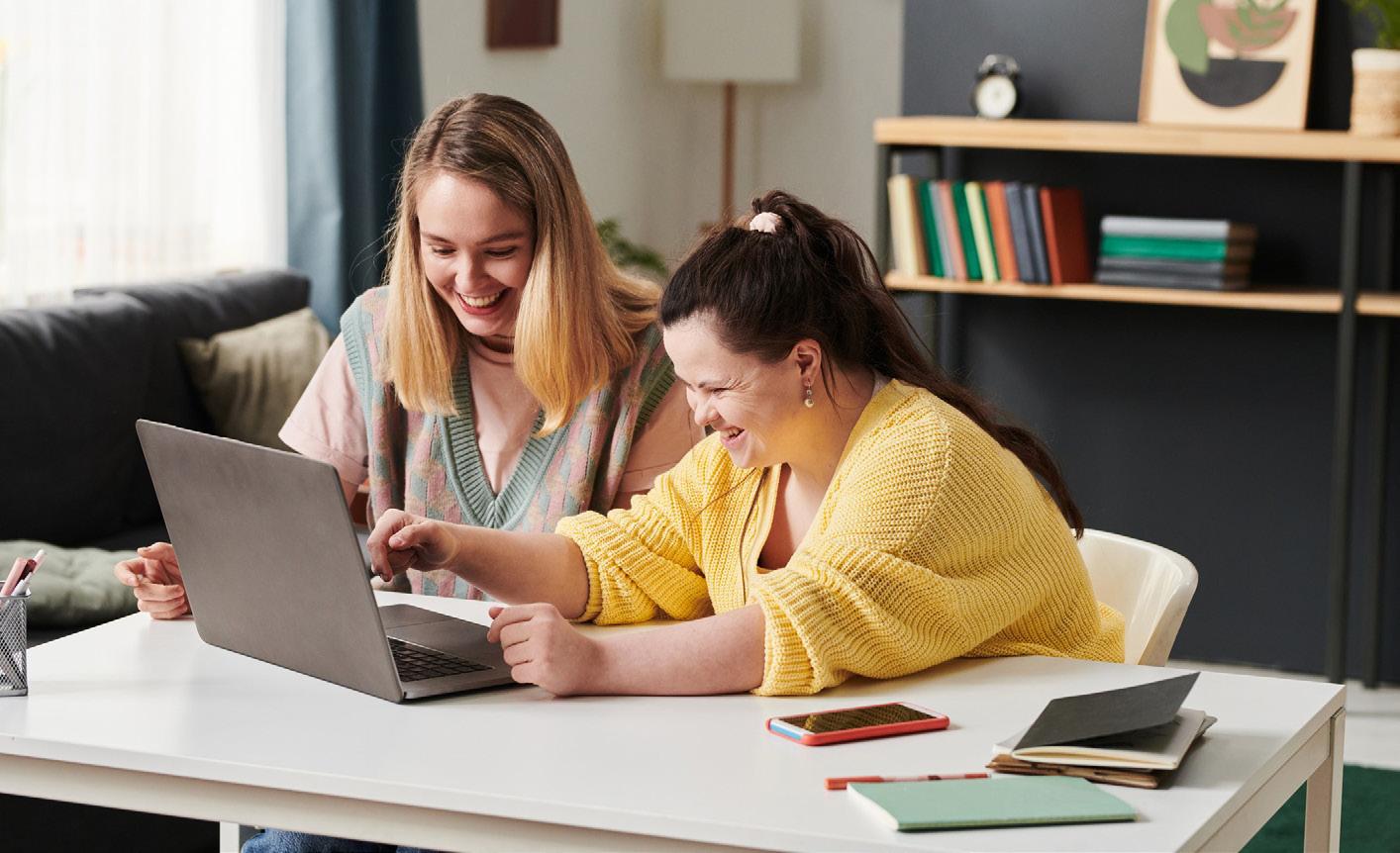
Equipping this vulnerable group with skills for identifying and overcoming online risks is vital for creating an inclusive and equitable online space.
With this training, people with disability will be able to participate in the rich, expansive world of the internet while being supported to mitigate the online risks that disproportionately harm them.
Developed in collaboration with ySafe, leading experts in cyber safety training, Interaction's Online Safety Training is available for free on a custom-built learning platform which includes accessibility features such as Auslan interpretation, closed captioning and audio-visual media to help users navigate and control their experience to suit their needs.
The program was developed in conjunction with sector experts to create specifically tailored content
and much-needed practical resources for people with intellectual disability to safely use and access the internet.
Members of the disability community were consulted throughout the development of the training, enabling the voices of those with lived experience to help shape the learning outcomes every step of the way.
The training spans eight modules; five tailored to participants and three towards parents, carers and educators. Each module addresses the specific challenges faced by this community in the digital world.
Topics include:
• Recognising and managing cyberbullying
• How to have safe online relationships
• Protecting personal private information
• Understanding image-based abuse
• How to improve your digital wellbeing.
To equip parents, carers and educators with the tools to support young
Interaction Disability Services is a not-for-profit, NDIS-registered organisation committed to supporting and empowering people living with intellectual disability.
Interaction works with individuals and families across NSW including participants with intellectual and/ or physical disability, and families and carers of people with disability. Our support services are available to people of any age, ability, need or background. We value diversity and understand that no two people are the same.
Interaction offers supported accommodation programs, support coordination, behavioural and allied health services including behaviour support and psychology, as well as community access and selfcare supports.
For information on how our team can support you to achieve your goals, call: 1300 668 123 or visit our website: www.interactionservices.org.
August/September 2023 52
Link to... News/Training
A disability-friendly solution in home modifications
At VIP Access, we specialise in disability modifications, having renovated numerous bathrooms and kitchens to be disability friendly. When modifying your home, we create solutions that provide a safer living environment, where the occupants can perform everyday tasks independently, regardless of their physical ability.


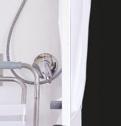



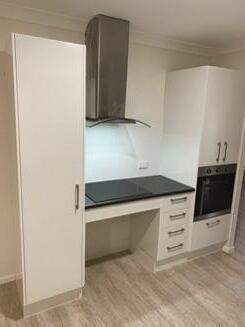


Major home modifications are custombuilt changes to your home to help you manage your disability and help you safely access or move around your home. The modifications can also help make daily tasks easier.
W hen modifying homes for people with disabilities, the first step we look at is accessibility issues, whether there is sufficient space to access the different areas required, turning areas, as well as removing all obstacles.
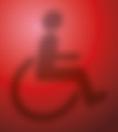
You may need home modifications if you:
• Have safety concerns or difficulty moving around your home
• Have trouble with personal care, like using your shower
• Cannot use the rooms you need to use in your home

• Have difficulty achieving your goals in your home because of your disability
• Need changes to your home so your carers can support you safely.
VIP Access modifications are not most importantly functional for the client, but stylish too.
At VIP Access we are also highly experienced in creating minor home modification solutions that don’t change the structural parts of the home but importantly assist in making your home safer and more accessible.

This can help you do things you find hard because of your disability.
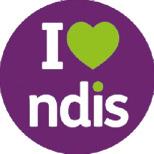
For minor modifications we provide the following equipment and installation, but not limited to:






















• Access ramps / portable ramps

• Grab rails






































• Non-slip treatment



• Concrete paths
• Stair treads
• Door widening
• Accessible tapware or a hand-held shower





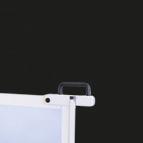
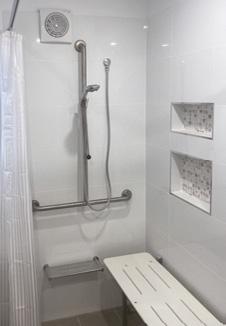
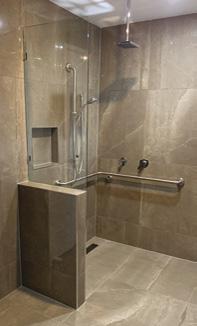
• Lever door handles.
T he industry of disability care and aged care is ever advancing, as is the technology to assist those in these areas. Equipment and home renovation options are becoming more prevalent and available for people who have a need. If these are solutions you need, then we would love to hear from you
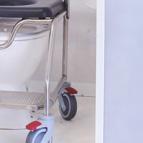


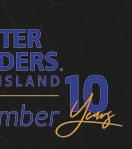

August/September 2023 54 Link to... Home Modifications & Housing
Assisted Living by Hafele
As humans, we long for connection, inclusiveness and for independence and freedom of choice: The Assisted Living Range by Häfele supports exactly that. We want to assist in helping people to live an independent life whilst also creating spaces that everyone can enjoy and work in together.
Discreet, effortless, and ergonomic Häfele’s FlexiElectric bench is solution for projects that require adjustable working heights like aged care, training facilities, education and specialist disability accommodation. The benchtop is a discreet solution that provides 300mm range of motion to adjust working height from 720mm – 1020mm at the touch of a button, meeting SDA guidelines and offers designers complete choice of benchtop material. It is easily integrated into any interior design scheme as installation details, legs and hardware are cleverly hidden whilst the user adjusts the worktop via simple button control.
As well as benchtop options Hafele provides wall cabinet fittings such as the Verti Electric, Verti Inside and Verti Diagonal, all controlled with the touch of a button. All electronic driven fittings are supplied with safety functionality as standard inclusions, not optional extras. For overheads, stop plates are included to avoid the risk of trapping. For bench systems, safety strips ensure benchtops don’t just stop but reverse their movement immediately when the safety strip is activated.
The Assisted Living range also includes electric wardrobe hanging systems, kitchen storage accessories, pull out corner units and pantries, integrated waste bins, soft close and opening drawers, appliances, sinks and taps, ergonomic furniture handles and LOOX LED lighting systems for intelligent and wireless light control.
Hafele’s auto door solutions for accessibility, prevent the door from being a hindrance. Swing door systems
Freedom and confidence to be independent Assisted Living by Häfele
Häfele provides products that are recognised and appreciated around the world for their high quality, flexibility and accessibility as well as suitably under the SDA standards.
Häfele’s extensive range of products makes the dream of living a free and independent life, a reality.
For more information please visit Assisted Living by Häfele and download a brochure today. info@hafele.com.au

make it easier to pass through a door whenever manual operation is too cumbersome or exhausting, in a clear modern design line. Additional products provide ease of use for wardrobes, bathrooms and sliding doors for education and the workplace.
Hafele provides project services to specifiers, planners, consultants and specialists in architectural hardware, furniture design and access control. Services include detailed planning manuals, seminars for planners addressing special topics, tendering texts, application examples and suggestions, CAD files and other planning support such as the Hafele TEC service for standards and instructions.
Sales consultants also provide specifiers with a wide range of functional and design options. For more information go to: www.hafeleassistedliving.com.au or PH: 1300 659 728 or visit: www.hafele.com.au
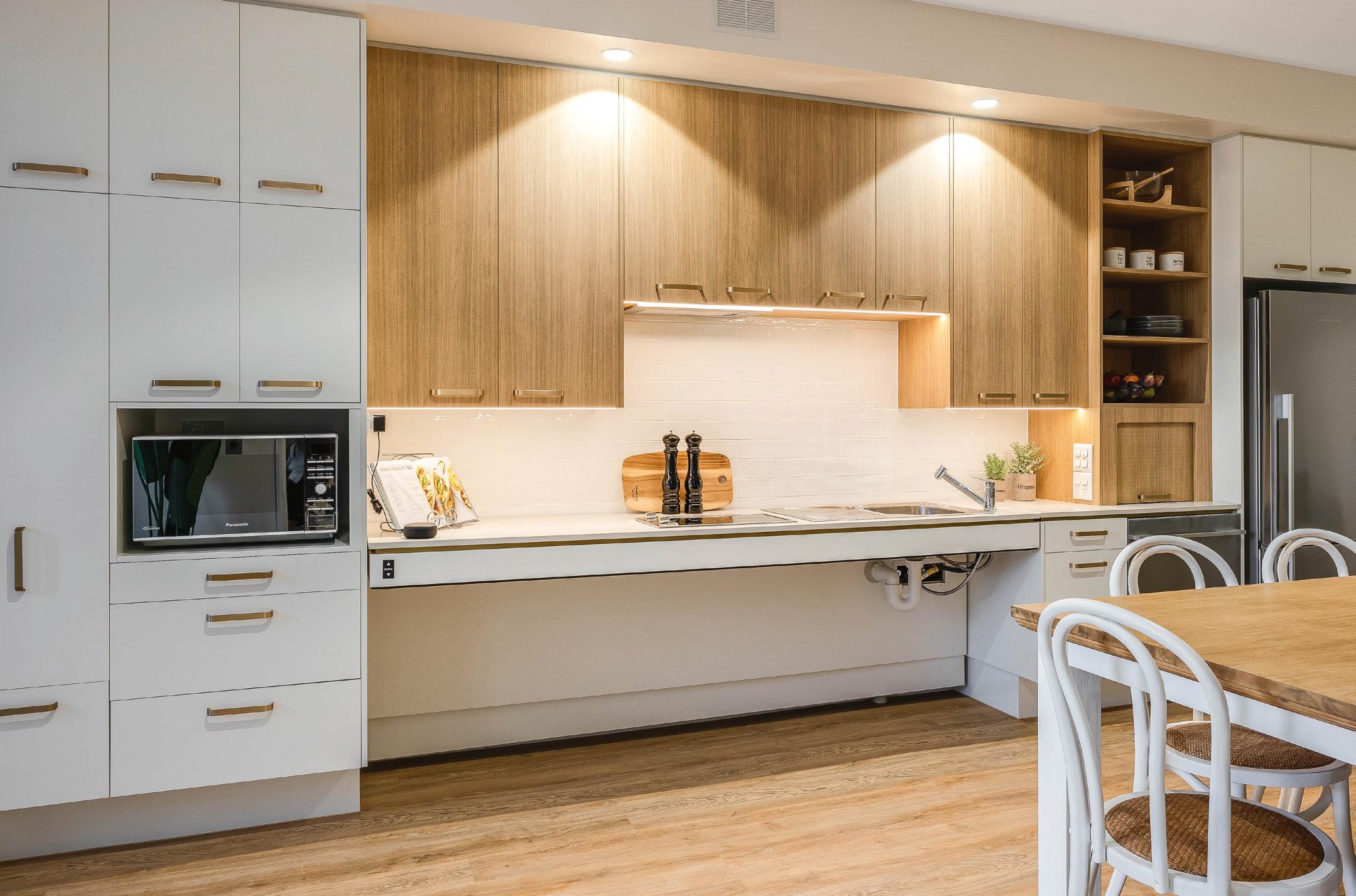
1300 659 728 www.hafele.com.au
Link to... Home Modifications & Housing linkonline.com.au 55
Live the dream at Forster

Forster Tuncurry on the Mid North Coast of NSW is known for its beautiful coastal scenery. A wheelchair-accessible unit allows individuals with disabilities to experience the natural beauty of the area. Accessible paths, ramps, and nearby attractions ensure that you, friends, family and guests can explore and enjoy the local beaches, parks, and other attractions without limitations.
Forster features well-maintained boardwalks and promenades that offer stunning views of the coastline. These pathways are generally wheelchair accessible, allowing individuals to enjoy leisurely strolls while taking in the scenic beauty of the area. The ForsterTuncurry Bridge is an iconic landmark connecting the twin towns of Forster and Tuncurry. The bridge features a dedicated walkway that is wheelchair accessible, allowing individuals to enjoy a leisurely stroll while taking in the views of the beautiful Wallis Lake.
And there is so much more to doForster hosts various local markets where visitors can browse and shop for unique products and fresh produce. Many of these markets are wheelchair accessible, allowing individuals to explore and engage in the vibrant local culture. Forster offers a diverse range of dining options, with many restaurants and cafés providing wheelchair-accessible entrances,
seating, and facilities. Visitors can savour delicious cuisine while enjoying the warm and friendly atmosphere of the town and take in a dolphin and whale watching cruise as Forster is renowned for its abundant marine life. Forster hosts various events and festivals throughout the year, providing entertainment and cultural experiences for locals. These events can range from art exhibitions and music festivals to food markets and sporting competitions. As a resident or visitor, you have the chance to actively participate and immerse yourself in the local culture and festivities.
Visiting or living in Forster brings many benefits. Forster offers a balanced lifestyle, combining the benefits of coastal living with a relaxed and friendly community atmosphere. As a “local’, you can enjoy the slower pace of life, appreciate the natural beauty, and partake in activities that promote health and well-being. Forster is known for its safe and family-friendly environment. As a local, you can enjoy a strong sense of safety and security within your community. This makes it an ideal place to raise a family or enjoy a peaceful and relaxed lifestyle. But the key to living in Forster is that it allows you to become an integral part of a close-knit community. You can build strong connections with neighbours, local businesses, and community organisations. The sense

of belonging and camaraderie fostered by the community can lead to lasting friendships and a strong support network.
The unit at G01 at “The Cove” has the benefit of being a wheelchairaccessible living/holiday unit that provides an inclusive and accessible environment for individuals with disabilities. The unit is designed to accommodate wheelchair users, ensuring that they can move around freely and independently throughout the space. It typically features wider doorways, spacious rooms, and modified bathrooms. With ample room and excellent storage the apartment can cater for the larger family or be a very comfortable residence ready to accept family, friends and visitors.
August/September 2023 56
Link to... Home Modifications & Housing
G01/50 Head Street ‘The Cove’, Forster
3 2 1
Located on the ground floor of the complex, approx. 250m (level pavement) from Pebbly Beach, 350m from Main Beach and Ocean Baths, with level access to cafe’s, restaurants, and shops in Forster CBD. This spacious and well-appointed apartment is not yet 2 yrs old and features all the modern conveniences you would expect within the open plan design - ducted air conditioning, ceiling fans, high ceilings, stone benchtops in the kitchen and bathrooms, SMEG stainless steel appliances, built ins for all 3 spacious bedroom rooms, and internal laundry. The unit has an added benefit in that it comes with a separate office that can be used as additional storage.
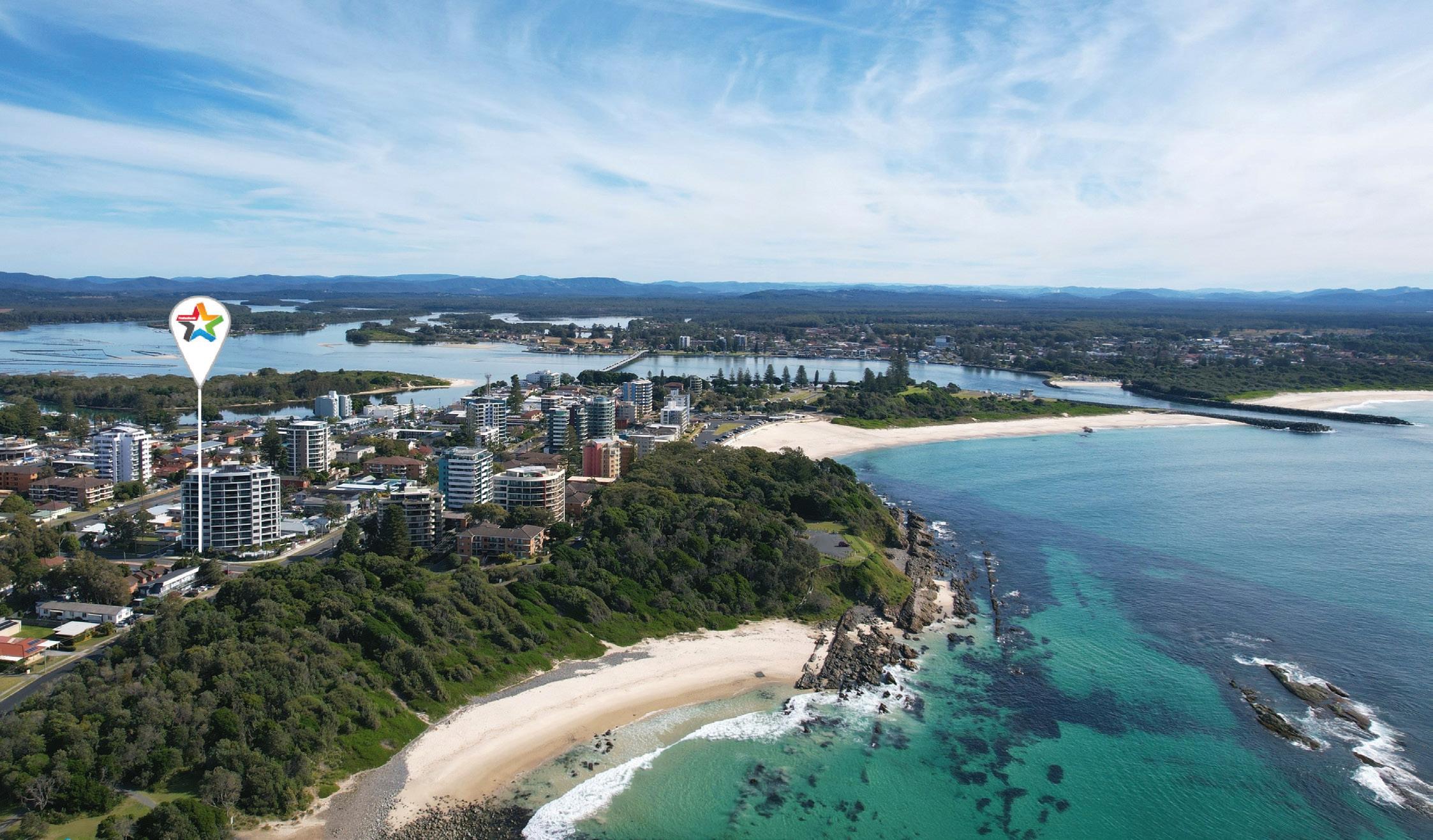

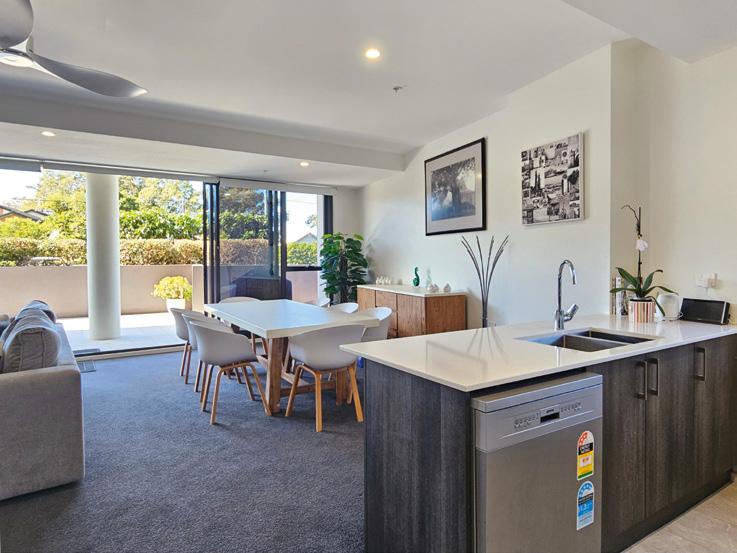

The living and dining area opens onto a generous balcony that spans the enter width of the unit, floor to ceiling glass doors provides for seamless indoor/outdoor living and accentuates the morning sunlight and afternoon sea breeze.
The doorways, hallways, and shower entrances within the apartment are designed to accommodate wheelchairs and maneuverability for individuals with mobility aids. The oversize designated parking space, within the secure basement carpark, caters for improved access and is nearest the lift ensuring convenient access. The Cove complex also offers a resort-style inground pool and fully equipped gymnasium.
Surrounded by the ocean, stunning waterways, and national parks, Forster Tuncurry is located approx. 3hrs north of Sydney on the Mid North Coast of NSW. Our coastal lifestyle with vibrant café and retail centers, and moderate climate, makes us a popular tourist and retirement hub.

Matthew Thompson on 0407 209 157
www.professionalsforster.com.au/search
FOR SALE
CONTACT
An apartment designed to accommodate individuals with mobility challenges to ensure their comfort and convenience.

Mable is where you can choose an independent support worker that fits your schedule. Search from more than 13,000 profiles to find someone based on interests, skills and availability.
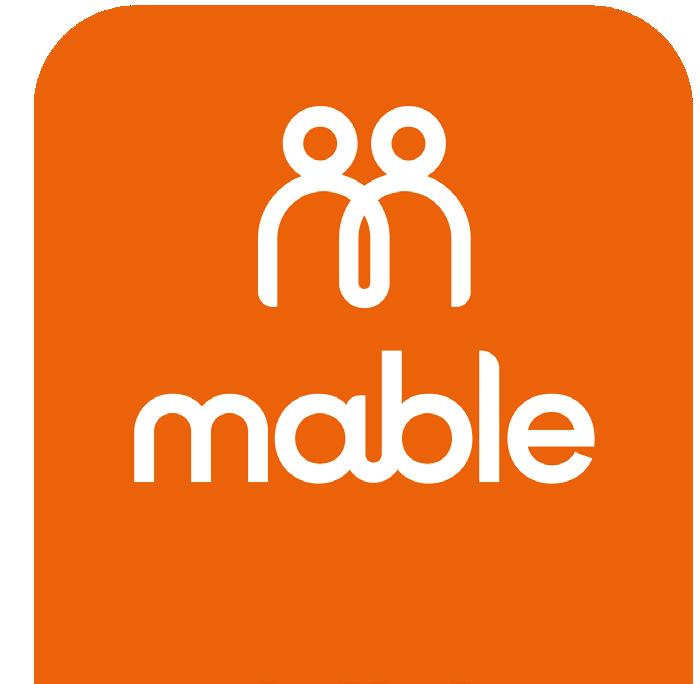

Find disability support on mable.com.au
Head to the job and hobbies you love with an independent support worker.
Live the life you choose in your own home
Wheelchair users face access challenges daily; not every environment can be modified to suit individual needs.
“Thanks to Autism SA he now has two families, and we like to see it as one big extended family.”
The holistic and therapeutic framework of Autism SA’s Supported Independent Living means that it truly reflects the interests, culture and environment of the individual.
Autism SA co-designs and facilitates Supported Independent Living (SIL) for individuals on the autism spectrum, including school graduates, young adults, adults, carers and families.
A ‘co-designed’ support means that the individual wanting, or needing, the support has as much input as they would like.
The support is tailored and based
on an understanding of what independence and success means for them.
“The supports I receive from Autism SA in order for our son to live outside of the family home is immeasurable,” the parent of an Autism SA client said.
“It gives both him and us, his family, the independence and freedom we all need to live a happy, healthy, balanced life.
“We recognise that to provide personalised services, collaboration with families and external stakeholders is paramount. That’s how we provide supports that make a house a home,” Autism SA regional manager, Jess Steyn said.
“Our team understands how important it is to have the freedom to make decisions about your quality of life.
“We tailor our services to meet the needs of the individual that will support them in moving towards and achieving long-term independence.”
Autism SA also provides short term accommodation, enabling autistic individuals to spend a night or a few nights in a fun and supportive environment that serves as a ‘home away from home’.
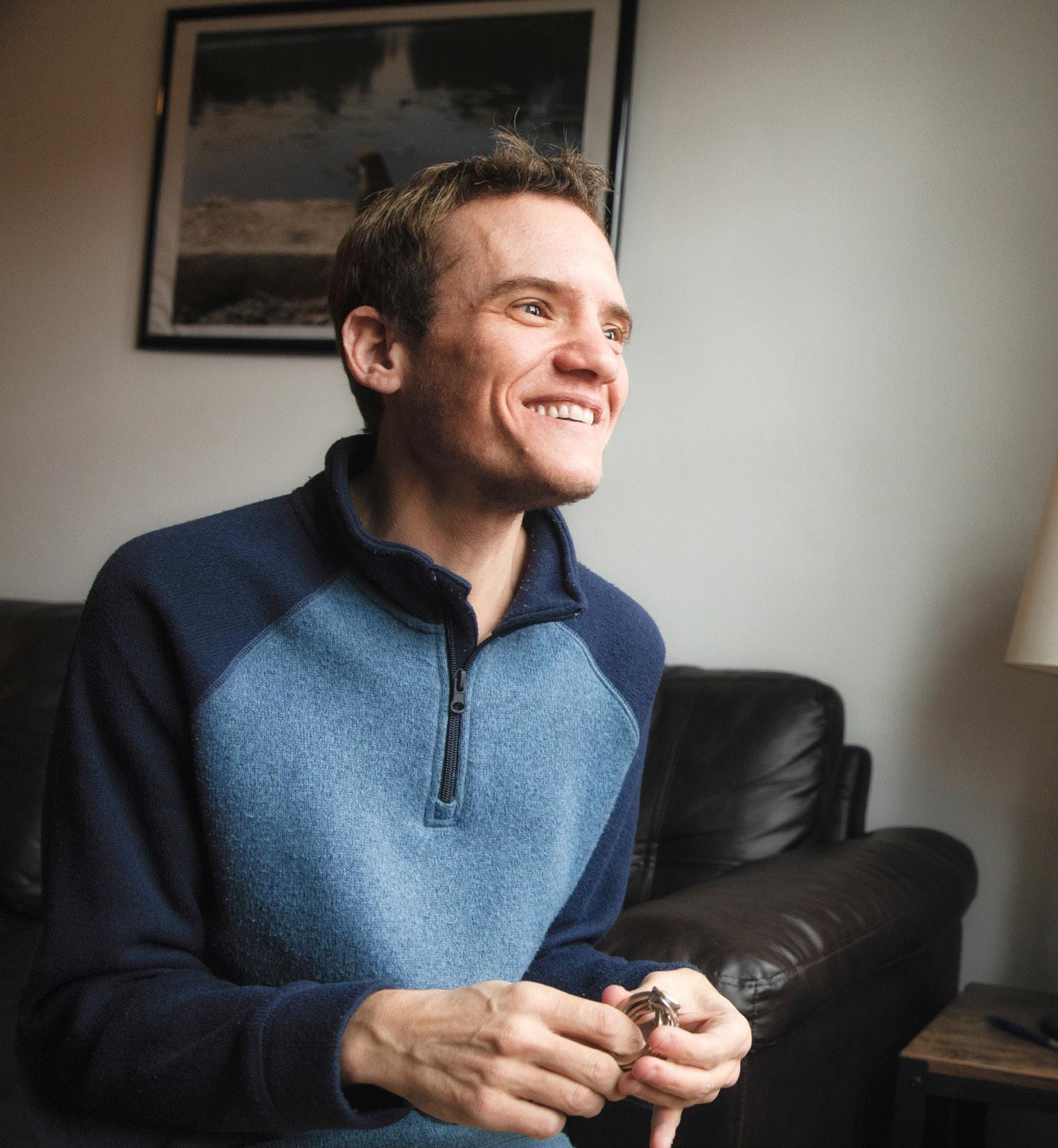
Autism SA is a registered NDIS provider and support can be accessed by autistic individuals, or families and carers on their behalf.
For more information contact Autism SA at: 1300 288 476 or visit: autismsa.org.au
August/September 2023 60
“We tailor our services to meet the needs of the individual”
Link to... Accommodation & Home Support
There are disability service providers and then there’s Aruma
day-to-day tasks like cleaning, cooking, personal care, going to appointments, taking medication, learning new hobbies and catching public transport. Aruma can even help match you to the right home sweet home and flatmates too!
offer accessible, high-physical support properties in many locations across Queensland, NSW and Victoria. These properties are brand new and fitted with the latest in assistive technology.
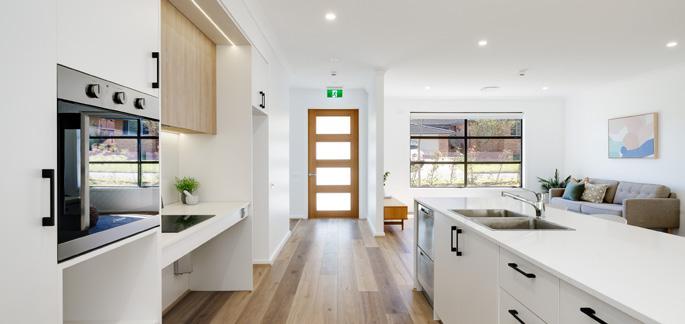
It’s easy to see why Aruma is one of Australia’s leading disability service providers. But what makes them like no other is that they live by the words ‘You. First’. It’s a simple, and powerful, philosophy. No matter what, their customers always come first.
Let’s take a deeper dive in to some of Aruma’s Home and Living services.
Supported Independent Living (SIL) is the NDIS support you receive in your home of choice. It’s available 24 hours a day and can be shared with other housemates. You’ll get a hand with
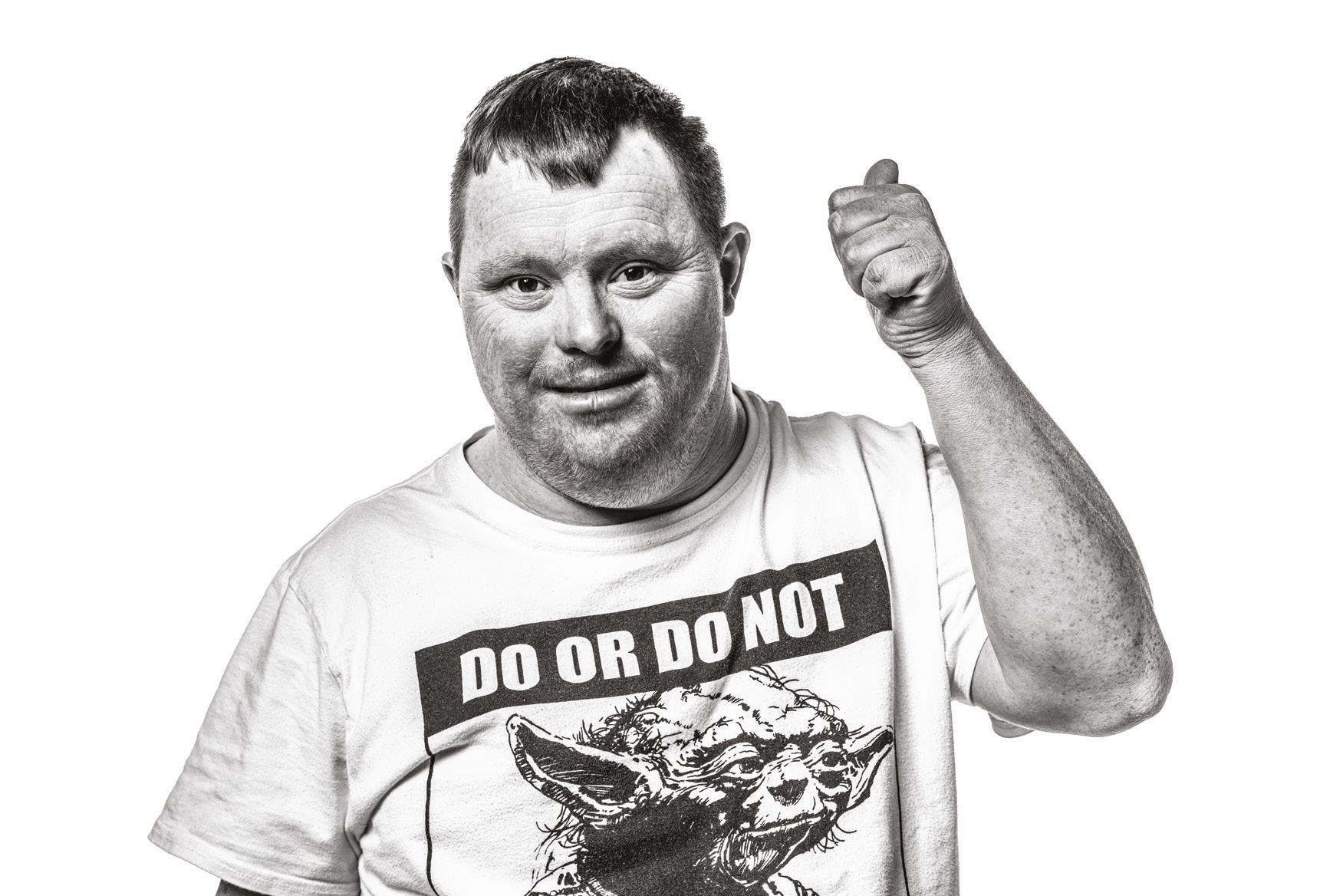
Specialist Disability Accommodation (SDA) is an NDIS fund for people with very high needs who need specialist housing. While SIL funds cover support in a customer’s home from someone like their support worker, SDA funds the physical home in which their services happen. All SDA homes have been designed with your accessibility, comfort and care in mind. This includes accessible features to help you live more independently and have better access to supports in your own home.
Aruma works closely with local innovative Specialist Disability Accommodation (SDA) developers and providers to
Interested? Get in touch with Aruma to find out more about these innovative property developments. Or to enquire about the range of existing SIL and SDA vacancies ready to move into now.
Want to know more about Aruma?
Aruma is one of Australia’s leading NDIS service providers. They’re the trusted partner and mentor to over 5000 adults and children with a disability throughout the east coast of Australia. Reach out to the Aruma team on: 1300 538 746 or enquiries@aruma.com.au
You can also head to Aruma’s website at: www.aruma.com.au
Link to... Accommodation & Home Support
linkonline.com.au 61
Embracing independence at home: Diane’s top tips!
you still have control and can make decisions about what you want. There are many opportunities in the day to make your own decisions. For Diane, taking control of her morning routine and getting herself ready helps her feel independent.
“I feel proud when I get myself ready. I pick out my clothes myself,” Diane said. “I make my breakfast. I get myself ready. I do my hair and get dressed.”
3. Get active
Healthy habits are important to our overall health and well-being. Being active by doing a sport or activity you enjoy is a great way to be healthy and feel good about yourself. Exercise can also build independence by empowering us to take care of ourselves, be more mobile, and improve physical fitness.
Independence is important for everyone. Being independent empowers us to take care of ourselves, pursue our goals and dreams, and contribute meaningfully to our homes, relationships and communities. For many people with disability, the journey to independence starts at home.
This has certainly been true for Diane, an Endeavour Foundation client who lives in Supported Independent Living (SIL) accommodation and attends the Learning and Lifestyle hub in Nambour. We caught up with Diane to ask her how she embraces independence in her everyday life.
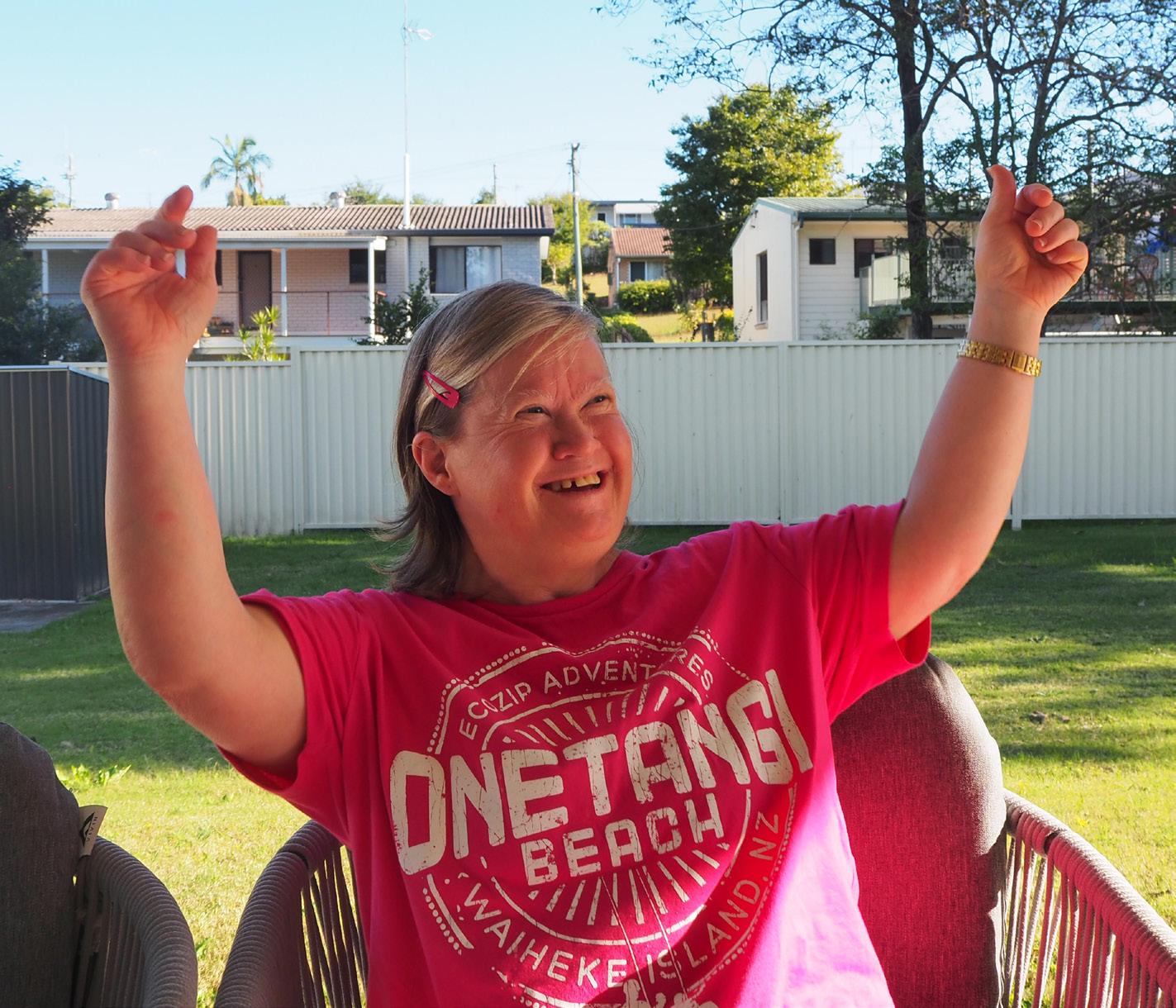
1. Have a regular routine
Having a routine creates a sense of structure and purpose in our lives. It can help us stay organised
and feel in control. Routines are different for everyone. It depends on what your goals are and what you like doing. For Diane, a routine filled with lots of different activities is what works for her. A week in Diane’s life consists of helping out around the house, going for daily walks, volunteering at her local cafe and attending the Learning and Lifestyle hub in Nambour.
“I go to the Learning and Lifestyle hub on Tuesdays and Thursdays,” Diane said. “I go to Compass Connections Café on Mondays. I also go to Learning and Lifestyle on Tuesdays and Thursdays.”
2. Make your own decisions
Your life is yours alone, so you get to decide what you do with it. Even if you need support around the home,
Exercise doesn’t have to be intense or require any special equipment. There are lots of low-impact ways to move your body, either at home or out in your community. Going for a walk around your neighbourhood is a great way to get outside and go at your own pace.
“I like walking,” Diane said. “I go for walks every day. I sometimes do laps around the house.”
Diane also gets active with the Learning and Lifestyle hub, where she participates in horse riding every second Tuesday. “Riding horses makes me feel happy,” she said. “The horses are calm and you bounce when riding them.”
Are you ready to start on your road to independence at home?
Visit endeavour.com.au or call: 1800 113 113
August/September 2023 62
Link to... Accommodation & Home Support
Growth on the cards for CSI post-Covid
promoting our services enthusiastically but also actively demonstrating to prospective clients that we are a genuinely reliable partner,” she said.
“As a well-established South Australian based NDIS accredited organisation, we are proud to be able to offer services to a greater number of people in the community requiring assistance.”
CSI’s range of services include:
• personal care • medication management and complex care needs such as managing enteral feeding, catheter care, bowel management
• social support • domestic services
• gardening • assistance to attend appointments. • support coordination.
South Australian in-home and community-based support service provider Community Support Inc is rapidly building capacity to grow its business under new CEO Sue Krake, who believes the Covid pandemic has made the organisation stronger than it was before.


“Naturally, the pandemic threw up all of the same challenges to us as it did others in our industry but rather than dwell in the relative tranquillity of these latter stages of the pandemic, we are allowing the pandemic to be a catalyst for growth,” Krake said.
For the past couple of months CSI been activity recruiting new support-workers so it can go to the market confidently
promoting its ability to meet the evolving care needs of the community.
“Covid taught us many lessons and the biggest one is arguably that the demand for risk-resilient, high-quality service-providers will rise postpandemic,” Krake said. “What we are seeing is that our clients, or those entrusted to make decisions such as parents or other family members, will now make decisions about care services with the pandemic in mind. They want to partner with organisations that have mature corporate governance practices that can weather storms.”
“They no longer want to rely on service-providers that are less risk resilient, and we are therefore not only
In June 2023, CSI Inc added palliative care to its range of one to one in home and community based support services. CSI’s services include clinical support, personal care, meal assistance, social and domestic support and transport services. Some of the team have prior palliative care experience and service duration will range from short visits to 24-hour support, depending on client requirements.
Every day, CSI provides personalised, tailored support services to almost 500 people of all ages living with disability, autism spectrum disorder, mental illness and complex health conditions, as well as older individuals who need support at home.
Link to... Accommodation & Home Support
linkonline.com.au 63
Sue Krake
Introducing the Maxima Mobility scooter: Your ultimate heavy-duty solution
Are you ready to embrace independence and reclaim your mobility? Look no further than the all-new Maxima mobility scooter by Pride Mobility.
It is the perfect companion for those seeking freedom, convenience and style. Whether you’re exploring your neighbourhood, shopping or attending social gatherings, the Maxima scooter ensures you can do it all, with ease.
The Maxima is available in both a 4-wheel and 3-wheel configuration, offering ultimate comfort with its new high-back, depth-adjustable recline seat that swivels for easier access. This ultra-heavy-duty scooter boasts a remarkable 226 kg weight capacity and includes side bumpers and USB
charging port. Embrace the luxurious feel and enjoy long rides without experiencing fatigue.
“We are excited to offer an all-new heavy-duty mobility solution, with the highest load capacity Pride Mobility has to offer,” Pride Mobility Australia sales and marketing director, Matt Herbert said.
Stand out from the crowd with the Maxima's state-of-the-art LED headlight package. Its thin and bright LED lights resemble those found on a luxurious SUV, giving your mobility scooter a sophisticated touch and enhancing visibility during nighttime outings. Powered by a 24-volt DC motor, the Maxima Mobility Scooter can reach speeds of up to 9.3km/h.
Thanks to brilliant engineering, the scooter boasts an impressive battery capacity of up to 31km per charge, enabling you to go the distance without compromise.
Experience the unmatched power and outstanding performance of the Maxima Heavy-Duty Mobility Scooter today.
Open a world of possibilities where independence knows no bounds.
To view the full range of Pride Mobility scooters, including the Maxima, visit:
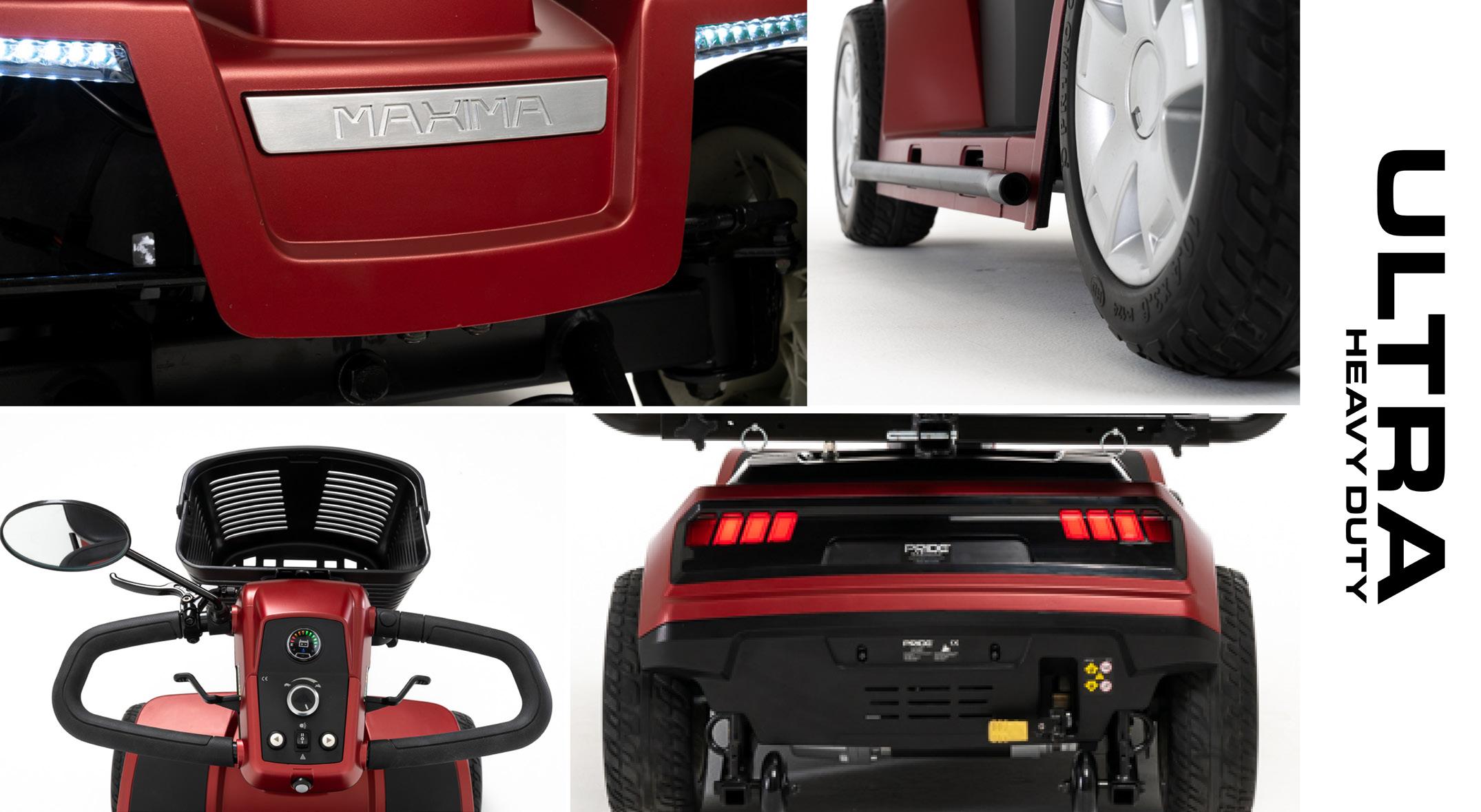
www.pridemobility.com.au/scooters.
View on the PQ365 app, available for download on the App Store or Google Play.
August/September 2023 64
Link to... Mobility
Maximise Your Potential
22” x 18-20” High back, black vinyl, depth adjustable, limited recline and swivel seat

Rear tailights
Black, flat-free, non-scuffing tyres
Lower deck-to-ground
Bumpers
<31 km Range per Charge
226.7 kg Weight Capacity
127.5 cm Turning Radius
Standard front basket
Full LED lighting package
Delta tiller
Tiller lever
USB Charger
Rearview mirror
Reaching new heights with power wheelchair functions

Wheelchair users face access challenges daily; not every environment can be modified to suit individual needs.
For many end users, seat elevation alone increases their access to function in unfamiliar environments. Functional reach is gauged by the wheelchair user ability to reach out of midline when seated and return to their starting position.
The height allows access at a stable range without causing the wheelchair user to reach above shoulder height, which can be destabilising for some end users. Powered lateral tilt can give some end users with limited shoulder abduction range the assistance of gravity to get closer to the side of the surfaces before reaching out of midline.
While this feature may not suit everyone, it can be a game changer for those with significant reductions in their shoulder function.
Optimising outcomes using powered features in power wheelchairs comes down to the application of these features in an individualised way.
Accessible environments have a strong focus on mobility access into and around their environments; but how many environments can boast accessibility of functional reach when everyone’s functional reach is different?
Power wheelchair users have access to numerous powered features to enhance functional access to cupboards, shelves, sinks, and bench tops but the challenges of varied environments can be greatly reduced with the choice of the right powered features!
Let’s review…Anterior Reach is achieved with the back of the seat pan raising over the front, allowing the hips and torso to come forward over the knees, improving functional reach.
Every manufacturer of powered mobility equipment achieves their anterior reach differently. Some allow the front of the seat pan to drop forward as the back raises up.
This can be beneficial to lower the knees for clear access under table surfaces while bringing the functional reach forward.
Others provide a consistent front seat height and raise only from the back of the seat pan to achieve an element of elevation to reach higher shelves and cupboards.
Some models will provide a lift and reach feature giving true elevation and anterior access forward of the wheelchair base.
Memory programming on powered chairs is a fast way to create desired positions for the wheelchair user. This becomes individualised when moving from a position of rest into a position of function. Changes in hip angles, shoulder positioning, the balanced base of support and heights can drastically increase the end users’ functional output in both controlled and unpredictable environments.
Linds Rehabilitation Equipment can help you find the right power features to optimise your independence when you can’t optimise the environment to meet your unique needs.
Contact Linds today to find out more about our extensive range of power wheelchairs.
August/September 2023 66
Link to... Mobility

Why are transport services so important?
Transport services are more than just an easy way to get from A to B, and here are a few of the reasons why.
What Are Transport Services?
Transport is a service usually offered by aged care and disability support providers, to help consumers and participants get from A to B safely. Often, these services will be delivered using a support worker’s vehicle. To start, the care worker will get the person they support ready to travel and take them where they need to go. If general support is needed at the destination, they’ll provide that too! Then, when the consumer or participant is ready to leave, they’ll bring them back home again, promptly, and safely.
Why are these services necessary?
Because as we age or live with disability, driving a vehicle may not
be an option. And likewise, public transport can pose challenges for people with lower mobility. But we all have places to be and people to see. So, transport services offer a safe and easy way for people of all abilities to get out and about, fuss-free!
Transport Services Encourage Independence
We should all be able to travel into our community, regardless of our abilities. We should be able to visit a local bookshop or café at our leisure or go for a stroll in our local park. But even more importantly, we should be able to easily access essential services—like specialist appointments or the local supermarket. This is one of the reasons transport services are so important. With the help of transport services, people of all abilities can live an independent life on their terms. It’s incredibly valuable knowing you have a safe and easy way to get wherever you need to go!
Transport Services Enhance Social Connections
Did you know that transport services can also act as a social lifeline? They provide the chance to attend social events, visit family and friends, or simply enjoy a day out!
Safe, and reliable access to social interaction can reduce feelings of loneliness and isolation. So, transport services aren’t just about convenience, they empower us to live a more vibrant, active, and connected life!
Could you use some help getting to your next doctor’s appointment? Or do you have a special event coming up and need a ride? Here at Simply Helping, we offer trusted transport services for older Australians and people with disability.
Visit our website simplyhelping.com.au to learn more on how we can assist you and your loved one.
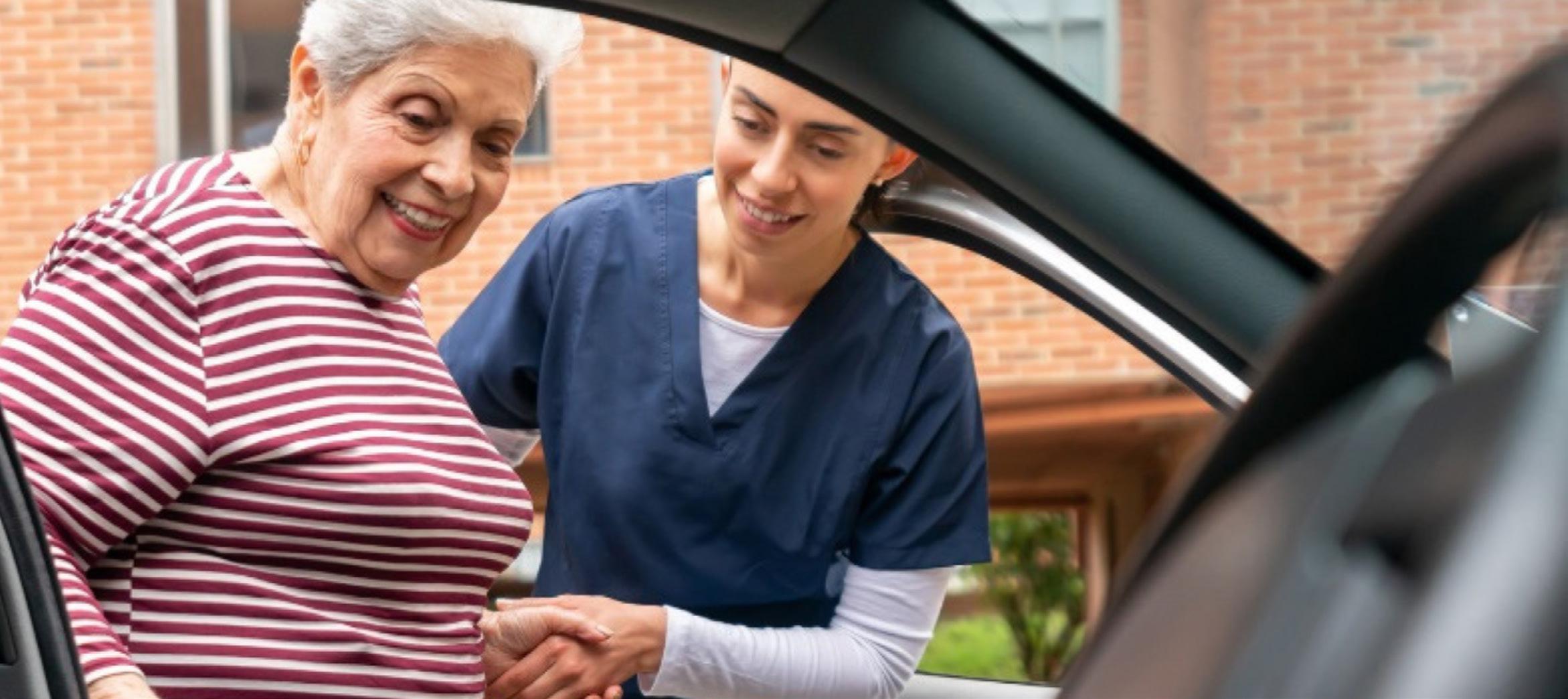
Link to... Mobility August/September 2023 68
Active Rehab announces special project - For International Day of People with Disability
Active Rehab has launched the Acts of Kindness Ambassador initiative to celebrate International Day of People with Disability 2023, with a grand opening event with special guest speakers at the new purpose-built premises at Woodward Road Bendigo, on December 1, 2023.
Active Rehab general manager William Stead will be guiding therapists and guests on tours of the facilities and workshops: “Active Rehab is a familyowned company. We work alongside allied health professionals to support their clients. Our purpose is to help others, to provide solutions and match the right equipment to the individual’s need,” he said.
The Acts of Kindness initiative invites children with special needs, and recognised by the NDIS, to become a brand ambassador with the opportunity to access scripted and selected rehabilitation products without using their NDIS funding.


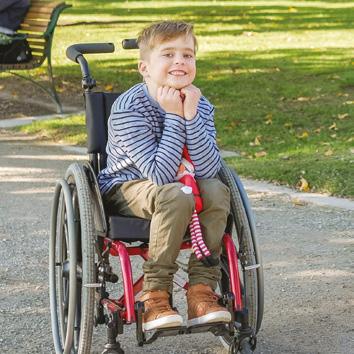
One of the products is the Yogi, a specialised adaptive jogger designed for special needs children, that can be easily converted into a bicycle trailer, a stroller or jogger.
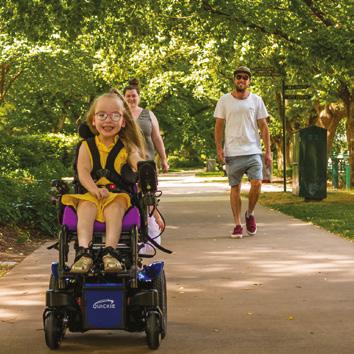

In an ongoing commitment to making a positive impact, Active Rehab are working towards raising awareness about the challenges faced by people with special needs, by encouraging individuals to apply and be a part
of this initiative, via profiles and social media.
A campaign marketing kit is available upon request to support schools in this program.
Prize: https://activerehab.net.au/ product/yogi-stroller-trailer/
https://www.youtube.com/@ activerehabaustralia
https://www.instagram.com/ lifebeyondthenorm/
https://www.facebook.com/ lifebeyondnorm
www.activerehab.net.au
Link to... News
linkonline.com.au 69
Staff drive bank’s inclusion and diversity commitments
lan Alcott
It’s been more than 10 years since Australian bank ANZ implemented its first accessibility and inclusion plan, and it continues to take leaps forward in the space thanks largely to a hard-working group of employees.

Link spoke to the bank about how it continues to lead in the diversity space.
Late last year, ANZ, one of Australia’s Big 4 banks, unveiled its Accessibility and Inclusion Plan 2023-2025. The plan is a public commitment to
creating a more accessible service for customers as well as employees and includes 14 commitments to embedding accessibility across all areas of the organisation.
The new plan is the latest step in a long journey for ANZ, and one that the bank is happy to take on, according to ANZ head of diversity and inclusion, Fiona MacDonald.
The bank has “a pretty strong track record across most dimensions of
diversity”, but particularly in disability. Its first accessibility and inclusion plan was implemented in 2008, and making that commitment public was a key part of the plan and “what gets measured, gets done,” she said.
Going public on the commitments to disability inclusion also served another purpose, by galvanising ANZ and ensuring that staff were clear on what needed to be done to make the bank an inclusive and accessible employer and service.
Link to... Corporate Profile
FionaMacDonald&Dy
August/September 2023 70
In fact, staff were a driving factor in the plan.
“It’s been largely driven by a group of really passionate employees who either have disabilities themselves, or who are really strong allies of people with disabilities,” MacDonald said.
Those staff formed the ANZ Abilities Network, a disability employee resource group. The staff members recognised that ANZ could become more accessible and inclusive, and banded together to make it happen. The Abilities Network is made up of staff from across the bank who volunteer their time and lived experience to advocate for better supports for both employees and customers with disabilities. As a representative body that can advocate to leaders within the bank, that lived experience is vital to the Network’s work.
The Abilities Network began working on accessibility long before it landed on the wider business landscape’s radar.
“It wasn’t really something that we discussed in business back then, so it’s really interesting to see that they’ve been passionate and been working so hard for so long,” she said.
And it’s not the only accessibility program that ANZ runs.
The bank also has a strong focus on hiring autistic people through its ANZ Spectrum Program. This program aims to provide targeted support for employees with autism. It uses what the bank calls a “non-traditional recruitment process” that suits autistic people, and once hired, those recruits learn the ropes of different roles at the bank. The first cohort started in the program in 2018 and moved through cyber security, coding and testing roles. The Spectrum Program also provides autism awareness training to other ANZ employees, to ensure the working environment around the recruits is inclusive and supportive.
MacDonald uses the word “holistic” to refer to the bank’s all-encompassing focus on accessibility. From considering physical accessibility of locations
for work events, to shaking up the recruitment process, ANZ aims to embed accessibility across the organisation.
“It’s never just been one program. It’s about making sure our recruitment processes are accessible, making sure that the onboarding process is accessible, making sure that people are set up for success… through to just making sure they have an ongoing inclusive experience,” she said.
As well as utilising the suggestions of the Abilities Network, ANZ works alongside several national organisations that promote the rights and views of people with disabilities. It has long supported the Dylan Alcott Foundation, with the tennis star and former Australian of the Year acting as ANZ ambassador for a time. ANZ became a signatory to The Valuable 500 global disability inclusion campaign in 2020, committing to putting disability inclusion on its board’s agenda. It has also joined the IncludeAbility Forum, which brings together employers who want to create meaningful employment opportunities for Australians with disability.
ANZ’s actions on disability employment have not gone unnoticed; the bank was recognised in the 2020-21 Australian Network on Disability Access and Inclusion Index as a leading organisation.
When it comes to recruitment of people with disability, it all boils down to understanding what the potential employee needs to thrive. During staff recruitment, this could mean ensuring digital assessment tools are accessible for people with different types of disability, from neurodiversity to vision impairment. ANZ also empowers its hiring managers to understand what accessibility accommodations can be made to set up an employee for success in their role. The Abilities Network played a leading role in advocating for a different mindset in recruitment, using its voice to help ANZ’s leaders understand the different experiences of people with disabilities.
“Particularly when it comes to people with disability, the range of disabilities can be so broad and they are not all
visible. And even if two people have the same sort of disability, their needs might be different. Having a strong voice of people with disability in the workplace has really helped us understand what employees need and really shifted the culture of creating the psychological safety that people need to be able to ask for the accommodations that they need,” she said.
“That’s another reason why having a public accessibility plan is quite powerful, because it does demonstrate quite visibly that this is a strategic priority for an organisation.”
The plan also serves to promote ANZ as an inclusive employer for any prospective employees with disability who are looking for an organisation that takes accessibility seriously.
According to MacDonald, inclusion is “baked into… our values” and “inherent in the culture” of ANZ. Staff receive disability-confident workforce training and managers and leaders receive training around inclusive leadership and recruitment, thanks to the bank’s partnership with the Australian Network on Disability.
“Most people want to do the right thing but often don’t know how” when it comes to disability, so the training helps empower staff to know what to do and creates a better employment experience for all employees. She said she has heard staff say they use what they learned at the training in other aspects of their lives too, not just in the workplace.
The same is true of businesses looking to be more inclusive.
“For me, the key is about educating yourself. You need to take that accountability to educate yourself. Put yourself in someone else’s shoes. And then, just ask people what they need as well. I think that what often happens, particularly for people with disability, is people make assumptions about what they can or can’t do, what they do and don’t need, when in fact, the person with disability is the best able to tell you what they need. So just ask them, and don’t make assumptions,” she said.
CORPORATE PROFILE linkonline.com.au 71
The House With All The Lights On
By Jessica Kirkness
grandparent’s lives were rich and full. Despite this, their experiences of being deaf in a hearing world were marked by misunderstanding and miscommunication with the world at large, and even with those that loved them most.
undeclared boundaries and unique bonds. At the heart of it all is Jessica’s attempt to understand the complex dance between pride and shame.
'An elegant and empathic love letter to family.' - Fiona Murphy, author of The Shape of Sound
Jessica Kirkness is a writer and researcher who lives in Sydney. Her work has been published in Meanjin and The Conversation, among other outlets. In 2021, her manuscript was shortlisted for the Richell Prize for Emerging Writers. In the same year, she also received a commendation for the Peter Blazey Fellowship, awarded to writers in the field of Life Writing.
This literary memoir is about home and family and introduces the reader to the broader issues related to sign language, deaf culture, politics, identity and grief. Take a lyrical exploration of family, identity and history, and what it is to be a member of a family where the most beautiful of bonds are born in difference.
Though deafness is commonly understood and represented as a tragedy, a pathology or a condition worthy of pity, Jessica’s
The House With All The Lights On asks what it means to be an ally, and rethinks hearing as something takenfor-granted but far from neutral. It considers what it is to be a member of a family with its own unspoken rules,
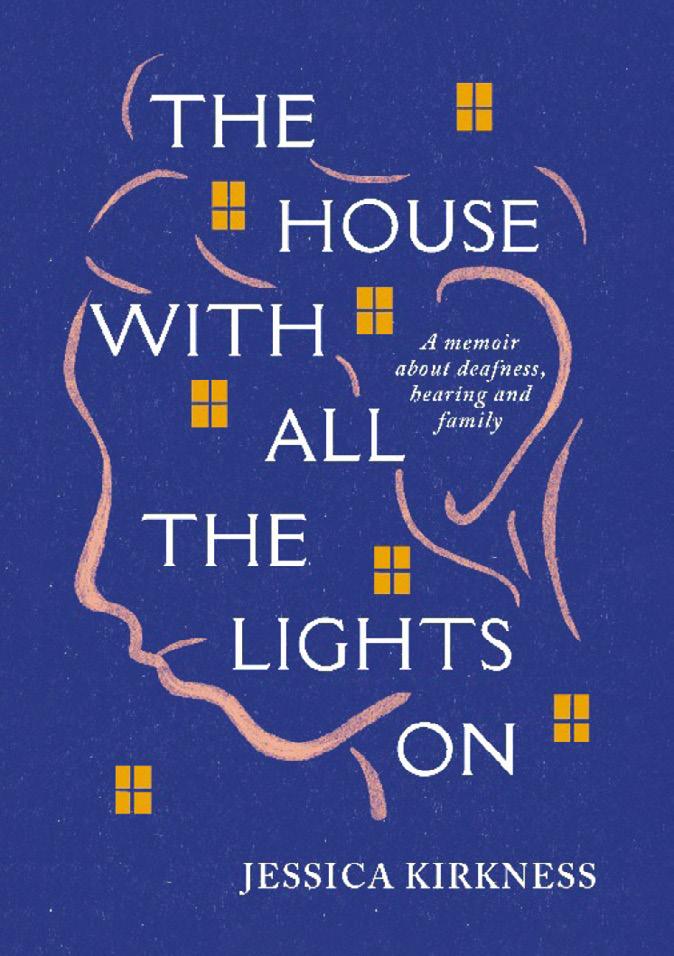


Earning her PhD in 2019, her research investigates the value of life writing and creative nonfiction in animating the 'hearing line': the invisible boundary between deaf and hearing cultures. She teaches nonfiction writing at Macquarie University.
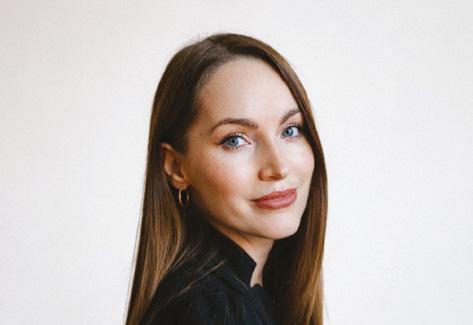
Available now.
Published by Allen & Unwin.
RRP: $34.99
‘In Auslan, stories unfold like moving pictures, with images sewn together in an art similar to cinematography. Narratives are rendered through a sequence of frames, shots and angles conveyed by the signing body.’ – Jessica Kirkness
Link to... News
August/September 2023 72
Igniting the Passion of Occupational Therapists
By Libby Callaway
A Conversation That Matters at the 2023 National
For the first time in four years and since the pandemic which closed the borders to national events and group gatherings, it was fantastic to have over 1,200 occupational therapy clinicians, researchers, educators and policy advisors meeting together in Cairns for the OTA 30th National Conference and Exhibition in June 2023.
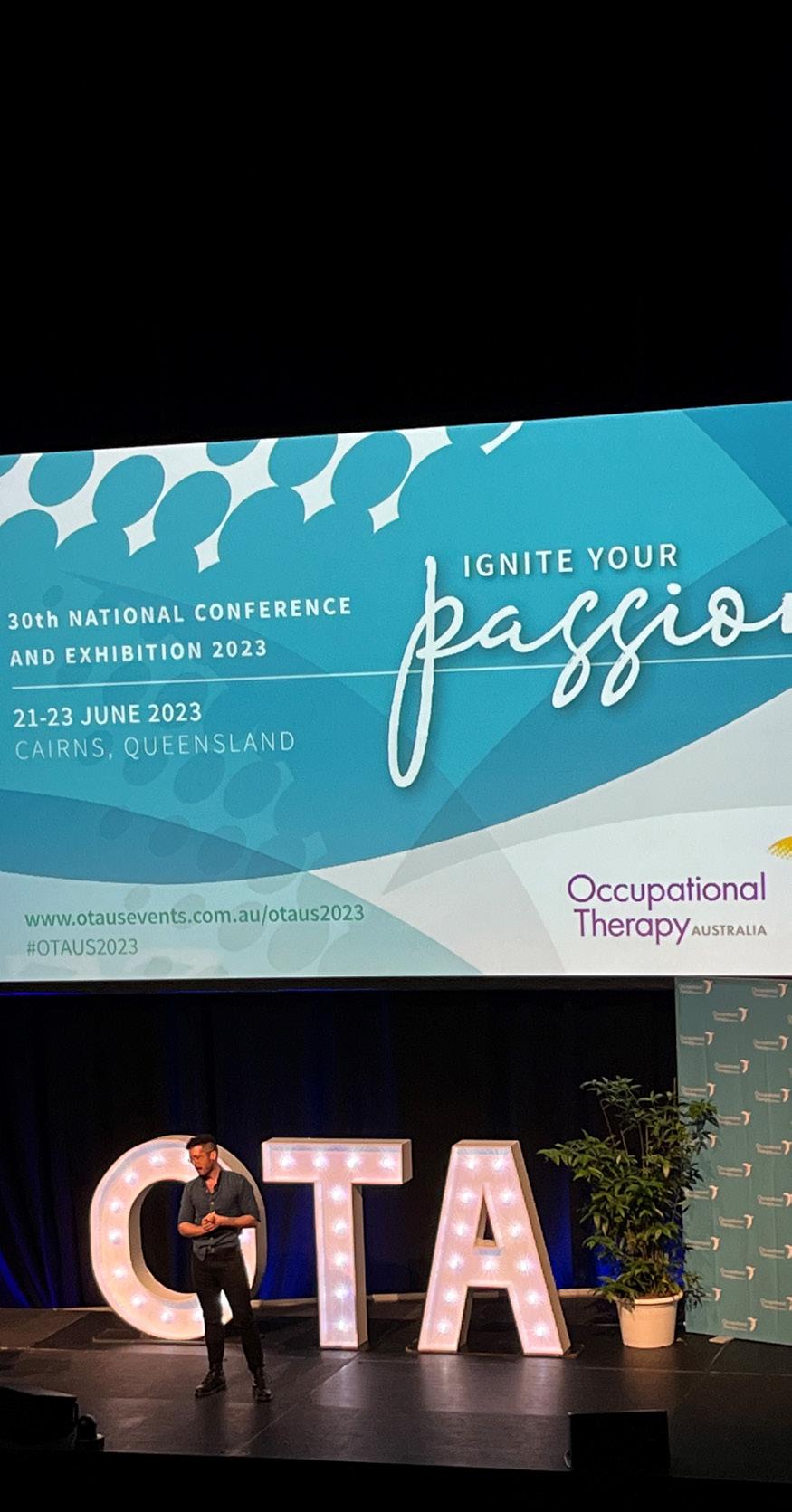
The theme of the event was “Ignite Your Passion” and the Australian Rehabilitation and Assistive Technology Association (ARATA) hosted a session as part of the “Conversations That Matter” at the conference.
Over 60 occupational therapists in the room together shared their perspectives on how the 10 recommendations made within the inaugural 2022 World Health Organization/UNICEF Global Report on Assistive Technology could be enabled by OTs in Australia.
This group “conversation” was further enhanced by our team’s recent publication in the WFOT Bulletin.
This article raws together examples of OT practice across the globe –including some from Australia – that evidence practice aligned with the 10 recommendations, illustrating the role of the OT profession in implementing the WHO/UNICEF Global Report on Assistive Technology.
These recommendations are provided below:
1. Improve access to AT within all key development sectors.
2. Ensure that assistive products are safe, effective and affordable.
3. Enlarge, diversify and improve workforce capacity.
4. Actively involve users of AT and their families.
Occupational Therapy Conference in Cairns
5. Increase public awareness and combat stigma.
6. Invest in data and evidence-based policy.
7. Invest in research, innovation and an enabling ecosystem.
8. Develop and invest in enabling environments.
9. Include AT in humanitarian responses.
10. Provide technical and economic assistance through international cooperation to support national efforts.
Using live polling at the start of the “conversation”, attendees were asked to nominate those of the 10 recommendations that they felt were most feasible for Australian OTs to rapidly impact.
This short list was then populated via a live interactive digital post-it board with specific examples of ways that OTs could enable these recommendations in practice.
The “conversation” ARATA hosted also included provision of a range of resources, including various global assistive technology reports, assessment tools, models to guide AT practice and outcome measures.
Readers of this current article are welcome to explore and/or add to this shared resource via https:// usc.padlet.org/michele_verdonck/ at-conversations-that-matter2jb8dk062axmyxri.
ARATA looks forward to summarising the findings from this “conversation” and will share key findings with the AT sector through Occupational Therapy Australia’s communication channels soon.
Associate Professor Libby Callaway is President of the Australian Rehabilitation and Assistive Technology Association (ARATA), a member of Occupational Therapy Australia, and a registered occupational therapist who works across the Rehabilitation, Ageing and Independent Living Research Centre and Occupational Therapy Department at Monash University.
Link to... News
linkonline.com.au 73
MC Caleb Rixon, stroke survivor and founder of the Genyus Network
Looking inside to share life and art
The key to self-expression and finding your voice.
characters that include The Phantom and Robin, from Batman, created using acrylic paints and canvas.
Justin’s art practise is diverse, and he enjoys learning new techniques from mentors and people he works and connects with. For the Artful Art Prize Justin is submitting a large self-portrait in the mixed medium category. This selfportrait has been created in workshops run by Multitask in Lismore using a combination of mediums including drawing, copying and collage. Artwork is black and white. Its layers give it depth and shade based on a photo. It uses a gel medium transfer technique that requires photography, image manipulation, paper, glue, wood, and lacquer.
“It took some time. It started with a colour photo on a mobile phone, and I learnt how to use the gel transfer technique to create a much larger image that is multiple layers, set with lacquer,” he said.
When Justin attended his first art workshop by Multitask at Club Lane in Lismore almost 10 years ago, he had no idea the creativity he had within. Today he has more than one creative outlet, and when he isn’t working or out and about fishing with friends, he spends time honing his crafts, and sharing his creativity with the people he loves.
Born in Sydney, Justin and his family moved to Casino in the Northern Rivers of New South Wales before he started school. As a youngster he was interested in riding his bike, playing sport with mates, and helping his father work on and fix-up cars.
“I wasn’t really doing art at school. I did some colouring in but didn’t do my own designs,” he said.
In recent years Justin and his family travelled on holidays visiting family and exploring Australia. He recalls enjoying a trip to Bundaberg to visit a great aunt and the rum distillery, driving the Great Ocean Road, the Nullarbor Highway to Perth and several stays in Canberra where they visited the Australian War Memorial. It is these adventures that he said are some of his favourite memories as a young man. On these trips he bought commemorative stickers to add to his growing collection.
These stickers were Justin’s first foray with art and graphics. He loved the bold colours of the fonts, icons and images as well as the memory associated with each of them.
This love of colour is reflected in some of his more recent acrylic paintings and pencil drawings of comic book
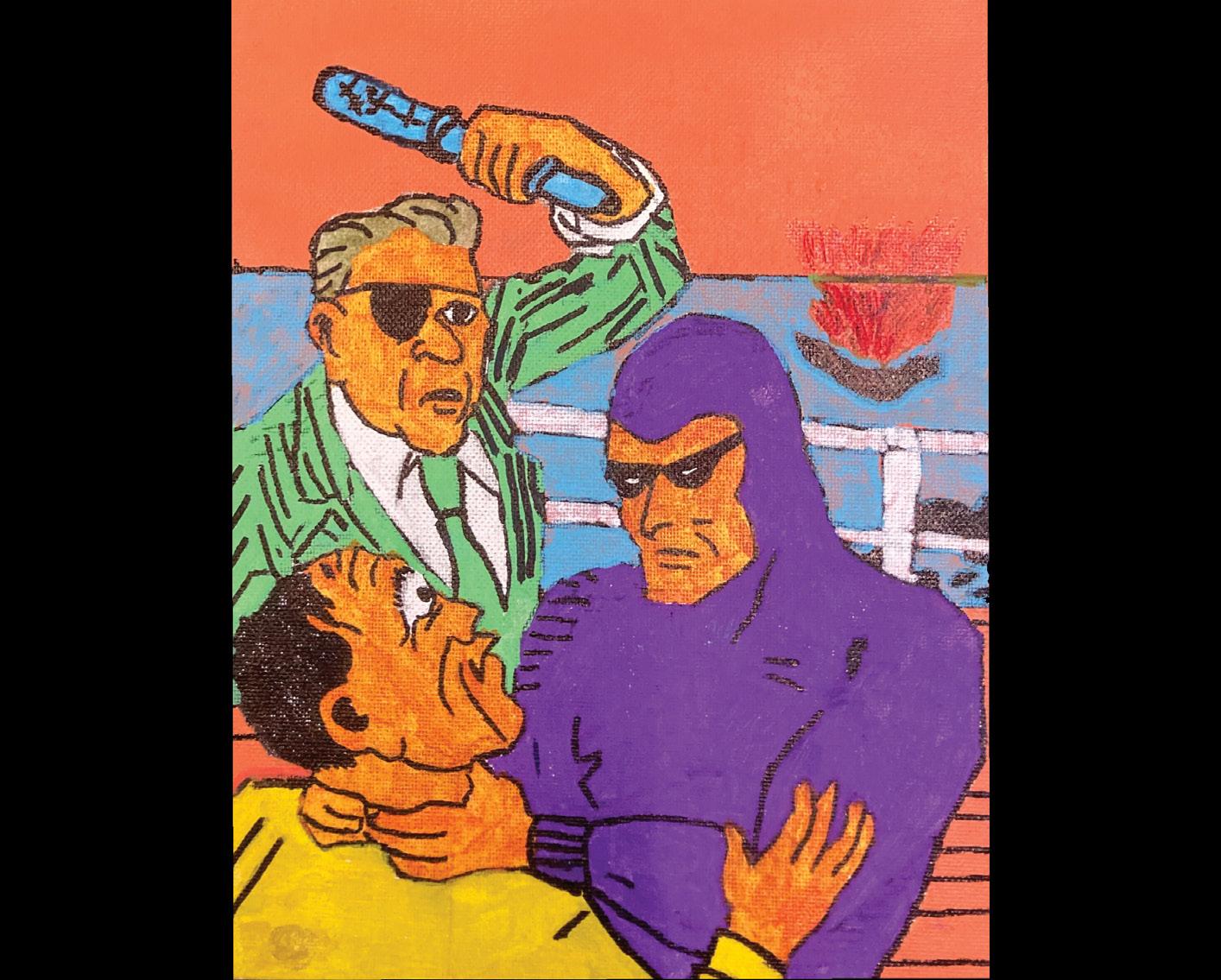
His current passion is bonsai, and he spends hours nurturing his plants. He learnt the art of bonsai in a local private class and enjoys the silence and pace of bonsai.
“You need to have patience, be careful and not rush when looking after the plants and training them. I have about 11 bonsai that I am working on, including a crepe myrtle, sandpaper fig, liquid amber, Chinese Elm and many more varieties. I’m looking for a Japanese Maple to add to my collection.”
The 47-year-old has worked at Windara Nursery, a social enterprise just outside town for 29 years, and now works at the local bus company mowing lawns and washing the buses.
To enter the Artful art prize go to: artful.org.au
Link to... News
August/September 2023 74
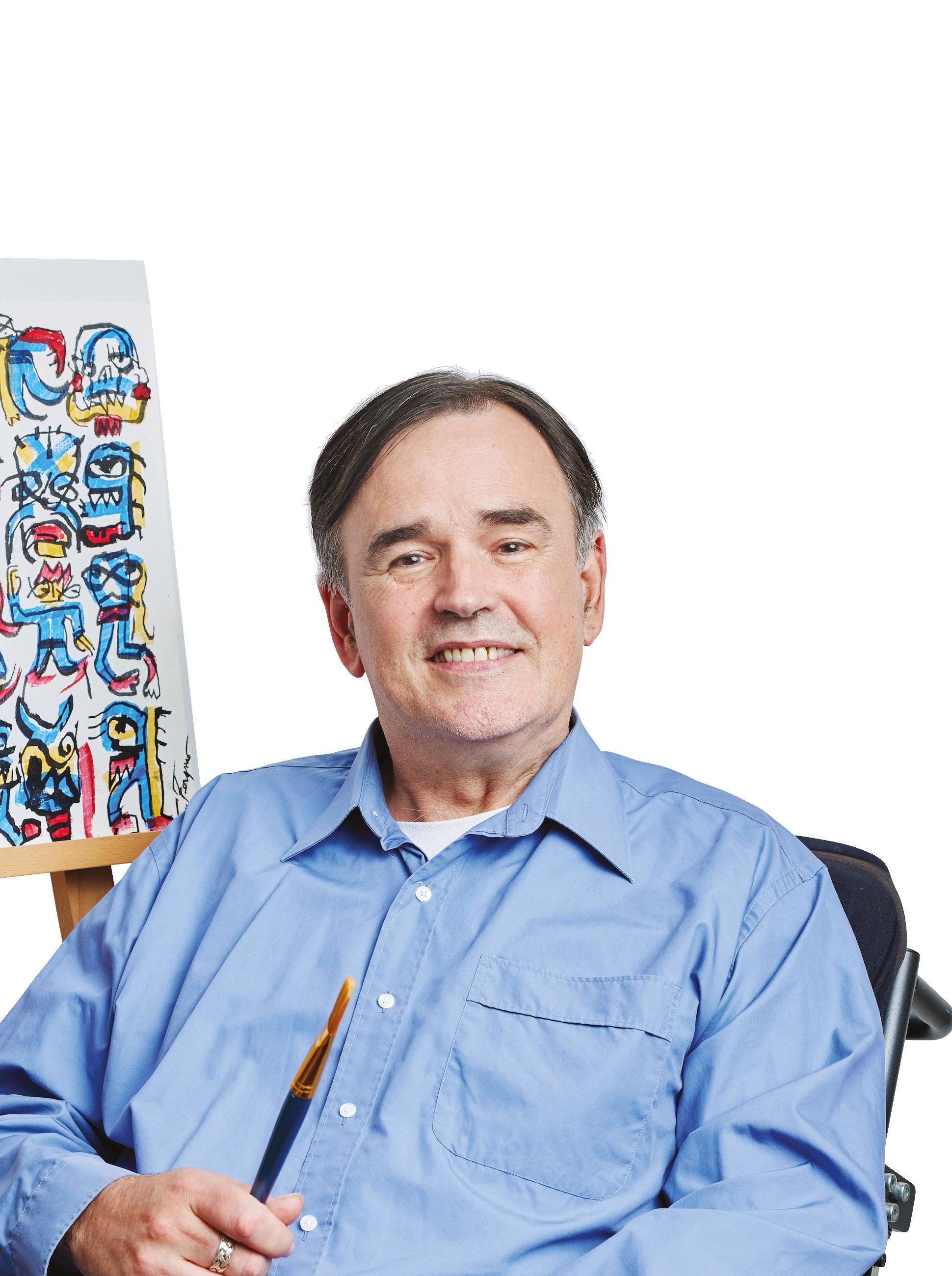

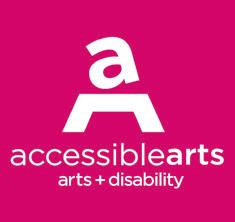

artists wanted 6 categories, 6 ways to win $1,000 drawing painting mixed media 3d photography textiles enter now artful.org.au annual art prize 2023 Tim Ferguson , Artful ambassador
Empowering and supporting individuals
Using recreation as a therapeutic tool
Recreational Therapy supports people to improve health and wellbeing through leisure and recreation-based interventions. Recreational therapists develop and facilitate individual and group-based programs aimed to improve, maintain or restore physical, cognitive, social, emotional and spiritual functioning and overall quality of life.
Recreational therapists work with people of all ages and abilities in a variety of healthcare settings to promote social connectedness, self-esteem, independence and community participation.
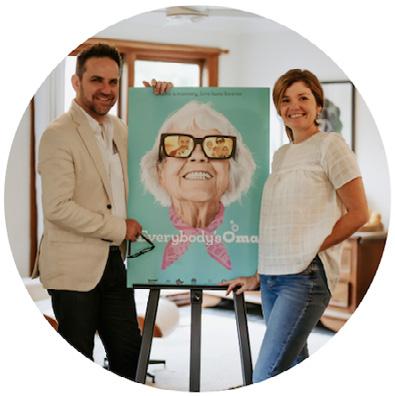
The Australian Recreational Therapy Association (ARTA) is the peak professional body representing people working in recreation, leisure and health. While the association represents members who hold an approved qualification working in the profession, different job titles are often used based on the training completed. Titles represented with degree qualifications include recreational therapists, diversional therapists, leisure therapists and ARTA strictly promotes and endorses these titles for health professionals who are university trained.
ARTA National Conference 2023
The ARTA National Conference will be held at the Novotel Sydney Parramatta, NSW, on Friday September 8 to Saturday September 9. Keynote speakers are dementia advocates Jason and Megan Van Genderan and psychiatrist and author Dr Mark Cross.
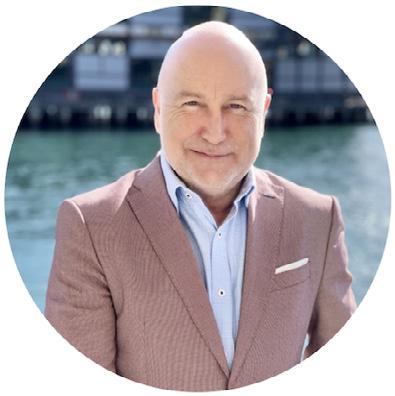


This two day program will feature presentations from recreational therapy leaders from across Australia working in a range of practice settings including rehabilitation, disability, aged care and mental health. Featured sessions include expanding inpatient mental health diversional therapy services, international research on professional roles, gaming as therapeutic intervention and lived experience stories.
Pre-Conference Workshop
There will be a pre-conference workshop on Thursday September 7. ‘Activities, Activities, Activities’ - a feast of takeaway CAFE (Creative Activities for Everyone) ideas. Demand for best practice meaningful recreational activity ideas is high on the list of what is needed as recreation professionals, and this workshop delivers just that.
This hands-on workshop will demonstrate a range of practical recreational program ideas (inc. art, gardening, team building) as well as optimising resources and best practice documentation.
Link to... News
August/September 2023 76
A special offer to LINK magazine readers. Receive 10% off when you register for the conference. Contact our office enquiries@recreationaltherapy.au and 1300 133 395 or www.recreationaltherapy.au
Readers recommend Vision Australia Library program ‘Hear This’
For the past 15 year the Vision Australia Library program, Hear This, has been sharing choice picks from its audio catalogue to a dedicated legion of book loving listeners. Host and passionate bibliophile, Frances Keyland, said she won’t be switching the mic off anytime soon.

“As a national library service without a physical presence where people can browse books, having a radio program/podcast playing to talk about the catalogue and play samples, makes sense. It’s a brilliant way to communicate with our library members,” she told Link
The library is a free national service open to anyone with a print disability, including those who are blind, have low vision, dyslexia or any physical disability which may prevent them from holding a traditional book. The catalogue
includes over 8000 braille books and over 45,000 audio titles.
The 30-minute weekly program is often in response to what’s happening culturally, for example, Anzac Day, or in the book world either through literary award winners or shortlists, writer milestones or anniversaries. The most popular shows are the ones featuring recommendations from fellow library members, which Keyland described as the “fuel” of the show.
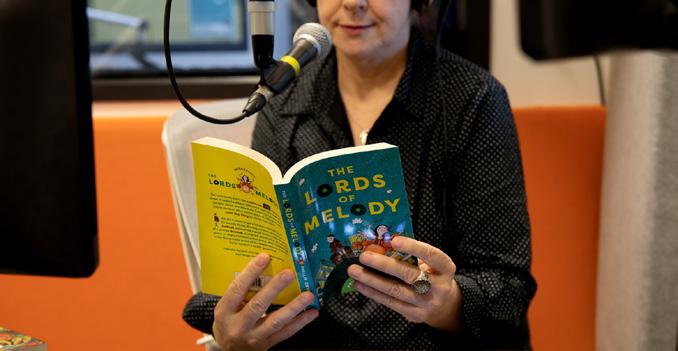
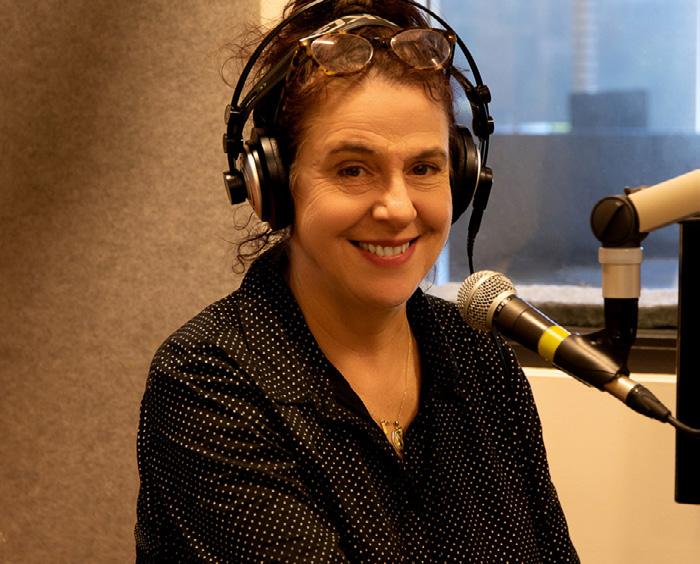
The Reader Recommended introduces new books and unearths classics that people may not have had the opportunity to know about. Keyland said a recent top reader recommendation is the works of US writer Sinclair Lewis, the first American author to win the Nobel Prize for Literature. The library has a range of his titles including Dodsworth and It Can’t Happen Here.
This each week on Vision Australia Radio, or subscribe via Omny or wherever all your favourite podcasts are found.
Listen to the latest Hear This at: https://omny.fm/shows/hearthis/230505-hear-this-5th
Vision Australia Library members can have the show delivered to their device of choice or through the VA Connect App. Call the library on: 1300 654 656 or visit https://www.visionaustralia.org/ services/library.
Vision Australia Radio is a national print disability audio content provider, offering accessible news and information via radio and podcast.
Stream our live radio services on your smart device or via varadio.org. Check out our range of disability focused podcasts on your favourite podcast app.
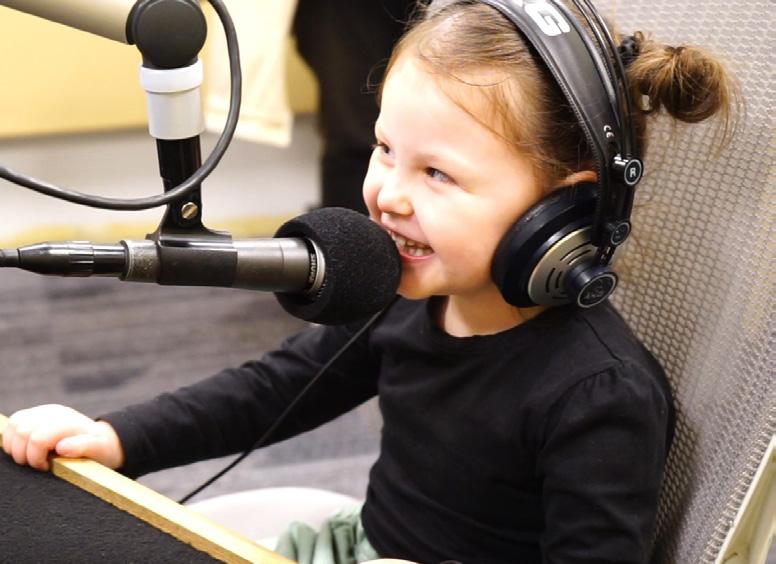 How to listen: You can tune into Hear
How to listen: You can tune into Hear
Link to... News
linkonline.com.au 77
Getting out and about in Scotland in a wheelchair
what modifications venues have made. Although to make up for the difficulties surrounding accessibility, the Scottish people are lovely and eager to help in any way.
“However, what I have discovered is that more events here are geared towards people with disabilities. I have been on tours designed for groups of people as well as some club nights that are set up for people with disabilities.
“It is refreshing to be able to go places and do things where I know I won’t be the only person in a wheelchair. And despite the city being less accessible, I notice there are more people using mobility aids out and about here than in Australia.
“I think every city has its ups and downs when it comes to how they handle accessibility. It may take me a little while to get used to each new place, and I find myself missing some things about Australia that made accessibility easy, but I’m thankful to experience the different ways and try to have the best time I can,” she said.
Caitlin has spent the last few months exploring her new city and getting used to it, and has noticed some major differences, especially when it comes to accessibility, and as a fulltime wheelchair user she has found the transition sometimes difficult.

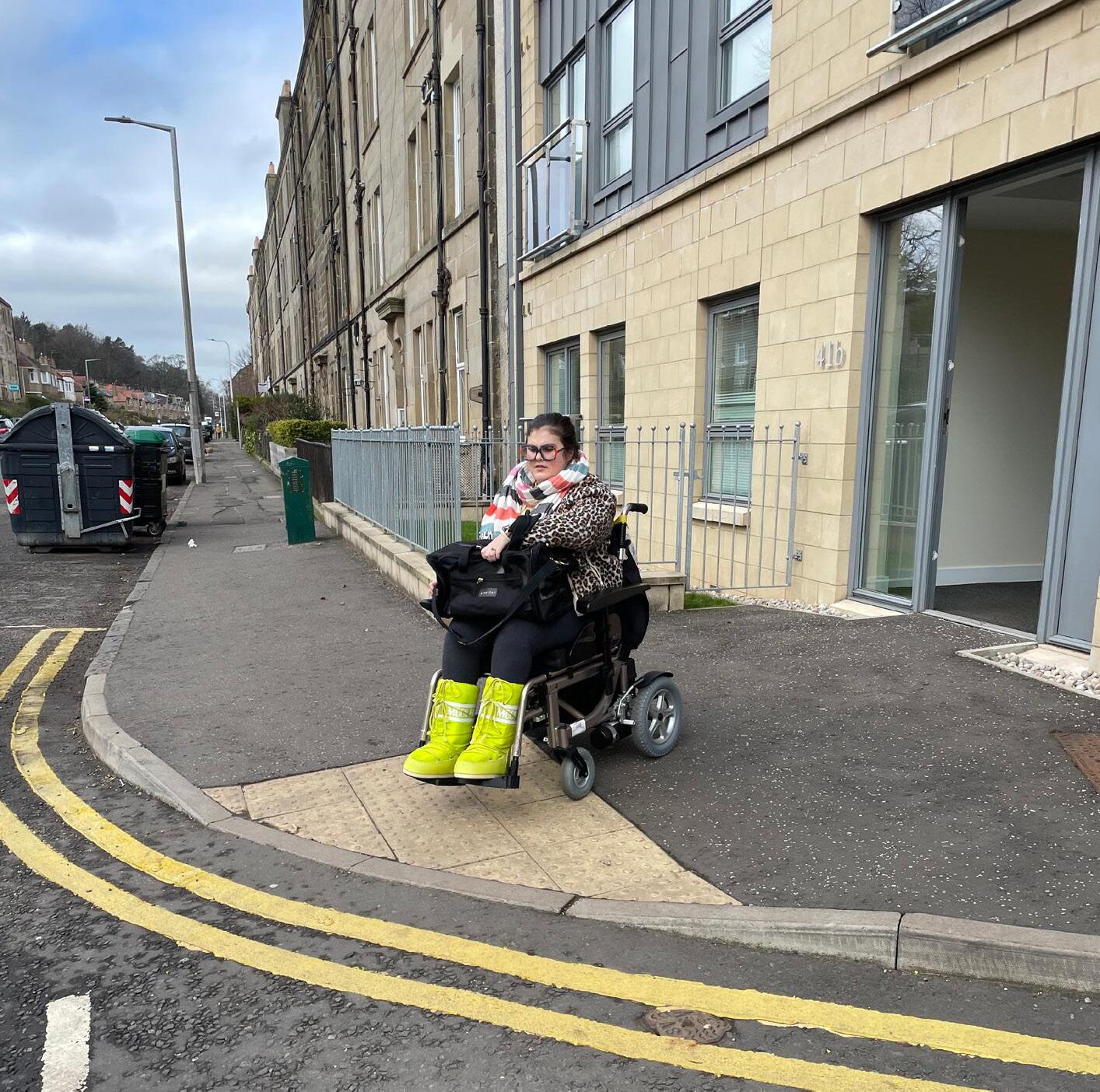
“Sydney is a relatively new city so many buildings were made accessible from their first designs, so most of the time anything I wanted to do in Sydney was accessible without needing to check beforehand, which made going out much easier. Living with a chronic
illness means I don’t always feel up to going out and doing things, so it was convenient not having to plan ahead.
“Edinburgh is a much older city, buildings and roads are established, and accessibility was not considered when they were built. Most places are not automatically accessible, and it is necessary to call ahead to check
“More events here are geared towards people with disabilities”
Link to... Travel & Leisure
August/September 2023 78
Link contributor Caitlin Maynard moved from Sydney to Edinburgh, Scotland last October. She writes about accessibility and other issues she has confronted in her new home.
A holiday business doing LEISURE
Leisure Options is an established tour operator providing unique and memorable small group supported holidays for members of the disability community. For nearly three decades their mantra of “Great Holidays and Travel for people with disabilities” has enabled countless travellers to enjoy meaningful holiday experiences, make lasting friendships and enjoy new adventures.
While supported group getaways are the foundation of Leisure Option’s specialty it is by no means their singular focus. The travel team are mindful that each individual traveller has their preferred style of holiday and sometimes that can involve a less structured or flexible itinerary that is not suited to a group holiday.
Often the team are also approached with an enquiry to visit a specific destination, not included in their current group program so a customised holiday if often the most suitable option.
A Leisure Options individual holiday provides a meticulously crafted, personalised experience designed exclusively for the traveller at hand, taking into account their preferred style of travel and delivering a premium holiday experience.
Do you have a dream destination you've always longed to visit? Perhaps you have a favorite place you love returning to, or maybe you're seeking a truly unique and extraordinary travel experience. Look no further than Leisure Options. Their dedicated travel team is committed to turning your travel aspirations into reality.
The team are mindful that holiday experiences incorporate personal goals and preferences, and no holiday is too big or too small. Be it a grand tour of Europe, a Disney theme park adventure or a simple, relaxing weekend break along the coast you can be assured that your getaway will be planned with the utmost thought and care with the aim to enable you the enjoy the best holiday experience possible.
Contact the Leisure Options team to start planning your dream holiday or bucket list getaway.
Tel: 03 9646 0666 or 1300 363 713 or via: mail@leisureoptions.com.au
Great holidays and travel for people with disabilities
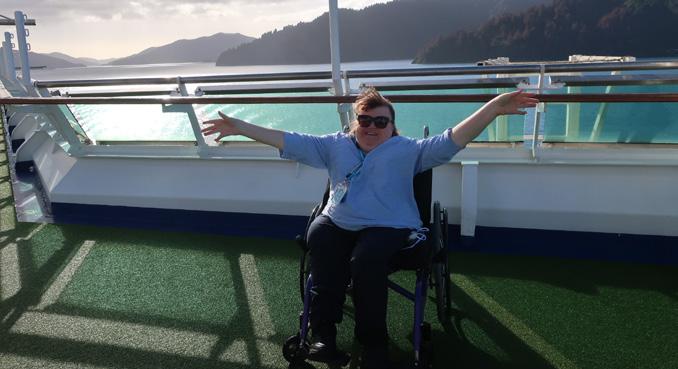
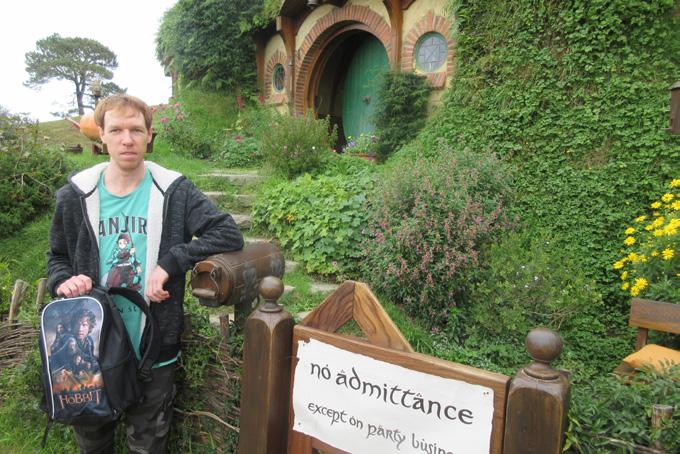
With more than 30 years’ experience in both the travel and disability industries, Leisure Options is Australia’s only national award-winning, accredited travel agent specialising in supported travel for the disability sector.




Focus on providing holidays that allow maximum choice, loads of fun, high staffing ratios, commitment to individual needs, and a supportive holiday environment

• Choice of either group or individualised touring
• Respite care offered in a stimulating and fun-filled environment
Over 80 departures annually to local, national and international destinations Passionate, energetic, and professional tour leaders with extensive qualifications and a world of experience
• Registered service provider with the NDIS


We support the
For more information call 1300 363 713 or visit our website www.leisureoptions.com.au
Link to... Travel & Leisure
linkonline.com.au 79
Start ‘em young!
By Tommy Trout
Four ways to get kids with disabilities moving
Istarted WeFlex almost three years ago and I have read every piece of research on exercise and disability that I could get my hands on. Sadly, there isn’t a lot of research out there and some of it is already dated but one thing remained consistent: appropriate exercise and activity is always beneficial.
No report concluded with the notion ‘under no circumstances should kids with disability exercise’. They reported the benefits we all experience with exercise - like improved mood and sleep. Neat right?
Most kids with disability don’t need special gyms and clinicians to help them get active. Below are four ways you can get your family up and moving to access some of these benefits.
1. Morning walks: Exercising first thing in the morning is great because it’s done early so it’s immediately ticked off. It’s not
just the exercise component, but morning sun can assist with vitamin D absorption and improve your mood, sleep and ability to concentrate throughout the day. Even if someone in your family is in a wheelchair the benefits are still there. Start the morning right.
2. Balloons! Not a typo. They are awesome (and very cheap) fitness aides. Bat it to each other, not letting it touch the floor can have you running around upping the cardiovascular output. Playing with them also promotes hand-eye coordination, can be done indoors and little risk of it knocking off that priceless, antique vase. They are also bright which makes it easy for children with low vision to spot.
3. If they want to play video games, make them stand. I’ve been reading a lot about sitting vs standing in relation to work and I have started to incorporate these
learnings into my daily life. Standing to work or play games burns more calories, is better for back and posture, improves balance and builds leg muscles.
4. Toilet paper rolls: Ok, so this is one for kids who are a bit more limited in their range of movement, coordination and cognitive functioning. I’ve had a few clients with cerebral palsy who needed a bit more time to get their arms moving. So I grabbed some toilet paper rolls, drew some faces on them and had the client knock them over. Even kids in wheelchairs with limited mobility can be active and have fun doing so.
Movement doesn’t have to be regimented or gruelling, incorporating play and engagement are ways you can promote movement and exercise while having fun.
Together, WeFlex
August/September 2023 80
Link to... Travel & Leisure
No need to find your sea legs when wheels are just as good
The world is becoming more accessible due to a combination of both assistive technologies and smarter infrastructure. Nowhere is this more apparent than in the taming of the high seas.
Thanks to portable mobility products such as the Luggie Scooter, hundreds of Australians have rolled their way across the deck, from the Arctic to the Tasman to Sydney’s humble Manly Ferry.

There’s an increased understanding across the cruise-ship industry of the needs of travellers with a disability. Alison Carmichael-Rulten, who used a Luggie scooter for a three-night P&O cruise in the Pacific, was surprised at how seamless the experience was.
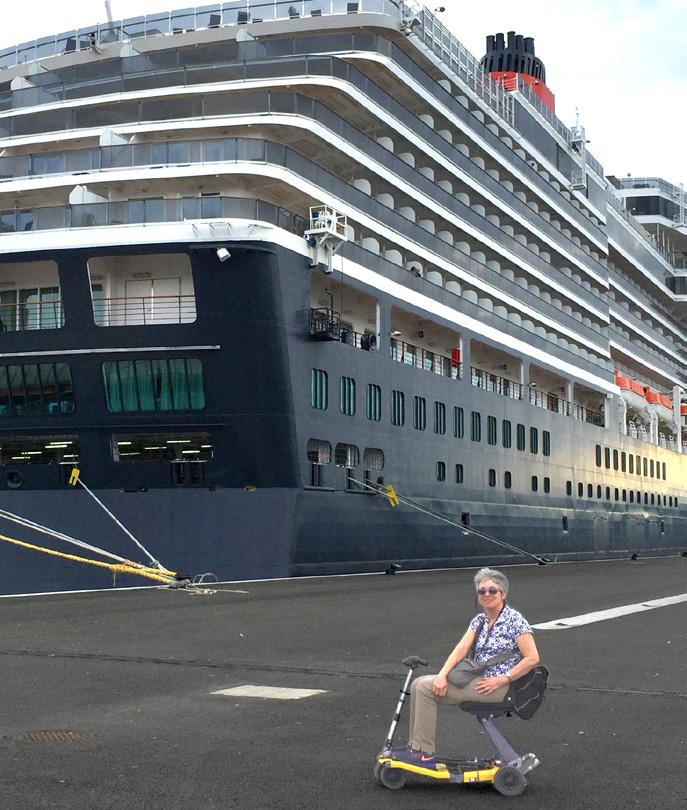

“I could easily take it into all the restaurants, bars, shops and everywhere else we wanted to go on the ship,” she said, adding that all the staff loved her neat, capable scooter.
Maureen Corrigan, whose Luggie cruise adventures has taken her to Iceland, the Mediterranean and Asia, recently braved the calmer waters of Sydney Harbour while holidaying in
city. With smooth ramps, helpful staff and designated disability zones aboard the boat, Maureen was able to focus on enjoying the sights.
A busy cafe in The Rocks historical area presented a slight problem, but a table was found and the Luggie neatly folded away. Returning on the ferry was just as straightforward, despite the swelling crowds. And while the fine weather did not last the day, Maureen was able to zip over a damp Manly Corso to her hotel room.
“The Luggie takes me wherever I want to go,” she said with characteristic aplomb, when discussing her future travel plans.

Maureen who has multiple sclerosis has written two books about her travels that includes many cruises. Want to know more? The books can be found on Amazon under Maureen T. Corrigan.
Scooters Australia is the national importer for the Luggie Scooter visit: www.scootersaus.com.au
Online sales & free delivery* 1300 622 633 www.scootersAus.com.au SCA34716
and Go PREMIUM FOLDING SCOOTERS
*Conditions apply
Unfold
…see Australia
Link to... Travel & Leisure
linkonline.com.au 81
Exercising made easy
Easy Exercising is a diverse community- based facility providing a specialised exercise program.

There’s no pain; instead, laughter and friendly chat as you exercise. How?
The answer is our unique, powerassisted rehabilitation machines that help you exercise and move with ease to help you start achieving individual goals.
When you experience Easy Exercising, you will find integrity, courage, respect and understanding. You can rely on our service, knowledge and experience. At Easy Exercising, we listen and want to get to know you. We are passionate about helping you create a brighter future.
We supervise each participant to ensure you are exercising in the correct position, using muscles without putting pressure on the joints with a controlled method combining positioning and exercising.
Sounds too good to be true? We would like to invite you to come along, have a FREE trial session at your closest Easy Exercising clinic. This will help you understand how the power-assisted machines work, and assist you with getting a sense of the close-knit community that we foster.
You will be safe and will not be intimidated, with no judgement and be with the same like-minded people. You won’t be forced into any program, just offered solutions with guaranteed results.
Here’s what Donna said after starting at Easy Exercising:
“I was diagnosed with MS and found Easy Exercising. Once I attended my free trial, I was hooked and couldn’t start quickly enough. I struggle with heat and change before exercise and after, but with the air con on all the time I have no issues with heat. My life has changed for the better since attending Easy Exercising. I have
surprised my medical team, support workers and my family with my improvements.
“Mobility has improved, along with my confidence and engaging with others with lots of encouragement from the community, staff and support. Staff are extremely accommodating and I can have a laugh with others which has helped me reduce anxiety and low selfesteem. Just give it a try as there is no pressure or hassle.”
Easy Exercising has locations in Brisbane with plans to open more across Australia. Find your nearest location at our website.
Visit easyexercising.com.au to book a free trial session at your nearest clinic.
NOTE: we also provide opportunities for respite care with a difference, via our weekends away. Please register your interest at https://easycommunityservices.com
with ease and enjoy
close-knit community.
the QR and mention code: EASY to book your free trial session now!
Exercise
a
Scan
NDIA REGISTERED
Link to... Travel & Leisure
August/September 2023 82
Freedom Motors adds to its team
New manager for the southern states
Craig Speirs is the new state manager for Victoria and Tasmania and joins Freedom Motors with years of experience and knowledge in vehicle modifications.
This background in the industry gives him the edge as people feel confident knowing they are dealing with a person who can answer all their questions and understands what they need from their vehicle modification.
Speirs travels all around Victoria and Tasmania several times a year to demonstrate modified vehicles that gives clients the opportunity to trial what a modification can offer.
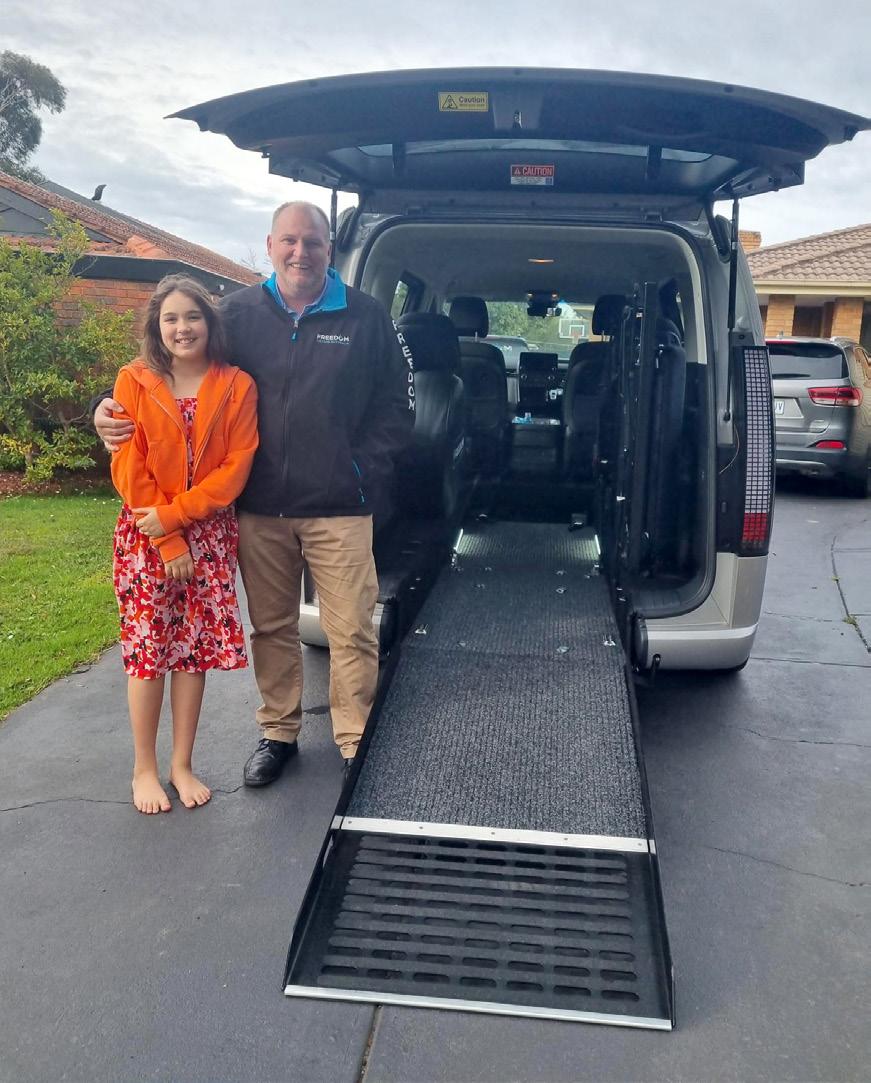
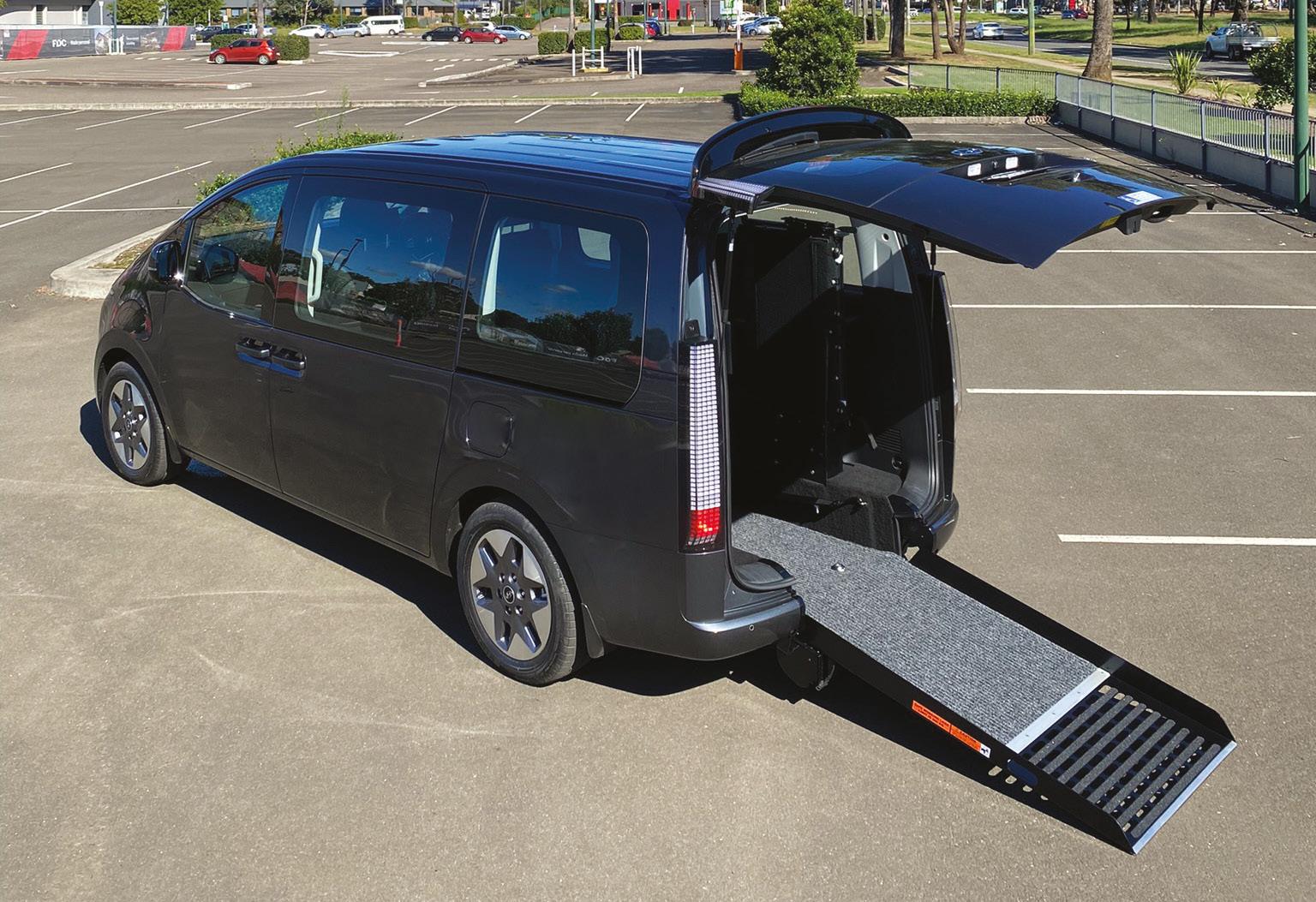
Freedom Motors Australia has the widest range of quality modified vehicles on the market, with a selection of different modified demonstration vehicles available.
If you want to see a specific vehicle modification contact Speirs and he will organise either an at-home, or other location, for personally trialing the modification you are after.
Spiers can be contacted on 0410 529 562 or email: craig@freedommotorsaustralia.com.au to arrange a demonstration or discuss servicing options.
Not in Victoria or Tasmania?
Give Freedom Motors Australia head office a call on 1800 672 437 and we can put you in touch with the state manager to arrange a consultation to see how we can help you get back to travelling and living the life that you choose.
We deliver Freedom, you just have to choose the destination.
WE DELIVER FREEDOM YOU CHOOSE THE DESTINATION INTRODUCING OUR HYUNDAI STARIA CONVERSION! NEW FREE CALL 1800 672 437 OR VISIT OUR WEBSITE WWW.FREEDOMMOTORSAUSTRALIA.COM.AU
Link to... Travel & Leisure
linkonline.com.au 83
From the floor at the ATSA Expos





Melbourne and Perth


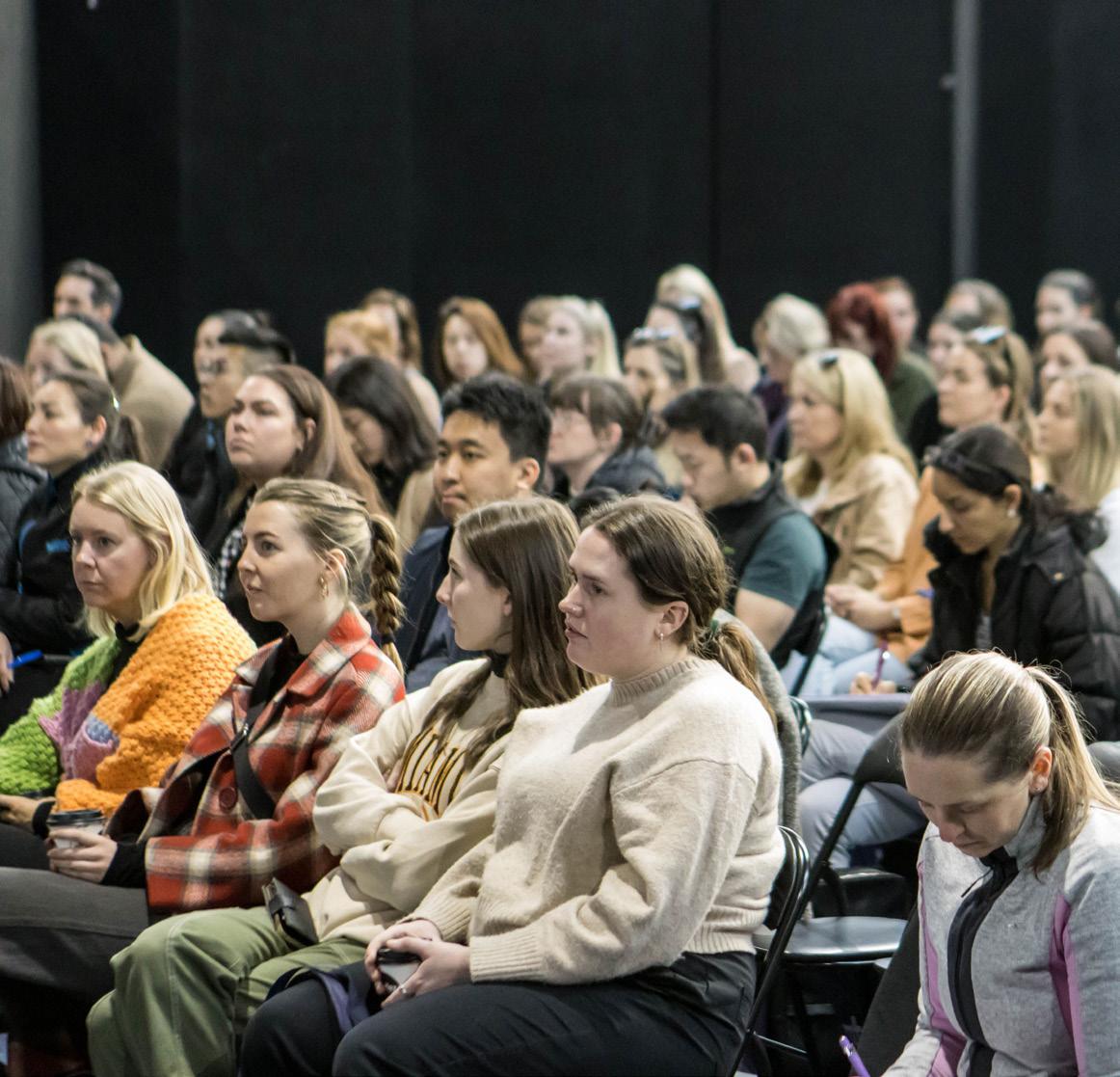
Link to... Happenings
August/September 2023 84
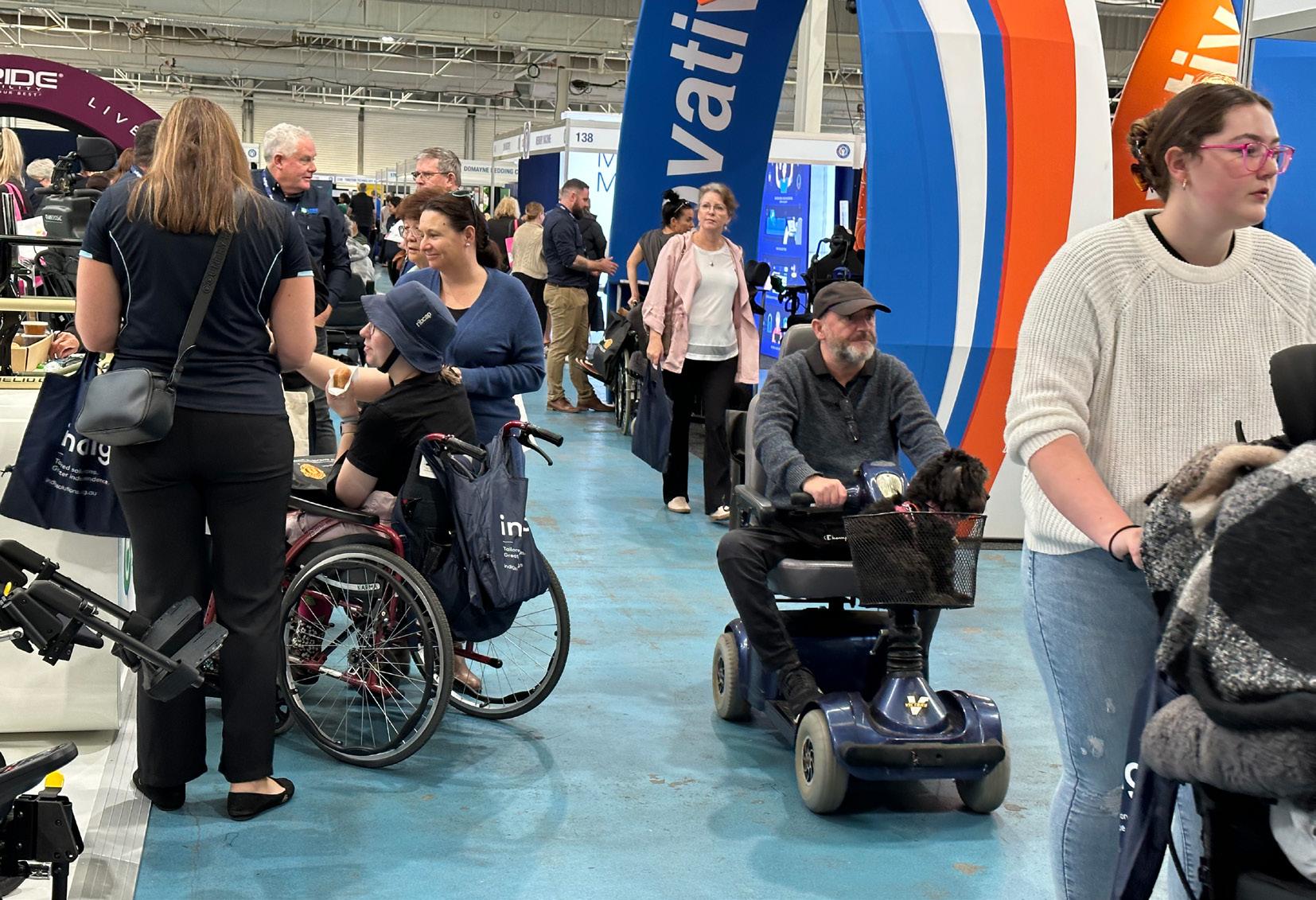
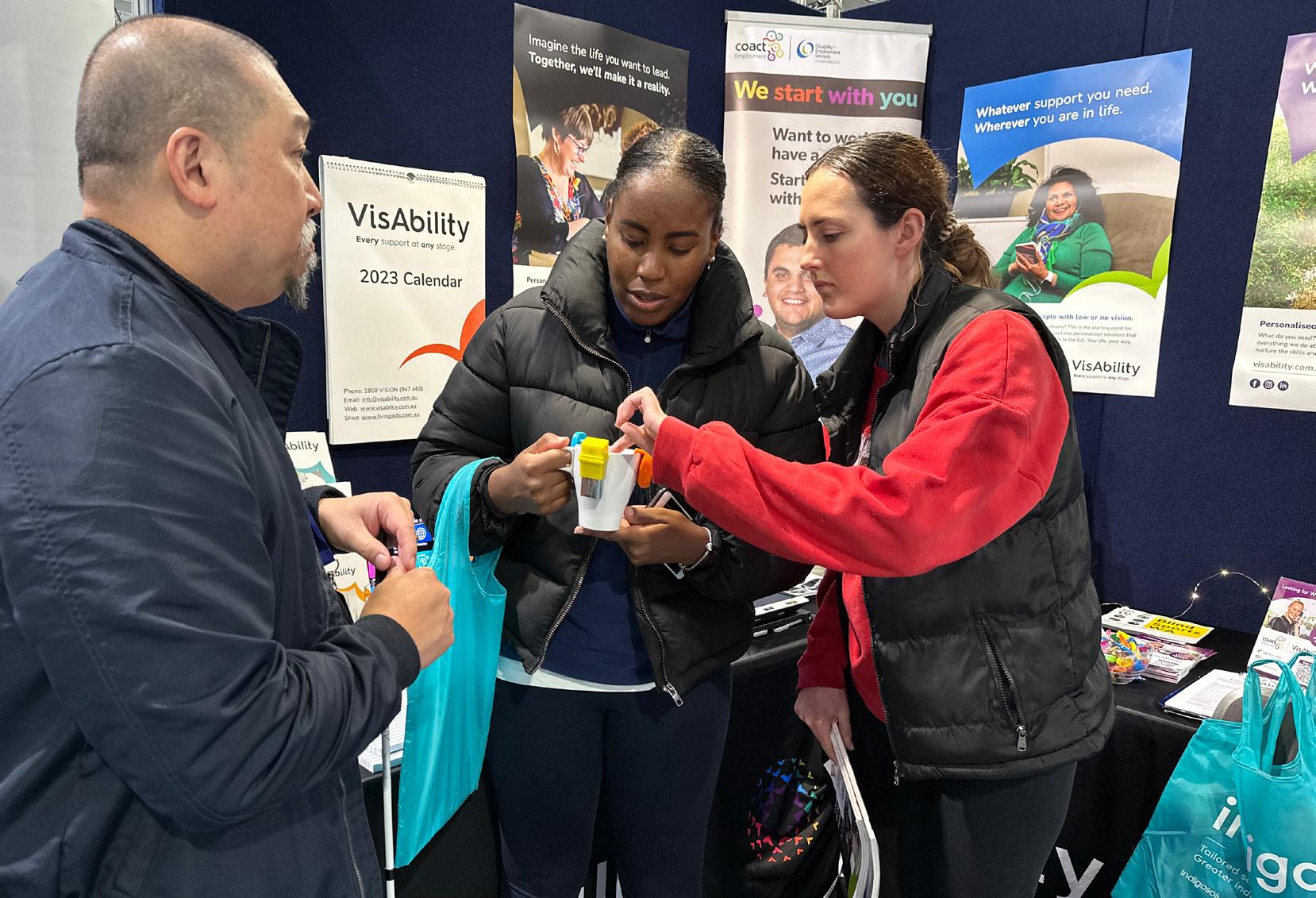
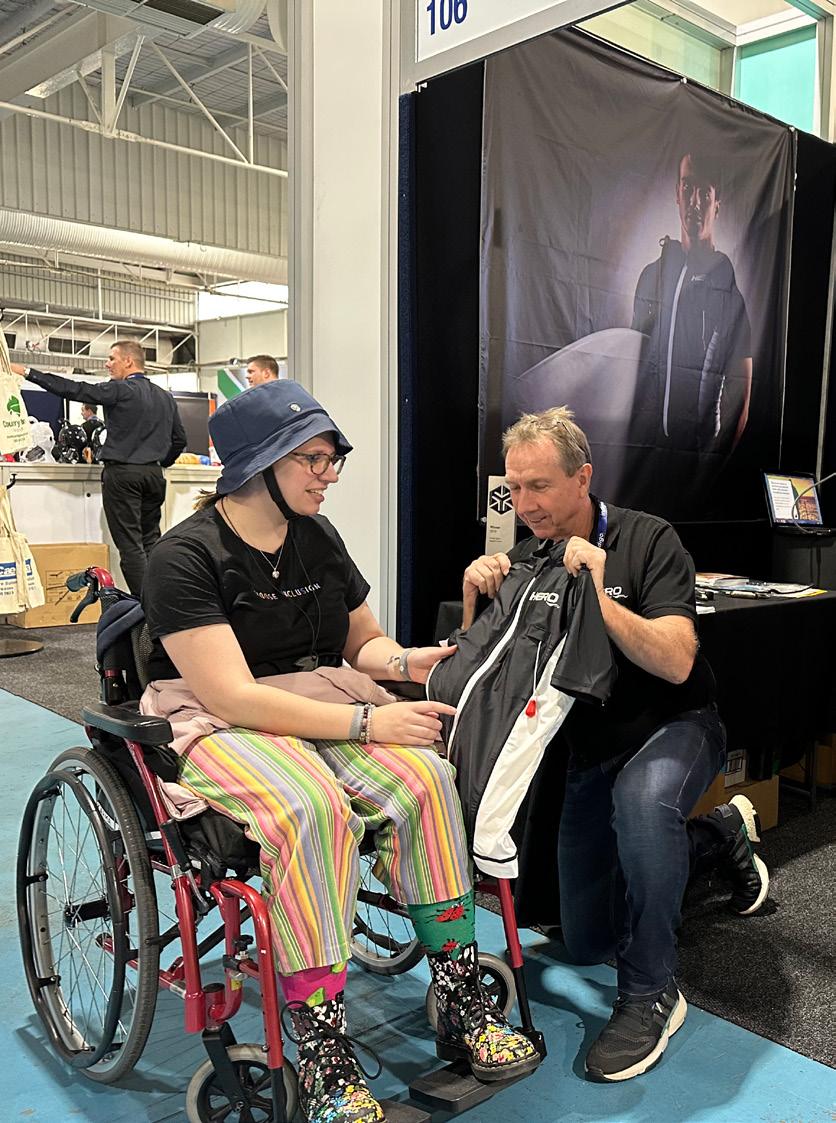





linkonline.com.au 85
Seal of approval for this production
Aresident seal called Benny that lives on the steps of the Sydney Opera House was the inspiration for a unique new performance that took place at the Opera House Centre for Creativity on July 9.
Developed and choreographed by a talented group of people with disability, this collaborative workshop from the centre for Creativity, entitled Dreams of Benny, promised something different as it took participants on an immersive journey creating movements around Benny’s qualities - balance, play, adaptability and strength.
Prior to the event, Kymberly Martin went behind the scenes at the Opera House to a special rehearsal of Dreams of Benny meeting the artists, including lead artist Sarah-Vyne Vassallo who described how diving into the world of Benny has taught the team a lot.
“Inspiring us to design the workshop around these four specific attributes that we have learnt about Benny. Attributes that relate to us in our lived experience that we can take into our day-to-day life and creative practice.”
Visual artist Digby Webster who lives with Down syndrome, created an 18-metre tapestry reflecting different crayon drawings of Benny. “Seals are the most calming and beautiful animals in the sea,” he said. Keila Terencio a
performer and puppeteer living with neurodiversity added a further layer to the workshop with a series of puppets. She said Benny is a cool character. “We all want to be a little bit of Benny. He is multi-faceted like us...come and be you, wherever you are, whoever you are, play it and we explore that through the workshop and share the magic.”
Another member of the workshop was dancer, actor and gymnast Chris Bunton, who represented Australia recently in the Paralympics as a Down syndrome gymnast, brought a sense of balance and movement to his dance routine.
The performance was narrated by writer and performer Emily Dash who said people with disability were often made to feel small and their contributions minimised. “We do have contributions to make, stories to tell and voices that
Whatʼs On Calendar
AUGUST: August 3: NDIS Transformation Summit www.ndiscommunitiesofpractice.com.au
August 4-5: Sydney Disability Expo www.sydneydisabilityexpo.com.au
August 11-12: Care Expo Melbourne www.careexpo.com.au
August 21-22: National Disability Summit https://nationaldisabilitysummit.com.au
SEPTEMBER:
September 1-2: Canberra Disability Expo www.canberradisabilityexpo.com.au
September 1-2: Care Expo Brisbane www.careexpo.com.au
September 5-11: Spinal Cord Injury Awareness Week
September 8: RUOK? Day www.ruok.org.au
need to be heard and respected,” she said. “This talented group of people have brought their skills and expertise to this rehearsal room together, because it is a labour of love and friendship.”
According to Emily, Benny introduced symbols about seals to the workshop. “His journey is our journey. It is the first disability-led play by people with disability, for people with disability, to be performed at the Centre of Creativity.
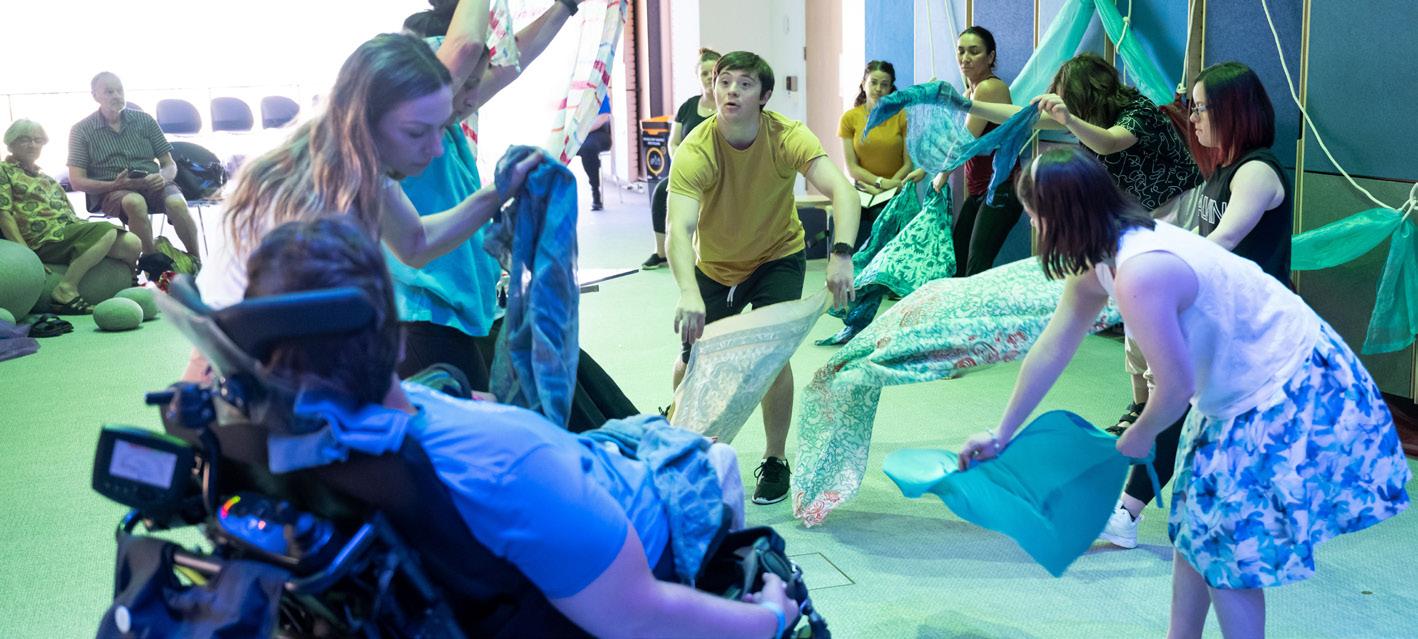
“What emerges is a personal connection showing authentic skills, she said. “Art is about revealing something about yourself in a way that encompasses others to see themselves. What I would describe as a ‘principal in action.”
For information visit: https://www. sydneyoperahouse.com/visit/ourvenues/centre-for-creativity
September 9: All Abilities Ball https://www.eventbrite.com.au/e/allabilities-ball-2023-tickets-454649467797
September 15: Something That Happened Illawarra Performing Arts Centre https://limelightmagazine. com.au/event/something-thathappened/2023-09-15/
Link to... Happenings
August/September 2023 86
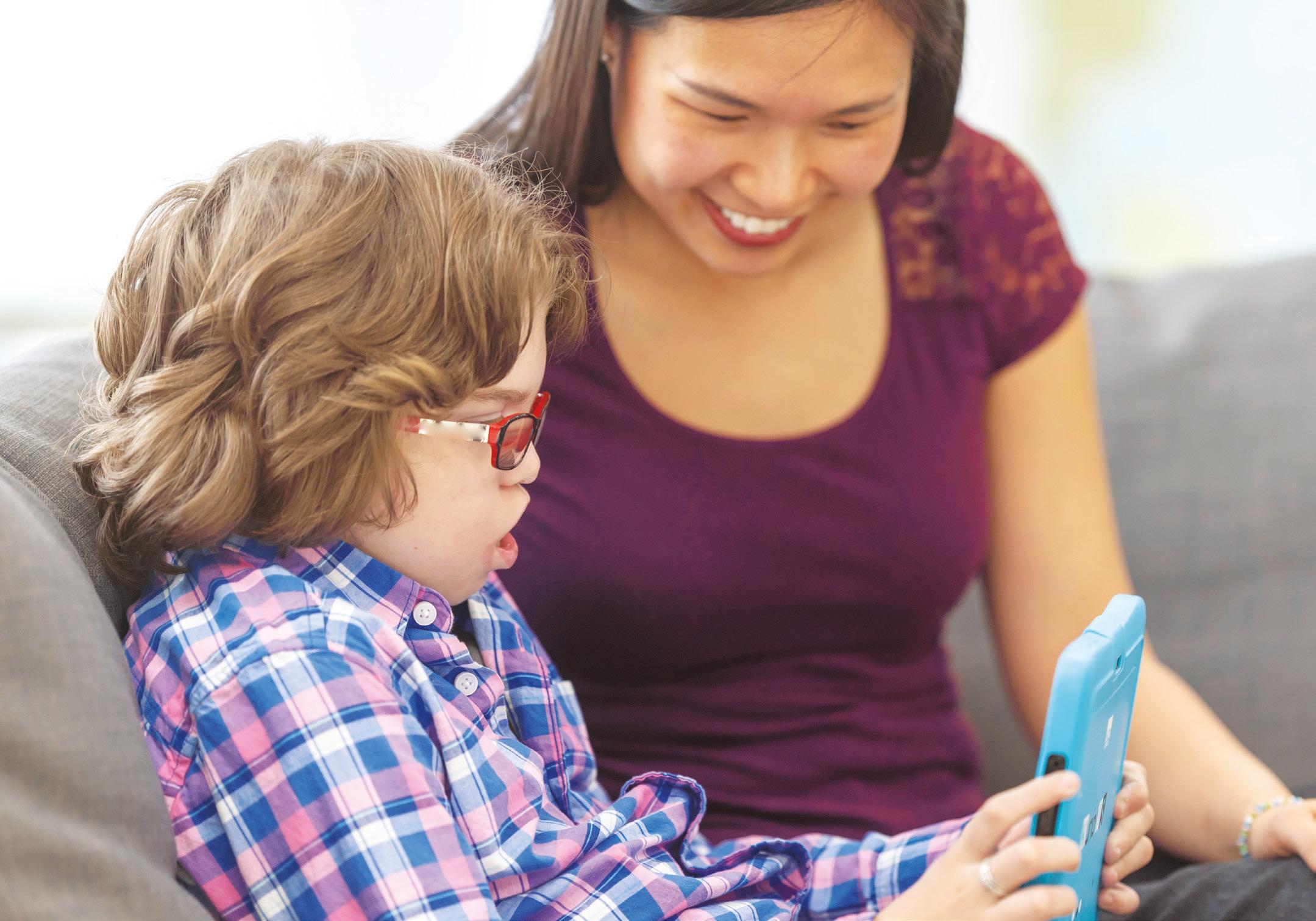
www.telstra.com/disability So everyone can thrive We want to help every Australian build a connected future, including those who have difficulty using a standard home phone. Telstra’s Disability Equipment Program offers a range of solutions to support customers who are older or have a disability. Visit telstra.com/disability, or call our Hotline 1800 068 424 (Voice), 133 677 (TTY).
FOCUS ABILITY FOCUSONABILITY

ON




































































































































 By Natalie Wade
By Natalie Wade



















































































































































































































































 How to listen: You can tune into Hear
How to listen: You can tune into Hear






































